Rachel Aaron's Blog, page 7
July 18, 2016
Should You Form a Writing Business?
Hi Folks,
Travis here again! Back in my popular Your Author Brand post, I mentioned talking about businesses, as in, should you form a company as a writer? Judging by the comments, this is a very widely desired topic, so that's what we're going to talk about today. I'm sorry it took so long, but this is a massive topic and I had to do a lot of research.
I'm sure ya'll always hear that you should treat your writing like a business. This time I'm going to talk about the literal version of that statement - making your writing into a formal company.
Disclaimer #1 - Because we live in America, this is intensely USA oriented information. I'm sorry if you're looking for business advice in another country.
Disclaimer #2 - I am not your legal counsel nor your qualified accountant. We do not have a client relationship. I'm telling you what I've found and heard so that you can go look into more and proper details. Don't tell the IRS "but Travis said so!" because they won't care. If you want to do anything I've talked about here, go sort it out with an actual accountant or lawyer!
Now that's out of the way...
Should You Form a Writing Business?The title is a question, and rightfully so. This is not a black and white choice. There are many benefits to starting a company, but there's a lot of drawbacks, too. Success as a writer is not dependent upon creating a fancy business. There are decades of successful writers who never formally created a company for writing. Honestly, this very question is relatively new on the scene thanks to the self-pub revolution.
So should you start a business? Well, that depends on a lot of factors, and the one we're going to start with is income. There are three types of author income, and which kind you make will completely change the landscape of whether or not forming a business is right for you.
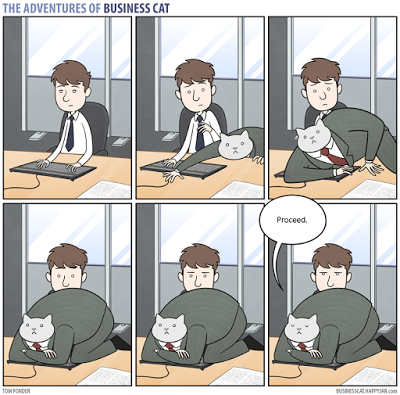
Turns out, if your writing is a hobby, there's some unusual tax deductions you can claim. For example, if you lost money on a novel, that loss can be claimed against your normal income. You can also deduct expenses against the hobby income kinda like you can for a business. There's more than I can list here, but here's a good start.
If you're just starting out and not making a lot off your books yet (or if you have yet to make money at all), claiming your writing as a hobby can be a huge savings. Unfortunately, while I'm sure all of ya'll's ears just picked up, by reading a post like this you are on course for not being able to claim hobby income.
While the government wants to cut hobbiests a break on their expenses, they completely understand how these rules could be exploited, and so, in classic tax law fashion, there are many many hoops to jump through before those sweet savings can be yours.
Whether or not you can claim your writing income as hobby income depends on your ability to navigate the following criteria:
Whether you carry on the activity in a businesslike manner.Whether the time and effort you put into the activity indicate you intend to make it profitable.Whether you depend on income from the activity for your livelihood.Whether your losses are due to circumstances beyond your control (or are normal in the startup phase of your type of business).Whether you change your methods of operation in an attempt to improve profitability.Whether you or your advisers have the knowledge needed to carry on the activity as a successful business.Whether you were successful in making a profit in similar activities in the past.Whether the activity makes a profit in some years and how much profit it makes.Whether you can expect to make a future profit from the appreciation of the assets used in the activity.Basically, if you treat your writing as something you do purely for fun as a hobby (ie, not trying to improve profits), you're cool. But if you're actively making changes and improvements to make more money, then you're acting like a business professional, and you're not a hobby writer.
It's your classic tax Catch-22. If you're professional enough to want to save on your taxes by claiming hobby income, then you're probably acting like a business and can't claim it.
(╯°□°)╯︵ ┻━┻
This doesn't mean hobby income is completely off the table. If you're adamant that your writing is a hobby (ie, you just want to write and be read and don't really care if you make a dime, but you also don't want to be overcharged on taxes for income you do make), then go look at how hobby income works tax-wise. But if your goal is to go pro one day, then you're already a professional by tax accounting standards (yay?) and are probably better off classifying any writing income you receive under our next category...
Writing Income Type 2: Self-Employment IncomeMost writers, new and established, let their royalty checks come in as self-employment income. This is the default mode if you do nothing special in regards to business structure. It's the easiest by far because all you have to do is get the check, cash the check, and then report the income. Unfortunately (like most easy things), it's also the most inefficient and expensive way to receive writing money when it comes to taxes.
Secondly, employers pay part of the self-employment taxes on your behalf. But, when you sell your book, whether you sell it to a publisher or directly to the public yourself, there is no employer, which means you get hit by the full ~15.5% of the self-employment taxes. This is about ~7.3% more than you pay on the same income at a normal job, where the employer pays the other half of these taxes on your behalf via the payroll tax mentioned above.
As your personal income climbs, so to does your exposure to the higher brackets. Add in the increased SE tax burden and manual withholding, and you'll start to see how hairy tax day can get. There's a reason taxes are a year-round concern for me.
(By the way, in trying to explain this to other authors, I've found that most people don't actually understand how USA tax brackets work. To be fair, it doesn't work like you'd think it should at all. So if you're at all foggy about how tax brackets actually work, here's a good explanation that all US citizens should know. If you want to hip-shot your tax exposure, see this handy calculator. Author, improve thy financial literacy! ^_^)
So as we've seen so far, treating your writing money as self-employment income is the easiest but most expensive way to go about things. Again, if you're not making a good share of your money off your books, 7.3% is not a big deal nor is the withholding. But if writing is a significant income for you (or you think it will be soon) then you'll want a stronger tax strategy for the future.
Writing Income Type 3: Business Profits
While marking down self-employment income on your taxes technically makes you into a business (a sole proprietorship, specifically), it doesn't actually afford any real benefits beyond the ability to deduct business expenses. It also doesn't really change the nature of your income. To do that, you have to form a business and form one of the right type in the right way. (covered in next week's post)
Not to poo poo the deductive power of expenses though! Business expenses can save you a lot on your taxes and learning how to properly claim business expenses is a good first step towards forming a full company. There's no reason for you to not get started on this right now.
As a side note, authors in particular have a fun tax deduction: research! Whatever you're writing a book about, you can probably find a way to go on a research trip and deduct it. I've heard of authors deducting sky diving lessons, vacations to exotic locations, race track time, and more all because those things featured in their novels at some point.
(Hey Rachel, set the next Heartstrikers book in Hawaii ok? I have several key tourist locations for fights to happen at as well. It's research!)
The implicit sole proprietorship is a nicety, but it doesn't explicitly make you into a business in a restrictive, binding sense. That's important because this means you aren't limited in your options to form a real, legit, formal business later should you choose to do so. (Not all types can convert to all other types once formed)
So, that covers the basic three options for your writing income! Honestly, you can get by pretty well for a long time with just the first two, especially if you are ruthlessly diligent about finding and using all available tax deductions and credits! (and business expenses)
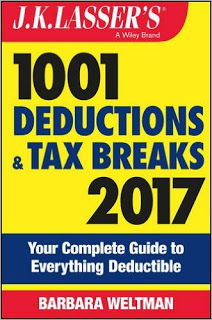 I read one of these cover-to-cover. It was eye opening
I read one of these cover-to-cover. It was eye opening
So now that the basics are out of the way, let's move on to the real wizardry of this post: should you form a formal business around your writing?
The Pros of Having a CompanyBefore getting into the specific types of companies you can form, how they work, and how much time and money each one will cost you let's talk broadly about the benefits that having a formal company will afford you.
Benefit #1: Easing the Tax WoesThis is the biggest one for authors. All those problems I mentioned, well, they get easier when you have a real business. Take withholding for example. Some company setups (like an S-Corp) let you pay a salary, which means your company can manage the withholding that goes with the salary.
Once you have a salary set, you can pre-calculate the withholding. From there its just a matter of making sure you have the money needed for both as you go. Trust me, this is easier than high jumping once-a-year hurdle. It does require good money management skills however, but nothing will save you from needing those.
There's also, of course, business expenses, but I've beaten the expenses horse enough for now.
More importantly, some forms of business (specifically S-Corps) can reduce your exposure to self-employment taxes. This is hard and tricky to accomplish and we'll talk more about it in part 2 of this post next week.
 My money, now.
My money, now.
How much can these kinds of savings make? Well, I saved us $10k last year thanks to forming our company. That's not chicken scratch, and this year I suspect the number will be even higher. Using all the tools available to us reduces lost opportunities and makes it easier to pay what the law says is our fair share.
(Not that we mind paying taxes, btw! Both Rachel and I love the roads and schools and safe food that the government provides. We just don't like paying more taxes than we're legally obligated to pay ^__^. Its sadly harder to accomplish than it should be)
Anyway, the point here is that your ability to handle and reduce your tax burden goes up when you form a company. How much mileage you get from this personally, though, will vary with the type of company you choose to form as well as your personal financial situation.
Benefit #2: Liability Protection
Forming a business isn't all about money, though. Putting yourself behind a company (like an LLC) can also protect you and your personal assets (your house, car, savings, and so forth) from being pillaged by losing a lawsuit or by debt collection.
Not all business types offer good or any liability protection. For example, the sole proprietorship we talked about when we first mentioned listing your writing money as business income has practically zero liability protection. Limited Liability Corporations, or LLCs, on the other hand have tons. (Note though that liability protection only refers to liabilities incurred by the business or directed at the business. It can't save you from personal lawsuits.)
Thankfully, authors usually don't have to worry too much about this. You deal with the public in a way that's insulated by the book distributors like publishing houses or Amazon itself. Still, getting sued isn't impossible, and the bigger you grow, the more this might be important. Most super famous authors have had to deal with at least a "you stole my idea" type of lawsuit at some point. When that happens, it's nice to have some protection, and if you can get it while also getting many other sweet benefits, so much the better!
Benefit #3: Easier AccountingThis isn't a problem for first time authors, but as you grow and consume more author services, tracking all the expenses and revenues becomes increasingly complicated. This is were companies shine. Setting up a formal company also means setting up company accounts that are completely separate from your personal money. It's wonderful to have a dedicated set of credit cards, checks, and account books just for the company. We have a relatively simple income stream for an author who's been writing for ten years, and being a company still saved me five days of tax work last year!
It all comes down to organization. I used to have to spend tons of my time teasing out every single business related expense from the thousands of yearly personal transactions in our joint accounts. Now, so long as I use the company cards and checks whenever I make a business purchase, I just have to make sure that all transactions are properly filed in Quickbooks and the accountant does the rest. It's wonderful! Also way more accurate as I don't miss anything at all.
A side bonus is that most accounting programs, like Quickbooks, will also come with oodles of reports that you can just click to get. Wanna see profit-loss for the year? Already done, son! This is increasingly vital stuff as your career and income streams grow. People who don't keep an eye on their business metrics are just flying blind.
Benefit #4: Becoming a Legal EntityLast but not least, being a business comes with a lot of built in legal niceties. Being able to umbrella contracts, payments, hiring, and other weighty legal actions under a discrete business entity rather than as an individual is incredibly advantageous. It separates you and your personal life from your company to some extent.
The mileage on this varies widely with the business type, so I'm not going to say much more here. Rest assured, though, the first time you have a contract go south (and if you keep writing, it will almost certainly happen at some point in your career. Something will go wrong someday, I guarantee it), you will be damn happy to be dealing with that mess with a company between you rather than having to be knee deep in the fallout personally.
Intangibles
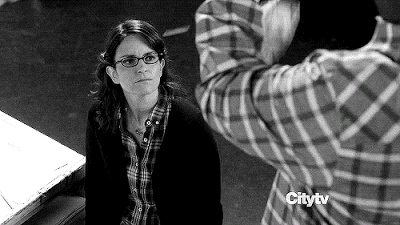
So those are all reasons why having a company is awesome, but there's more to it than just what you see above. It's hard to explain, but after having a company for a year now, I can definitely say that just having a company puts you sort of into another sphere. If you have an actual company--not just an implicit sole proprietorship--then you can act like a company and be treated like a company by other business.
For me personally, I have a salary and a job title again. This is a huge improvement from my previous, ambiguous as hell situation. It used to be people would ask, "What do you do?" and I'd reply with something fishy and insecure like, "I'm unemployed technically and I'm partly a house husband, but really I'm Rachel's publishing assistant, financial manager, marketing manager, editor.. blah blah...justifications for my worth as a human, don't think I'm a loser please." Nowadays, though, I say, "I'm the general manager of Aaron Bach LLC." If they ask what that is, then I have a list of impressive sounding duties that have legitimacy 'cause I'm running a company.
So yeah, the trappings of business have their advantages in and of themselves. Sometimes they're obvious, like getting business level service at banks. Othertimes they're more nebulous, like getting a cool title on your business card. (Also, having a business card!)
Ultimately, the bottom line is that having a company makes you act like a business, and that's generally pretty good for you and your career, especially in an artsy, often looked down upon profession like writing. Forming an actual business is the ultimate expression of our old "treat writing as a business" attitude. It's the difference between acting and being, and it's been very good for us as a whole.
But while we clearly love being a business and benefit from it hugely, owning a business is not without its drawbacks.The Cons (or Con, really) of Having a BusinessUp until this point, I've told you all the reasons having a business is awesome. But while all of that is true, there is one major drawback, and that drawback is overhead.
Overhead refers to the time, money it takes to form and run a business. How much overhead you have depends on the type of company you choose to form, but there's no escaping the fact that it takes resources--money, time, the effort to educate yourself, finding and paying experts to help you with the stuff you can't do on your own, paying government fees, etc.-- to setup a business. Also, whatever company you form will cost additional resources each year both in terms of money spent paying people like accountants and so fort and in your own time doing the administrative activities all businesses require to stay legit and up to code.
 Businesses cost time and money, yo!
Businesses cost time and money, yo!
Like I said at the top, some business types cost more overhead to setup and maintain than others. A sole proprietorship or partnership is pretty low both in terms of cost and annoyance. An LLC with S-Corp tax election, which is what we chose, takes more time and is more expensive, and a C-Corp is ridiculous!
You'll notice I mention time a lot. This is because all types of companies, even simple ones, come with legal filings, accounts, setup, bankers, and more just as part and parcel. None of these are necessarily hard or time intensive alone, but when you lump them all up together, they really add up. Since Rachel and I are a team, I handle 95% of this overhead since my time is normally hard to monetize in a direct manner. This way, with me taking on all the business overhead, she has more time to focus on writing books.
This division has worked fantastically for us, and you might have picked up from all the pros above, it's been totally worth it! As I said earlier, I saved us $10k last year just with the formation of the company. That savings alone pays for a lot of overhead, but we're kind of a special case.
If you're an author going it alone, it might not be as easy to find the time to do all of this business management stuff. Sure, you're almost certainly going to save money on your taxes, but if the overhead of keeping the business going eats into your writing time so badly that you're not actually writing the books, it doesn't matter how much you save: that's a deal breaker. (If you're not sure how much time matters, see my post on project management for writers to get an idea of how precious writing time can be.)
As you see, overhead is not to be dismissed lightly. Businesses are complicated beasts that have to be treated with caution and respect. It is absolutely possible to totally F-up the founding of your business and get yourself into real legal trouble. You can also get yourself into tax trouble if you don't keep good records. Nothing ruins your year like having the IRS mad at you!
In the end, you just have to do a lot of the research yourself. Professionals can help, but if something goes wrong, it's your butt on the line, not theirs. Companies are hugely powerful and can save you a ton of money, but with great power comes great responsibility. Hopefully, this post has made the landscape of author business ownership clearer, but in the end, the question of "should you start a business?" depends on you. Only you can say if the amazing benefits of all those tax savings and legal protections are worth the time and financial overhead of starting a company of your own. But if you're making money off your writing, or if you hope to in the future, then starting a business is definitely worth your serious consideration. Even if you decide not to do it, knowing how a business works is never wasted knowledge!
After all, no one ever said "oh, darn, I know too much about business." ^_^
Wow, this post has gone on way too long!That's probably enough technical finance for one Monday!
 oro oro oro oro...
oro oro oro oro...
I'll be back next week to talk about all the different kinds of business you can form. There are a lot of options, all with their own pros and cons for the working writer. Thank you for reading, and I hope I've gotten you interested in the powerhouse fortress that is a well run writing business!
If you like my business stuff, please follow Rachel on social media (Twitter/Facebook/Tumblr/Google+) to get live updates for each new post! You can also follow me on my own account @TravBach for general publishing nerdom. Thank you so much for reading, and be sure to check out Rachel's writing post this Wednesday!
See you soon!
-Travis Bach
Travis here again! Back in my popular Your Author Brand post, I mentioned talking about businesses, as in, should you form a company as a writer? Judging by the comments, this is a very widely desired topic, so that's what we're going to talk about today. I'm sorry it took so long, but this is a massive topic and I had to do a lot of research.
I'm sure ya'll always hear that you should treat your writing like a business. This time I'm going to talk about the literal version of that statement - making your writing into a formal company.
Disclaimer #1 - Because we live in America, this is intensely USA oriented information. I'm sorry if you're looking for business advice in another country.
Disclaimer #2 - I am not your legal counsel nor your qualified accountant. We do not have a client relationship. I'm telling you what I've found and heard so that you can go look into more and proper details. Don't tell the IRS "but Travis said so!" because they won't care. If you want to do anything I've talked about here, go sort it out with an actual accountant or lawyer!
Now that's out of the way...
Should You Form a Writing Business?The title is a question, and rightfully so. This is not a black and white choice. There are many benefits to starting a company, but there's a lot of drawbacks, too. Success as a writer is not dependent upon creating a fancy business. There are decades of successful writers who never formally created a company for writing. Honestly, this very question is relatively new on the scene thanks to the self-pub revolution.
So should you start a business? Well, that depends on a lot of factors, and the one we're going to start with is income. There are three types of author income, and which kind you make will completely change the landscape of whether or not forming a business is right for you.

Turns out, if your writing is a hobby, there's some unusual tax deductions you can claim. For example, if you lost money on a novel, that loss can be claimed against your normal income. You can also deduct expenses against the hobby income kinda like you can for a business. There's more than I can list here, but here's a good start.
If you're just starting out and not making a lot off your books yet (or if you have yet to make money at all), claiming your writing as a hobby can be a huge savings. Unfortunately, while I'm sure all of ya'll's ears just picked up, by reading a post like this you are on course for not being able to claim hobby income.
While the government wants to cut hobbiests a break on their expenses, they completely understand how these rules could be exploited, and so, in classic tax law fashion, there are many many hoops to jump through before those sweet savings can be yours.
Whether or not you can claim your writing income as hobby income depends on your ability to navigate the following criteria:
Whether you carry on the activity in a businesslike manner.Whether the time and effort you put into the activity indicate you intend to make it profitable.Whether you depend on income from the activity for your livelihood.Whether your losses are due to circumstances beyond your control (or are normal in the startup phase of your type of business).Whether you change your methods of operation in an attempt to improve profitability.Whether you or your advisers have the knowledge needed to carry on the activity as a successful business.Whether you were successful in making a profit in similar activities in the past.Whether the activity makes a profit in some years and how much profit it makes.Whether you can expect to make a future profit from the appreciation of the assets used in the activity.Basically, if you treat your writing as something you do purely for fun as a hobby (ie, not trying to improve profits), you're cool. But if you're actively making changes and improvements to make more money, then you're acting like a business professional, and you're not a hobby writer.
It's your classic tax Catch-22. If you're professional enough to want to save on your taxes by claiming hobby income, then you're probably acting like a business and can't claim it.
(╯°□°)╯︵ ┻━┻
This doesn't mean hobby income is completely off the table. If you're adamant that your writing is a hobby (ie, you just want to write and be read and don't really care if you make a dime, but you also don't want to be overcharged on taxes for income you do make), then go look at how hobby income works tax-wise. But if your goal is to go pro one day, then you're already a professional by tax accounting standards (yay?) and are probably better off classifying any writing income you receive under our next category...
Writing Income Type 2: Self-Employment IncomeMost writers, new and established, let their royalty checks come in as self-employment income. This is the default mode if you do nothing special in regards to business structure. It's the easiest by far because all you have to do is get the check, cash the check, and then report the income. Unfortunately (like most easy things), it's also the most inefficient and expensive way to receive writing money when it comes to taxes.
If you have a book for sale, and you're depositing your Amazon income or publisher checks into your personal account like you would a paycheck from your day job, then it's going to be treated, and taxed, worse than all your other income.First off, writing money has no withholding. Unlike your employer, Amazon/your publisher is not keeping back a portion of your money to pay the IRS for social security and so forth come tax day. So you have to do this manually as a self-employed individual. This can be seriously troublesome if you aren't good at saving money.
Secondly, employers pay part of the self-employment taxes on your behalf. But, when you sell your book, whether you sell it to a publisher or directly to the public yourself, there is no employer, which means you get hit by the full ~15.5% of the self-employment taxes. This is about ~7.3% more than you pay on the same income at a normal job, where the employer pays the other half of these taxes on your behalf via the payroll tax mentioned above.
As your personal income climbs, so to does your exposure to the higher brackets. Add in the increased SE tax burden and manual withholding, and you'll start to see how hairy tax day can get. There's a reason taxes are a year-round concern for me.
(By the way, in trying to explain this to other authors, I've found that most people don't actually understand how USA tax brackets work. To be fair, it doesn't work like you'd think it should at all. So if you're at all foggy about how tax brackets actually work, here's a good explanation that all US citizens should know. If you want to hip-shot your tax exposure, see this handy calculator. Author, improve thy financial literacy! ^_^)
So as we've seen so far, treating your writing money as self-employment income is the easiest but most expensive way to go about things. Again, if you're not making a good share of your money off your books, 7.3% is not a big deal nor is the withholding. But if writing is a significant income for you (or you think it will be soon) then you'll want a stronger tax strategy for the future.
Writing Income Type 3: Business Profits
While marking down self-employment income on your taxes technically makes you into a business (a sole proprietorship, specifically), it doesn't actually afford any real benefits beyond the ability to deduct business expenses. It also doesn't really change the nature of your income. To do that, you have to form a business and form one of the right type in the right way. (covered in next week's post)
Not to poo poo the deductive power of expenses though! Business expenses can save you a lot on your taxes and learning how to properly claim business expenses is a good first step towards forming a full company. There's no reason for you to not get started on this right now.
As a side note, authors in particular have a fun tax deduction: research! Whatever you're writing a book about, you can probably find a way to go on a research trip and deduct it. I've heard of authors deducting sky diving lessons, vacations to exotic locations, race track time, and more all because those things featured in their novels at some point.
(Hey Rachel, set the next Heartstrikers book in Hawaii ok? I have several key tourist locations for fights to happen at as well. It's research!)
The implicit sole proprietorship is a nicety, but it doesn't explicitly make you into a business in a restrictive, binding sense. That's important because this means you aren't limited in your options to form a real, legit, formal business later should you choose to do so. (Not all types can convert to all other types once formed)
So, that covers the basic three options for your writing income! Honestly, you can get by pretty well for a long time with just the first two, especially if you are ruthlessly diligent about finding and using all available tax deductions and credits! (and business expenses)
 I read one of these cover-to-cover. It was eye opening
I read one of these cover-to-cover. It was eye openingSo now that the basics are out of the way, let's move on to the real wizardry of this post: should you form a formal business around your writing?
The Pros of Having a CompanyBefore getting into the specific types of companies you can form, how they work, and how much time and money each one will cost you let's talk broadly about the benefits that having a formal company will afford you.
Benefit #1: Easing the Tax WoesThis is the biggest one for authors. All those problems I mentioned, well, they get easier when you have a real business. Take withholding for example. Some company setups (like an S-Corp) let you pay a salary, which means your company can manage the withholding that goes with the salary.
Once you have a salary set, you can pre-calculate the withholding. From there its just a matter of making sure you have the money needed for both as you go. Trust me, this is easier than high jumping once-a-year hurdle. It does require good money management skills however, but nothing will save you from needing those.
There's also, of course, business expenses, but I've beaten the expenses horse enough for now.
More importantly, some forms of business (specifically S-Corps) can reduce your exposure to self-employment taxes. This is hard and tricky to accomplish and we'll talk more about it in part 2 of this post next week.
 My money, now.
My money, now.How much can these kinds of savings make? Well, I saved us $10k last year thanks to forming our company. That's not chicken scratch, and this year I suspect the number will be even higher. Using all the tools available to us reduces lost opportunities and makes it easier to pay what the law says is our fair share.
(Not that we mind paying taxes, btw! Both Rachel and I love the roads and schools and safe food that the government provides. We just don't like paying more taxes than we're legally obligated to pay ^__^. Its sadly harder to accomplish than it should be)
Anyway, the point here is that your ability to handle and reduce your tax burden goes up when you form a company. How much mileage you get from this personally, though, will vary with the type of company you choose to form as well as your personal financial situation.
Benefit #2: Liability Protection
Forming a business isn't all about money, though. Putting yourself behind a company (like an LLC) can also protect you and your personal assets (your house, car, savings, and so forth) from being pillaged by losing a lawsuit or by debt collection.
Not all business types offer good or any liability protection. For example, the sole proprietorship we talked about when we first mentioned listing your writing money as business income has practically zero liability protection. Limited Liability Corporations, or LLCs, on the other hand have tons. (Note though that liability protection only refers to liabilities incurred by the business or directed at the business. It can't save you from personal lawsuits.)
Thankfully, authors usually don't have to worry too much about this. You deal with the public in a way that's insulated by the book distributors like publishing houses or Amazon itself. Still, getting sued isn't impossible, and the bigger you grow, the more this might be important. Most super famous authors have had to deal with at least a "you stole my idea" type of lawsuit at some point. When that happens, it's nice to have some protection, and if you can get it while also getting many other sweet benefits, so much the better!
Benefit #3: Easier AccountingThis isn't a problem for first time authors, but as you grow and consume more author services, tracking all the expenses and revenues becomes increasingly complicated. This is were companies shine. Setting up a formal company also means setting up company accounts that are completely separate from your personal money. It's wonderful to have a dedicated set of credit cards, checks, and account books just for the company. We have a relatively simple income stream for an author who's been writing for ten years, and being a company still saved me five days of tax work last year!
It all comes down to organization. I used to have to spend tons of my time teasing out every single business related expense from the thousands of yearly personal transactions in our joint accounts. Now, so long as I use the company cards and checks whenever I make a business purchase, I just have to make sure that all transactions are properly filed in Quickbooks and the accountant does the rest. It's wonderful! Also way more accurate as I don't miss anything at all.
A side bonus is that most accounting programs, like Quickbooks, will also come with oodles of reports that you can just click to get. Wanna see profit-loss for the year? Already done, son! This is increasingly vital stuff as your career and income streams grow. People who don't keep an eye on their business metrics are just flying blind.
Benefit #4: Becoming a Legal EntityLast but not least, being a business comes with a lot of built in legal niceties. Being able to umbrella contracts, payments, hiring, and other weighty legal actions under a discrete business entity rather than as an individual is incredibly advantageous. It separates you and your personal life from your company to some extent.
The mileage on this varies widely with the business type, so I'm not going to say much more here. Rest assured, though, the first time you have a contract go south (and if you keep writing, it will almost certainly happen at some point in your career. Something will go wrong someday, I guarantee it), you will be damn happy to be dealing with that mess with a company between you rather than having to be knee deep in the fallout personally.
Intangibles

So those are all reasons why having a company is awesome, but there's more to it than just what you see above. It's hard to explain, but after having a company for a year now, I can definitely say that just having a company puts you sort of into another sphere. If you have an actual company--not just an implicit sole proprietorship--then you can act like a company and be treated like a company by other business.
For me personally, I have a salary and a job title again. This is a huge improvement from my previous, ambiguous as hell situation. It used to be people would ask, "What do you do?" and I'd reply with something fishy and insecure like, "I'm unemployed technically and I'm partly a house husband, but really I'm Rachel's publishing assistant, financial manager, marketing manager, editor.. blah blah...justifications for my worth as a human, don't think I'm a loser please." Nowadays, though, I say, "I'm the general manager of Aaron Bach LLC." If they ask what that is, then I have a list of impressive sounding duties that have legitimacy 'cause I'm running a company.
So yeah, the trappings of business have their advantages in and of themselves. Sometimes they're obvious, like getting business level service at banks. Othertimes they're more nebulous, like getting a cool title on your business card. (Also, having a business card!)
Ultimately, the bottom line is that having a company makes you act like a business, and that's generally pretty good for you and your career, especially in an artsy, often looked down upon profession like writing. Forming an actual business is the ultimate expression of our old "treat writing as a business" attitude. It's the difference between acting and being, and it's been very good for us as a whole.
But while we clearly love being a business and benefit from it hugely, owning a business is not without its drawbacks.The Cons (or Con, really) of Having a BusinessUp until this point, I've told you all the reasons having a business is awesome. But while all of that is true, there is one major drawback, and that drawback is overhead.
Overhead refers to the time, money it takes to form and run a business. How much overhead you have depends on the type of company you choose to form, but there's no escaping the fact that it takes resources--money, time, the effort to educate yourself, finding and paying experts to help you with the stuff you can't do on your own, paying government fees, etc.-- to setup a business. Also, whatever company you form will cost additional resources each year both in terms of money spent paying people like accountants and so fort and in your own time doing the administrative activities all businesses require to stay legit and up to code.
 Businesses cost time and money, yo!
Businesses cost time and money, yo!Like I said at the top, some business types cost more overhead to setup and maintain than others. A sole proprietorship or partnership is pretty low both in terms of cost and annoyance. An LLC with S-Corp tax election, which is what we chose, takes more time and is more expensive, and a C-Corp is ridiculous!
You'll notice I mention time a lot. This is because all types of companies, even simple ones, come with legal filings, accounts, setup, bankers, and more just as part and parcel. None of these are necessarily hard or time intensive alone, but when you lump them all up together, they really add up. Since Rachel and I are a team, I handle 95% of this overhead since my time is normally hard to monetize in a direct manner. This way, with me taking on all the business overhead, she has more time to focus on writing books.
This division has worked fantastically for us, and you might have picked up from all the pros above, it's been totally worth it! As I said earlier, I saved us $10k last year just with the formation of the company. That savings alone pays for a lot of overhead, but we're kind of a special case.
If you're an author going it alone, it might not be as easy to find the time to do all of this business management stuff. Sure, you're almost certainly going to save money on your taxes, but if the overhead of keeping the business going eats into your writing time so badly that you're not actually writing the books, it doesn't matter how much you save: that's a deal breaker. (If you're not sure how much time matters, see my post on project management for writers to get an idea of how precious writing time can be.)
As you see, overhead is not to be dismissed lightly. Businesses are complicated beasts that have to be treated with caution and respect. It is absolutely possible to totally F-up the founding of your business and get yourself into real legal trouble. You can also get yourself into tax trouble if you don't keep good records. Nothing ruins your year like having the IRS mad at you!
These situations are pretty easy to avoid just by doing your research and then involving the proper professionals to help guide the process of setup and yearly maintenance.(LLCs for Dummies I would highly recommend! It covers more than LLCs as well). That said, one thing that I've found frustrating is how hard it is to get a straight answer from any expert on the technical details of running our writing business. Authors are just not a business type many accountants have experience with, and it can be tough to find a good one who has experience dealing with the unique financial situations writers face.
In the end, you just have to do a lot of the research yourself. Professionals can help, but if something goes wrong, it's your butt on the line, not theirs. Companies are hugely powerful and can save you a ton of money, but with great power comes great responsibility. Hopefully, this post has made the landscape of author business ownership clearer, but in the end, the question of "should you start a business?" depends on you. Only you can say if the amazing benefits of all those tax savings and legal protections are worth the time and financial overhead of starting a company of your own. But if you're making money off your writing, or if you hope to in the future, then starting a business is definitely worth your serious consideration. Even if you decide not to do it, knowing how a business works is never wasted knowledge!
After all, no one ever said "oh, darn, I know too much about business." ^_^
Wow, this post has gone on way too long!That's probably enough technical finance for one Monday!
 oro oro oro oro...
oro oro oro oro...I'll be back next week to talk about all the different kinds of business you can form. There are a lot of options, all with their own pros and cons for the working writer. Thank you for reading, and I hope I've gotten you interested in the powerhouse fortress that is a well run writing business!
If you like my business stuff, please follow Rachel on social media (Twitter/Facebook/Tumblr/Google+) to get live updates for each new post! You can also follow me on my own account @TravBach for general publishing nerdom. Thank you so much for reading, and be sure to check out Rachel's writing post this Wednesday!
See you soon!
-Travis Bach
Published on July 18, 2016 10:09
July 13, 2016
Surprise! Have a Heartstrikers Short!
So there's no official Writing Wednesday post today because I am getting everything together for the
No Good Dragon Goes Unpunished
print edition, which should hopefully be out at the same time as the ebook! (YAY!)
But while there's no writing post today, I do have a treat for you guys. Remember that post a few weeks ago where I asked you if you had any questions for Bethesda? Well she answered, and the result is below...
Behold!

That's right, you don't have to wait until No Good Dragon Goes Unpunished launches on August 5th for more Heartstrikers! I've got a special short story featuring everyone's favorite terrible parent spilling clan secrets that you can read right now.
Even better, it's free! The only thing you have to do to get this story is sign up for my New Release Mailing List!
Wait, whut?
Hear me out! This isn't some kind of spammy email pester service. I only send out emails when I've got a new book coming out or when I'm giving away something free, like this story! Even better, people on my mailing list get everything first, like this story!
If you want to get first dibs on all my new stuff and you don't mind getting the very occasional email (seriously, I think I've sent out 3 this year), then I hope you'll sign up for my list. All it takes is an email and a second of your time. As soon as you sign up, you'll automatically get a welcome email with links to download all of Bethesda's terrible secrets. How awesome is that?!
So if you're dying for your Heartstrikers fix and you're not part of my mailing list yet, I very much hope you'll give it a try. (And if you're already signed up, THANK YOU! I hope you enjoyed the story!)
I'll be back next week with a real blog post and (hopefully) some fun Heartstrikers release swag! Until then, I really hope you enjoy Bethesda's story. Obligatory social media links are here: Twitter / Facebook / Tumblr / Google+. Follow me for fun updates!
(Oh, and Trav will be here on Monday with a really fantastic business post. He's actually writing it behind me right now, and it looks so cool.)
Until then, keep writing and reading! Enjoy the story, and I'll see you next week!
❤
Rachel
But while there's no writing post today, I do have a treat for you guys. Remember that post a few weeks ago where I asked you if you had any questions for Bethesda? Well she answered, and the result is below...
Behold!

That's right, you don't have to wait until No Good Dragon Goes Unpunished launches on August 5th for more Heartstrikers! I've got a special short story featuring everyone's favorite terrible parent spilling clan secrets that you can read right now.
Even better, it's free! The only thing you have to do to get this story is sign up for my New Release Mailing List!
Wait, whut?
Hear me out! This isn't some kind of spammy email pester service. I only send out emails when I've got a new book coming out or when I'm giving away something free, like this story! Even better, people on my mailing list get everything first, like this story!
If you want to get first dibs on all my new stuff and you don't mind getting the very occasional email (seriously, I think I've sent out 3 this year), then I hope you'll sign up for my list. All it takes is an email and a second of your time. As soon as you sign up, you'll automatically get a welcome email with links to download all of Bethesda's terrible secrets. How awesome is that?!
So if you're dying for your Heartstrikers fix and you're not part of my mailing list yet, I very much hope you'll give it a try. (And if you're already signed up, THANK YOU! I hope you enjoyed the story!)
I'll be back next week with a real blog post and (hopefully) some fun Heartstrikers release swag! Until then, I really hope you enjoy Bethesda's story. Obligatory social media links are here: Twitter / Facebook / Tumblr / Google+. Follow me for fun updates!
(Oh, and Trav will be here on Monday with a really fantastic business post. He's actually writing it behind me right now, and it looks so cool.)
Until then, keep writing and reading! Enjoy the story, and I'll see you next week!
❤
Rachel
Published on July 13, 2016 07:29
July 11, 2016
The Science of Protecting Your Creativity
Hello everyone!
Travis is forced away from Pokemon Go (aka, "walking off a bridge waiting to happen") to put together a really awesome blog post on creativity! But first, great news! The first three books of my original series, The Legend of Eli Monpress are on sale!
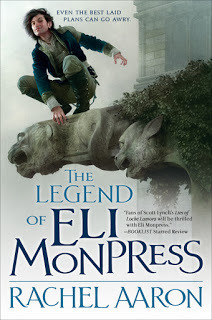 The book that started it all!
The book that started it all!
So if you can't wait another second for No Good Dragon Goes Unpunished , you can get books 1, 2, and 3 of my *completed* Fantasy series about a charming wizard thief and the poor bastards who have to try and catch him for $5.49 each wherever ebooks are sold! You can also get these books in their omnibus edition (pictured above) for $9.99!
If you've ever wanted to try my older series but never got around it, this is a great chance to do so on the cheap. So get out there and try a book! Eli swears you won't regret it, and in this at least, he's always trustworthy!
Okay, okay, sales pitch done. Take it away, Travis!
Hi Folks,
Today I'm going to talk about the neuroscience and biology of writing. While this isn't a bio-hacking article, we're definitely going to go over how to maximize ideal conditions around the neurology that writing depends on. Also, I get to say that having sex will make you a better writer, so this is a great article!
Where'd this come from? Well, as a programmer looking to cut more and better code I've read lots of articles about how to boost, though conserve is more appropriate, the mental output potential of my biology. This research has been ongoing in my life for years now and I've used it as just a grunt coder, as a lead developer, and as Rachel's partner.
Everything here has a strong scientific backing and has been tried and tested by us. It's gonna be exciting!
So, let's talk about...
The Science of Protecting Your CreativityThe weird part of this article is that it's less about finding boosts, which would be bio-hacking IMO, and more about avoiding penalties. See, there's a lot of boat-anchors weighing down the creative mind. Some of these are just the normal mental challenges of life. Many, today's topic, are biological and can be reliably avoided with simple habits or life changes.
To start off with, How [part] of your brain worksThere's been loads of neuroscience research on how our brains work under different conditions. What's really important is how we have basically two different modes focus and not-focus. Yeah, that article I linked was huge and dry, so please let me summarize.
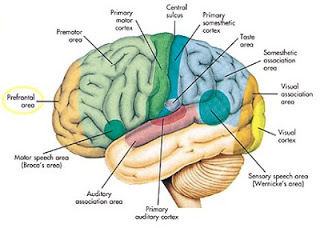
Your brain has one area that we're particularly concerned with and that is the pre-frontal cortex. Other than language, this is one of the most important parts of a writer's brain. It governs a lot of what you'd consider to be your 'conscious thought' and it has two modes or configurations if you will. I'm going to call the mode A and mode B, those aren't technical terms however.
Mode A is for multi-tasking. It's also your fight-or-flight mode. Doing too much too fast, being under stress, juggling tasks, switching focus constantly, being attacked, and other situations requiring you to 'think fast' push your pre-frontal cortex into multi-tasking mode.
This mode is great for these situations, don't think that it isn't valuable. It makes you react first, think second usually. When juggling priorities, it's the best and only way to roll. However, your thinking and decision making is very basic and shallow while doing this, so it has a cost that's highly relevant to our interests.
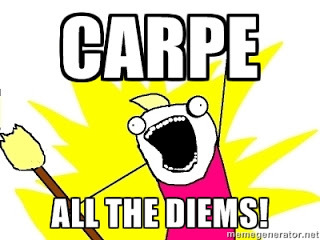
Err.. lemme rephrase that. Better terms would be heuristically and disconnected. Auto-pilot in other words. Snap decisions made on multiple tasks at once are very much you running on rote skill, habit, and ingrained processes. I'm sure ya'll can see where this is going.
What multi-tasking mode is not is creative, innovative, spontaneous, connected, or deep. Mode B, now that's what the writer needs.
Mode B is for focusing. It's harder to get going than mode A is because mode A is by nature very quick to fire up. Mode B is, by the way, a physically different part of the pre-frontal cortex. It's not just a way of thinking, it's a unique part of your brain entirely. (this have been proved by fMRI imagining studies)
What is mode B good for? It's good for focus. Ever been in 'the zone'? Yeah, this part of the pre-frontal cortex is responsible for that. When it's going full steam on a single task, you get the zone.

Focusing mode is deep, subtle, it makes connections between concepts easily and quickly, it has superior short-term memory, it is spontaneous, creative, innovative, playful, it feels deeply, and so on.
I'm pretty sure by now that it's clear what you want your brain to be doing when you are writing. Mode B! Focus!
Its hard for me to concisely describe how important getting into this mindset is for good writing. This is when your whole story is in your head. It's when the story is carrying you away. As Rachel will tell you, the best writing happens when you are totally into the story and just rolling along.
All the tracking, note taking, beats, and wikis in the world are no match for just having your whole story living in your head at the moment of writing. This is, in fact, the way many famous innovators and geniuses have worked over the years. Go read about Isaac Newton, Einstein, or Nikola Tesla and you'll find that many of their inventions were made entirely in their heads before being written or crafted.
Anyway, I hope that I've properly explained how your brain works on this score and convinced you that getting it to focus is a very valuable thing for a writer. Let's move on to what messes this natural transition up and how to avoid them.
Multi-tasking is the devil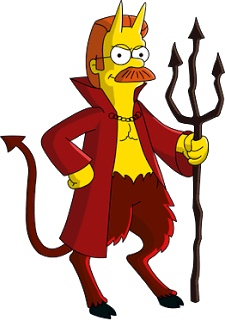 You can write and Netflix at the same time... of course you canY'all are smart. Do I need to explain how interruptions and working on things other than writing while writing is bad? I do hope that you are seeing their destructive power in a new light now though. For loads of practical tips on protecting yourself and building a proper 'time to write' mindset, please check out Rachel's Turtle Method post.
You can write and Netflix at the same time... of course you canY'all are smart. Do I need to explain how interruptions and working on things other than writing while writing is bad? I do hope that you are seeing their destructive power in a new light now though. For loads of practical tips on protecting yourself and building a proper 'time to write' mindset, please check out Rachel's Turtle Method post.
The obvious out of the way, there are subtle and insidious issues that abound here. Like context switching. See, it takes, and I've read this in so many places, about 20-30 minutes on average for a person to get into the much desired zone.
That said, there's easily a good hour after that of loading where more and more information about your story will be part of your present thoughts. Have you had a time when you'd been writing for a while and had not only the current scene in your head but also ideas about all the threads, followups, corrections, and twists you'd thought of while writing it? That's what I'm talking about and it's the best place to be.
(There's some funny exceptions to this though, I've heard that people can eat, go to the bathroom, and do other sorts of 'mindless' activities without breaking the zone. Your mileage may vary.)
 Haha! No interruptions now!
Haha! No interruptions now!
Again, the tactics to protect your zone are all Turtle Method stuff - no social internet, no email, no phone, no texts, no visitors, no playing a game, no watching TV in the background, and so on. Writing first, last, and only when writing.
There's also an optimization component, thoughIf it takes 30 to 90 minutes to get to an ideal mental state for writing, how should you structure your writing time to maximize the amount spent in the best of the zone?

While 'infinite' is the technical right answer here, I'd say 6 hours is the practical one. This is from personal experience, but Rachel, most programmers I've worked with, and myself all seem to have about a 6 hour limit of creative work in their brains per day. After that point, mental fatigue takes its toll on quality rapidly and it's really not a good idea to keep going.
My advice is to try and block out protected writing times as large as your life will let you, up to 6 hours. Get the best chunks you can as writing at all is better than not writing in the end. ^_^
What about multi-tasking writing tasks? For example: what do you do when the scene you are writing suddenly contradicts a previous scene and now you have a problem to smooth out? Or what if you hit a spot that needs more world building? A context switch here is technically writing, but it can definitely knock out a bunch of that forward-looking state information you worked so hard to load in your brain.
My personal method, that worked as a programmer, was just a bug/issue/todo list that sits out of sight but is readily handy. When these things happen, I have found that jotting them down for later processing doesn't break my zone but does get the issue out of my brain and allow me to proceed. I'd recommend this to anyone.
Let's move on, I promised serious biology after all!
Staying in the ZoneUpdate: Tom Sweeney asked a great question down in the comments. Staying in the zone is pretty darned important, so I really should talk more about it. We'll get to the biology in a minute.
Unfortunately, getting into and staying in the zone, with a well engaged mode B pre-frontal is both simple and damnably hard. Working just on writing, or editing, your novel for a dedicated time will do the trick. As I said above, roughly 20-30 minutes of continuous, focused work should get you in the zone.
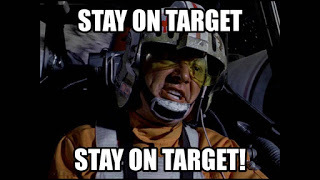
The key to staying in the zone is a matter of not switching gears to something else. I wish there was more to it, but there really isn't. Everything I'm talking about today really has to do with two ideas.
As for what will knock you out of the zone, its all very easy. A single email can do it. This is from personal experience, but the programming industry has a lot to say as well, but thinking about another problem is really what will do it.
I can do lots of mindless activities and still be in the zone. Raise your hand if you've had epic novel development sessions in your head while running, walking, or driving. I can play out extensive dialogues all day when doing housework. This is because vacuuming, dishes, laundry, etc don't require any brain power at all. I could do them in a coma practically.
Hopefully these tips will point you in the right direction for really getting the novel loaded and rolling in your head for maximum awesome. Good Luck! Now, back to the regularly scheduled blog post.
Stress and Cortisol, a writer's enemiesLong and short, Cortisol is the stress hormone. Too much of it, chronically elevated levels, will wreck havoc with your weight, blood pressure, sleep, immune system, and so on. Stress is the primary trigger for cortisol but many other factors can trigger its release (like too much exercise).
Now, please don't go all mainstream news on me, "Cortisol is bad!! Eliminate it all right now!"
 Click to gain +100 to your cynicism
Click to gain +100 to your cynicism
When you need to move or have energy no matter what, cortisol is there for you. It's a crucial part of the adrenal system. A certain level of this hormone is totally healthy. In fact, chronic stress can lead to adrenal burnout which causes a cortisol deficiency, which causes lethargy, depression, and all kinds of fun problems.
Health issues will drag you down as a writer, absolutely, but today is brain day and cortisol really messes with a part of the brain we care about for writing.
All that talk above about getting into the zone and proper functioning of the pre-frontal gets run over by cortisol. It's like anti-writer serum. What can you do about this? We've got ya covered.
Managing cortisol levels There's a lot of advice out there on the causes and the management of cortisol. We've tried just about everything here at casa de Aaron-Bach and I'd like to distill the countless articles we've gone through. Cause it's not actually that hard to manage.Get enough sleep. Sleep deprivation contributes directly to cortisol production and it aggravates all contributing factors. This needs to be #1 on your list no matter what. We actually have a pretty strict work-day bed time around here because of this.Get regular exercise. Light exercise is enough. 20-30 minutes a day, three times a week. Heavy exercise, like 5x5 will produce cortisol. If you aren't even getting light exercise, then there's also a host of low-hanging health benefits awaiting you here.Vitamin C. Around here we call vitamin C "the chill pill" cause, when taken in large 250mg+ doses once a day, it counter-acts a great deal of cortisol and general stress-related biochemical issues. We both thought this was vaguely alternative until we tried it. Read up and see if it's right for you too.Cut the Caffeine. Did I say easy? Sorry. Caffeine triggers an adrenal response which is how it peps you up. So it directly stimulates the production of cortisol and you can see how this is undesirable. Chronic caffeine abuse leads straight to adrenal burnout, insomnia, nervous leg, and a whole load of health issues. Around here, we try to keep below 30mg a day tops. When life gets really tough, I cut it altogether.Sex. woo! Yup, sex, preferably regular sex, is one of the few activities that directly counters cortisol and stress in the body. So yeah, getting laid makes you a better writer ^_~ ... ok bawdiness aside, the dopamine released post-orgasm will also impair your short term memory and focus for an hour or so. 'Plan' accordingly hahaha. Meditation. A powerful tool in this arsenal, but one that many people aren't familiar with. There's a billion studies that show how regular meditation (like 20 min a day) can combat the effects of stress on the body and reduce elevated cortisol levels to normal. There's loads of other benefits as well, so please take a look around and give it a try.Relax. There's really no substitute for some R&R. You need time to decompress, try to carve something out for yourself. Even a half hour a day can have a big effect.Don't work too hard. This is likely impossible, but I have to add it in. If your job is always crazy stressful then there's a bigger problem. I've been around so many over worked programmers. At my last job, someone said to me, "hey, I see you've joined the Pepto-and-Tums-on-your-desk club". Then I realized that everyone around me was fat, sick, with hurt backs, carpel tunnel, high blood pressure, migraines, and working 80 hour weeks non-stop.So there ya go, seven solid, actionable tips (no I'm not counting #8, tough jobs aren't simple situations) that will help keep your stress and cortisol in check.
What will you gain from all this? Haha, probably better health, sleep, and general happiness. For writing, a sharper, clearer mind that has fewer and fewer bad days and more and more good days.
I've covered the two biggest areas I wanted to today, but there's a couple minor issues I'd like to tell ya'll about so that this post can be complete.
Background noise is a destructive force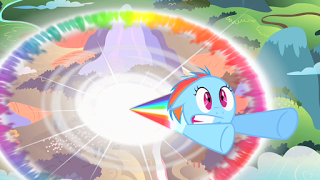 Bad example... but it's hard to find an image of destructive sound!
Bad example... but it's hard to find an image of destructive sound!
A lot of studies (like 240+) have shown that background noise of any kind will impair your ability to read, write, and focus. Introverts beware as you are the most vulnerable to this! Extroverts less so, but it's all still a minus.
The wacky thing about our brain is that, whether you are aware of the sound or not, it still receives and processes it. So even if you are in your book and oblivious to the outside world, your brain is still working on that music, the kids outside, or the trash truck bumping along.
Rachel famously worked in a coffee shop for years, so good writing in a noisy environment is clearly possible. For her, it was the best of bad choices as our home was filled with distractions back then. Like I said, writing is better than not writing.
True silence is likely hard for anyone to achieve. I mean, we bought a house with a basement room just so she could have a quiet, isolated place to write. So yeah, it's tough to get.
Just keep this one in mind and do your best!
Check the baggage at the doorWanna know something funny? When we're RPing and I'm the GM (hence, doing narration for the group if you aren't familiar) you can tell when I'm hungry. It's hilariously subtle but the amount of food and eating that's happening in the game goes up. Why are all the non-player characters greeting us with food or asking for lunch? Travis is hungry, that's why.
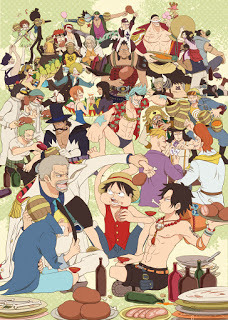
Similar influences can be seen when I'm GMing while sad, mad, or tired. It's reflected in every character and scene that goes on, if only subtly.
This happens to Rachel too! I can tell, when reading her work, if she was really mad or stressed out for a long time as those scenes in the book will be more angry than usual. This isn't to say that the characters are out of character or the plot moved around. It's a tone thing, very subtle, but totally there at the same time.
So, in accordance with much of the advice in this article actually, I'd definitely recommend that you try to build yourself in a bit of chill space. A nap time, snack time, or whatever-you-need time. Ideally, it would be just before you write.
Rachel has a 10-20 minute relaxation period in the morning (after our son goes to school) before she writes. It's just quiet time to read something fun and sip her decaf coffee. Then she goes downstairs to write.
I hope this was educationalAnyway, we really try hard to practice all that we preach here (especially #5 from the list above!).
 WINK!I hope that today showed you at least one "ah ha!" moment that you can walk away with. Putting everything into practice can be pretty daunting so please don't try to implement everything at once. Pick one thing and start there. A lot of tips are life-habits, so they take some easing into.
WINK!I hope that today showed you at least one "ah ha!" moment that you can walk away with. Putting everything into practice can be pretty daunting so please don't try to implement everything at once. Pick one thing and start there. A lot of tips are life-habits, so they take some easing into.
Lastly, none of this will up your actual writing skill. You still have to do all that hard work. This is just helping make sure you're in the best shape you can be when it's time to lay some words down. Writing is hard, so don't make it harder by having unnecessary albatrosses hanging around.
Thanks for reading today. If there's any topics you'd like me or Rachel to talk about here on the blog, please feel free to leave them below. We're always working hard to find information that is useful to you. You can also just hit me up on Twitter, that works too! (@TravBach) Rachel's social media links are here as well if you want to get live updates! (Twitter/Facebook/Tumblr/Google+)
Thanks again for reading, and I'll see you all next week!
Sincerely,
-Travis
Travis is forced away from Pokemon Go (aka, "walking off a bridge waiting to happen") to put together a really awesome blog post on creativity! But first, great news! The first three books of my original series, The Legend of Eli Monpress are on sale!
 The book that started it all!
The book that started it all!So if you can't wait another second for No Good Dragon Goes Unpunished , you can get books 1, 2, and 3 of my *completed* Fantasy series about a charming wizard thief and the poor bastards who have to try and catch him for $5.49 each wherever ebooks are sold! You can also get these books in their omnibus edition (pictured above) for $9.99!
If you've ever wanted to try my older series but never got around it, this is a great chance to do so on the cheap. So get out there and try a book! Eli swears you won't regret it, and in this at least, he's always trustworthy!
Okay, okay, sales pitch done. Take it away, Travis!
Hi Folks,
Today I'm going to talk about the neuroscience and biology of writing. While this isn't a bio-hacking article, we're definitely going to go over how to maximize ideal conditions around the neurology that writing depends on. Also, I get to say that having sex will make you a better writer, so this is a great article!
Where'd this come from? Well, as a programmer looking to cut more and better code I've read lots of articles about how to boost, though conserve is more appropriate, the mental output potential of my biology. This research has been ongoing in my life for years now and I've used it as just a grunt coder, as a lead developer, and as Rachel's partner.
Everything here has a strong scientific backing and has been tried and tested by us. It's gonna be exciting!
So, let's talk about...
The Science of Protecting Your CreativityThe weird part of this article is that it's less about finding boosts, which would be bio-hacking IMO, and more about avoiding penalties. See, there's a lot of boat-anchors weighing down the creative mind. Some of these are just the normal mental challenges of life. Many, today's topic, are biological and can be reliably avoided with simple habits or life changes.
To start off with, How [part] of your brain worksThere's been loads of neuroscience research on how our brains work under different conditions. What's really important is how we have basically two different modes focus and not-focus. Yeah, that article I linked was huge and dry, so please let me summarize.

Your brain has one area that we're particularly concerned with and that is the pre-frontal cortex. Other than language, this is one of the most important parts of a writer's brain. It governs a lot of what you'd consider to be your 'conscious thought' and it has two modes or configurations if you will. I'm going to call the mode A and mode B, those aren't technical terms however.
Mode A is for multi-tasking. It's also your fight-or-flight mode. Doing too much too fast, being under stress, juggling tasks, switching focus constantly, being attacked, and other situations requiring you to 'think fast' push your pre-frontal cortex into multi-tasking mode.
This mode is great for these situations, don't think that it isn't valuable. It makes you react first, think second usually. When juggling priorities, it's the best and only way to roll. However, your thinking and decision making is very basic and shallow while doing this, so it has a cost that's highly relevant to our interests.

Err.. lemme rephrase that. Better terms would be heuristically and disconnected. Auto-pilot in other words. Snap decisions made on multiple tasks at once are very much you running on rote skill, habit, and ingrained processes. I'm sure ya'll can see where this is going.
What multi-tasking mode is not is creative, innovative, spontaneous, connected, or deep. Mode B, now that's what the writer needs.
Mode B is for focusing. It's harder to get going than mode A is because mode A is by nature very quick to fire up. Mode B is, by the way, a physically different part of the pre-frontal cortex. It's not just a way of thinking, it's a unique part of your brain entirely. (this have been proved by fMRI imagining studies)
What is mode B good for? It's good for focus. Ever been in 'the zone'? Yeah, this part of the pre-frontal cortex is responsible for that. When it's going full steam on a single task, you get the zone.

Focusing mode is deep, subtle, it makes connections between concepts easily and quickly, it has superior short-term memory, it is spontaneous, creative, innovative, playful, it feels deeply, and so on.
I'm pretty sure by now that it's clear what you want your brain to be doing when you are writing. Mode B! Focus!
Its hard for me to concisely describe how important getting into this mindset is for good writing. This is when your whole story is in your head. It's when the story is carrying you away. As Rachel will tell you, the best writing happens when you are totally into the story and just rolling along.
All the tracking, note taking, beats, and wikis in the world are no match for just having your whole story living in your head at the moment of writing. This is, in fact, the way many famous innovators and geniuses have worked over the years. Go read about Isaac Newton, Einstein, or Nikola Tesla and you'll find that many of their inventions were made entirely in their heads before being written or crafted.
Anyway, I hope that I've properly explained how your brain works on this score and convinced you that getting it to focus is a very valuable thing for a writer. Let's move on to what messes this natural transition up and how to avoid them.
Multi-tasking is the devil
 You can write and Netflix at the same time... of course you canY'all are smart. Do I need to explain how interruptions and working on things other than writing while writing is bad? I do hope that you are seeing their destructive power in a new light now though. For loads of practical tips on protecting yourself and building a proper 'time to write' mindset, please check out Rachel's Turtle Method post.
You can write and Netflix at the same time... of course you canY'all are smart. Do I need to explain how interruptions and working on things other than writing while writing is bad? I do hope that you are seeing their destructive power in a new light now though. For loads of practical tips on protecting yourself and building a proper 'time to write' mindset, please check out Rachel's Turtle Method post.The obvious out of the way, there are subtle and insidious issues that abound here. Like context switching. See, it takes, and I've read this in so many places, about 20-30 minutes on average for a person to get into the much desired zone.
That said, there's easily a good hour after that of loading where more and more information about your story will be part of your present thoughts. Have you had a time when you'd been writing for a while and had not only the current scene in your head but also ideas about all the threads, followups, corrections, and twists you'd thought of while writing it? That's what I'm talking about and it's the best place to be.
The longer you stay deep in the zone, the better your book will be and the faster you will write in general.Its also well known, in programming, that the right kind of interruption can blast all of that out of your brain. A single text can ruin a mental state that took an hour to achieve and getting it back is not unlike trying to go back to sleep to resume a dream.
(There's some funny exceptions to this though, I've heard that people can eat, go to the bathroom, and do other sorts of 'mindless' activities without breaking the zone. Your mileage may vary.)
 Haha! No interruptions now!
Haha! No interruptions now!Again, the tactics to protect your zone are all Turtle Method stuff - no social internet, no email, no phone, no texts, no visitors, no playing a game, no watching TV in the background, and so on. Writing first, last, and only when writing.
There's also an optimization component, thoughIf it takes 30 to 90 minutes to get to an ideal mental state for writing, how should you structure your writing time to maximize the amount spent in the best of the zone?

While 'infinite' is the technical right answer here, I'd say 6 hours is the practical one. This is from personal experience, but Rachel, most programmers I've worked with, and myself all seem to have about a 6 hour limit of creative work in their brains per day. After that point, mental fatigue takes its toll on quality rapidly and it's really not a good idea to keep going.
My advice is to try and block out protected writing times as large as your life will let you, up to 6 hours. Get the best chunks you can as writing at all is better than not writing in the end. ^_^
What about multi-tasking writing tasks? For example: what do you do when the scene you are writing suddenly contradicts a previous scene and now you have a problem to smooth out? Or what if you hit a spot that needs more world building? A context switch here is technically writing, but it can definitely knock out a bunch of that forward-looking state information you worked so hard to load in your brain.
My personal method, that worked as a programmer, was just a bug/issue/todo list that sits out of sight but is readily handy. When these things happen, I have found that jotting them down for later processing doesn't break my zone but does get the issue out of my brain and allow me to proceed. I'd recommend this to anyone.
Let's move on, I promised serious biology after all!
Staying in the ZoneUpdate: Tom Sweeney asked a great question down in the comments. Staying in the zone is pretty darned important, so I really should talk more about it. We'll get to the biology in a minute.
Unfortunately, getting into and staying in the zone, with a well engaged mode B pre-frontal is both simple and damnably hard. Working just on writing, or editing, your novel for a dedicated time will do the trick. As I said above, roughly 20-30 minutes of continuous, focused work should get you in the zone.

The key to staying in the zone is a matter of not switching gears to something else. I wish there was more to it, but there really isn't. Everything I'm talking about today really has to do with two ideas.
1. Eliminate everything that might drag away your attentionA certain amount of focusing on your book to start with, for any session, will be willpower and practice. Forcing yourself to focus until you get into the zone is a skill and has to be developed to a certain extent. It'll get easier.
2. Eliminate factors that make it harder to get into the zone. (See below)
As for what will knock you out of the zone, its all very easy. A single email can do it. This is from personal experience, but the programming industry has a lot to say as well, but thinking about another problem is really what will do it.
I can do lots of mindless activities and still be in the zone. Raise your hand if you've had epic novel development sessions in your head while running, walking, or driving. I can play out extensive dialogues all day when doing housework. This is because vacuuming, dishes, laundry, etc don't require any brain power at all. I could do them in a coma practically.
Hopefully these tips will point you in the right direction for really getting the novel loaded and rolling in your head for maximum awesome. Good Luck! Now, back to the regularly scheduled blog post.
Stress and Cortisol, a writer's enemiesLong and short, Cortisol is the stress hormone. Too much of it, chronically elevated levels, will wreck havoc with your weight, blood pressure, sleep, immune system, and so on. Stress is the primary trigger for cortisol but many other factors can trigger its release (like too much exercise).
Now, please don't go all mainstream news on me, "Cortisol is bad!! Eliminate it all right now!"
 Click to gain +100 to your cynicism
Click to gain +100 to your cynicismWhen you need to move or have energy no matter what, cortisol is there for you. It's a crucial part of the adrenal system. A certain level of this hormone is totally healthy. In fact, chronic stress can lead to adrenal burnout which causes a cortisol deficiency, which causes lethargy, depression, and all kinds of fun problems.
Health issues will drag you down as a writer, absolutely, but today is brain day and cortisol really messes with a part of the brain we care about for writing.
Cortisol impairs the functions of the pre-frontal cortex. (ref)Ever fought long and hard for that writing time, only to sit down and feel like your brain is mush and won't work? Well, fatigue is the main culprit, but too much cortisol is a tag-team elbow drop. When this happens to Rachel, she has to stop writing. Sometimes for a day or more if it's super bad (if we've been through the parental grinder, for example).
All that talk above about getting into the zone and proper functioning of the pre-frontal gets run over by cortisol. It's like anti-writer serum. What can you do about this? We've got ya covered.
Managing cortisol levels There's a lot of advice out there on the causes and the management of cortisol. We've tried just about everything here at casa de Aaron-Bach and I'd like to distill the countless articles we've gone through. Cause it's not actually that hard to manage.Get enough sleep. Sleep deprivation contributes directly to cortisol production and it aggravates all contributing factors. This needs to be #1 on your list no matter what. We actually have a pretty strict work-day bed time around here because of this.Get regular exercise. Light exercise is enough. 20-30 minutes a day, three times a week. Heavy exercise, like 5x5 will produce cortisol. If you aren't even getting light exercise, then there's also a host of low-hanging health benefits awaiting you here.Vitamin C. Around here we call vitamin C "the chill pill" cause, when taken in large 250mg+ doses once a day, it counter-acts a great deal of cortisol and general stress-related biochemical issues. We both thought this was vaguely alternative until we tried it. Read up and see if it's right for you too.Cut the Caffeine. Did I say easy? Sorry. Caffeine triggers an adrenal response which is how it peps you up. So it directly stimulates the production of cortisol and you can see how this is undesirable. Chronic caffeine abuse leads straight to adrenal burnout, insomnia, nervous leg, and a whole load of health issues. Around here, we try to keep below 30mg a day tops. When life gets really tough, I cut it altogether.Sex. woo! Yup, sex, preferably regular sex, is one of the few activities that directly counters cortisol and stress in the body. So yeah, getting laid makes you a better writer ^_~ ... ok bawdiness aside, the dopamine released post-orgasm will also impair your short term memory and focus for an hour or so. 'Plan' accordingly hahaha. Meditation. A powerful tool in this arsenal, but one that many people aren't familiar with. There's a billion studies that show how regular meditation (like 20 min a day) can combat the effects of stress on the body and reduce elevated cortisol levels to normal. There's loads of other benefits as well, so please take a look around and give it a try.Relax. There's really no substitute for some R&R. You need time to decompress, try to carve something out for yourself. Even a half hour a day can have a big effect.Don't work too hard. This is likely impossible, but I have to add it in. If your job is always crazy stressful then there's a bigger problem. I've been around so many over worked programmers. At my last job, someone said to me, "hey, I see you've joined the Pepto-and-Tums-on-your-desk club". Then I realized that everyone around me was fat, sick, with hurt backs, carpel tunnel, high blood pressure, migraines, and working 80 hour weeks non-stop.So there ya go, seven solid, actionable tips (no I'm not counting #8, tough jobs aren't simple situations) that will help keep your stress and cortisol in check.
What will you gain from all this? Haha, probably better health, sleep, and general happiness. For writing, a sharper, clearer mind that has fewer and fewer bad days and more and more good days.
I've covered the two biggest areas I wanted to today, but there's a couple minor issues I'd like to tell ya'll about so that this post can be complete.
Background noise is a destructive force
 Bad example... but it's hard to find an image of destructive sound!
Bad example... but it's hard to find an image of destructive sound!A lot of studies (like 240+) have shown that background noise of any kind will impair your ability to read, write, and focus. Introverts beware as you are the most vulnerable to this! Extroverts less so, but it's all still a minus.
The wacky thing about our brain is that, whether you are aware of the sound or not, it still receives and processes it. So even if you are in your book and oblivious to the outside world, your brain is still working on that music, the kids outside, or the trash truck bumping along.
Rachel famously worked in a coffee shop for years, so good writing in a noisy environment is clearly possible. For her, it was the best of bad choices as our home was filled with distractions back then. Like I said, writing is better than not writing.
True silence is likely hard for anyone to achieve. I mean, we bought a house with a basement room just so she could have a quiet, isolated place to write. So yeah, it's tough to get.
Just keep this one in mind and do your best!
Check the baggage at the doorWanna know something funny? When we're RPing and I'm the GM (hence, doing narration for the group if you aren't familiar) you can tell when I'm hungry. It's hilariously subtle but the amount of food and eating that's happening in the game goes up. Why are all the non-player characters greeting us with food or asking for lunch? Travis is hungry, that's why.

Similar influences can be seen when I'm GMing while sad, mad, or tired. It's reflected in every character and scene that goes on, if only subtly.
This happens to Rachel too! I can tell, when reading her work, if she was really mad or stressed out for a long time as those scenes in the book will be more angry than usual. This isn't to say that the characters are out of character or the plot moved around. It's a tone thing, very subtle, but totally there at the same time.
So, in accordance with much of the advice in this article actually, I'd definitely recommend that you try to build yourself in a bit of chill space. A nap time, snack time, or whatever-you-need time. Ideally, it would be just before you write.
Rachel has a 10-20 minute relaxation period in the morning (after our son goes to school) before she writes. It's just quiet time to read something fun and sip her decaf coffee. Then she goes downstairs to write.
I hope this was educationalAnyway, we really try hard to practice all that we preach here (especially #5 from the list above!).
 WINK!I hope that today showed you at least one "ah ha!" moment that you can walk away with. Putting everything into practice can be pretty daunting so please don't try to implement everything at once. Pick one thing and start there. A lot of tips are life-habits, so they take some easing into.
WINK!I hope that today showed you at least one "ah ha!" moment that you can walk away with. Putting everything into practice can be pretty daunting so please don't try to implement everything at once. Pick one thing and start there. A lot of tips are life-habits, so they take some easing into.Lastly, none of this will up your actual writing skill. You still have to do all that hard work. This is just helping make sure you're in the best shape you can be when it's time to lay some words down. Writing is hard, so don't make it harder by having unnecessary albatrosses hanging around.
Thanks for reading today. If there's any topics you'd like me or Rachel to talk about here on the blog, please feel free to leave them below. We're always working hard to find information that is useful to you. You can also just hit me up on Twitter, that works too! (@TravBach) Rachel's social media links are here as well if you want to get live updates! (Twitter/Facebook/Tumblr/Google+)
Thanks again for reading, and I'll see you all next week!
Sincerely,
-Travis
Published on July 11, 2016 06:42
July 6, 2016
Writing Wednesday: 4 Quick and Easy Ways to Make Your Writing More Interesting
Hello everyone. Happy Canada Day/4th of July/random week in July, and welcome back to Prose Summer Camp!
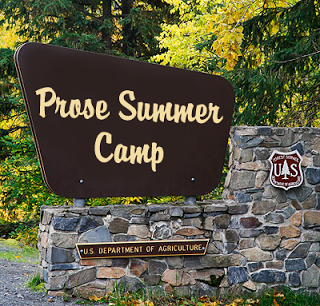
This is going to be our last Prose Summer Camp post for the year. We've had a really good run these last two months, but I've covered just about everything I wanted to cover about prose level writing, and I'm ready to get back to my true love: obnoxiously over-detailed analysis of big-picture writing issues! Hooray!
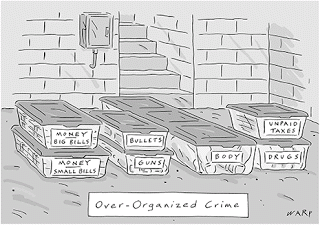 No such thing as too much organization!Before we go, though, I wanted to talk about the part of prose level I probably think about the most, and that's how to make my actual writing clearer, more readable, and more interesting for my audience.
No such thing as too much organization!Before we go, though, I wanted to talk about the part of prose level I probably think about the most, and that's how to make my actual writing clearer, more readable, and more interesting for my audience.
This is something every writer strives to do. Who doesn't want to make their words more interesting? But while I obviously can't tell you what words to write because I don't know your story or you're style, I have learned a lot of tricks over the years. Some of these have come from editors, some from reading and studying better authors than myself, and a few from my own trial and error.
Big or small, these are all tricks I use in my own novels to get and keep reader attention (or at least keep eyeballs from glazing over). As you'll see, they're all pretty simple. So simple that you might already know them, actually, but fingers crossed that I can deliver something new!
But first, as always, this disclaimer:
**This is how I write. All of the tips below are drawn from my taste and experience as a writer. If you don't like my writing style, knowing how I dress up my paragraphs might not be useful. This is fine! Everyone writes in their own voice. I hope, of course, that you will still find some it helpful, but please don't take any of this as me setting down the One True Path of Writing. I'm just telling you what works for me in the hopes that it might also work for you.**
Now that's clear, let's get to the list!
Writing Wednesday: 4 Quick, Easy Ways to Make Your Writing More Interesting
To see what I mean, look at this very famous example from the late, great Gary Provost.

This is the single best example of I've seen of the immense power of sentences. Without changing your story, or even what you were going to say, you can vastly, vastly improve your writing simply by saying it in a different way.
This works is because readers are no different than any other audience. Humans universally appreciate variations in patterns. Just as we don't like to hear the same three chords in music or the same three colors used in every painting, we don't like to hear the same pattern in our language.
As novel authors, we're primarily invested in meaning--characters, plot, world, story, and so forth. Because of this, we too often let our prose grow lazy. It's easy to slack off and stop thinking about paragraph level writing when you're on paragraph #2039586803. But laziness in all its forms is the enemy of good writing. Everything we value in fiction--genre or otherwise--is only possible through words. Prose is the window to our worlds, the notes to our music, and it's our job as authors to be thoughtful at all levels of construction.
When a reader opens your books, words are the first thing they see. Not story, not characters, not hooks. The very first impression they get of us as authors comes in a word followed by another word followed by another. All of these words pile up into the thing we call story, but if we don't think about how that pile is formed, we will never be more than half the writer we could have been.
So if you take nothing else from this list, I hope you'll take a moment to think about varying your sentences. You don't have to be poetic about it, but just taking a second to make sure every sentence in the paragraph doesn't start with the same "She saw, she walked, she thought" construction can do absolute wonders for your writing. Trust me, your readers will thank you.
Tip 2: Keep Your Paragraphs ShortWay back in the day, when I was but a wee little writer with dreams of publication dancing in my head, I wrote a book that was rejected by everyone in New York.
Needless to say, it was a humbling year, and I eventually trunked the book in favor of a fun little Fantasy about a wizard thief that turned out to be a much better idea. But during the book's rounds of repeated failure, a kind editor rejected the book with a bit of advice I've treasured ever since:
"Paragraphs should be no more than four lines. Yours are way too long. My eyes glaze over and I just stop reading."
This sounds harsh in retrospect, but it hit me like a lightning bolt to the brain. In high school English, I'd always been taught that paragraphs had to be at least three sentences, but I'd never heard of an upper limit. This is because, technically, there isn't one. So long as you stay on the same idea, your paragraph can go on forever. But while you absolutely can do this, and many authors have, it's not always a good idea. To see what I mean, let's take a look at a random page from James Joyce's Dubliners .
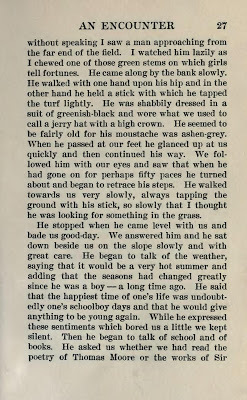
This is what we in the modern parlance would call a "Wall o'Text." Granted, it's also a vital piece of the literary cannon and an important work, but just look at that page. That is intimidating, which is actually exactly what Joyce wanted. He made his books purposefully hard to read because he wanted his reader to have to work for the story in the belief that we'd get more out of it that way.
But while I suppose there's a grain of truth to that, and Joyce certainly has his fans, his books are also famous for being books people start, but don't finish. They're simply too hard, too intimidating for most readers, and that's not what I want.
I'm an unapologetic genre writer. I write fun, fast paced stories designed to grab the reader and whisk them away. This isn't to say my books are brainless escapist reading. I most definitely have something to say in every volume, but that doesn't mean I have to be obtuse about it.
When I write fiction, my goal is to be as interesting and readable as possible. I aim to entertain always, because that's why my readers are here: to be entertained and delighted. That is the magic of genre fiction, and part of that magic is writing in an approachable, interesting, fun-to-read style. To this end, short paragraphs are preferable to long paragraphs because, quite frankly, they're easier to read.
Now, again, this is a personal stylistic choice, but it's one that's served me very, very well. I've always found that when I'm struggling with a complicated idea or a long description, breaking the text up into bite-sized chunks not only make the text read faster, but readers are more likely to actually read all of it.
There's a reason TLDR is a thing. It's a fact of life that eyes glaze over when we see giant walls o'text, and if there's one thing we never, ever, ever want as authors, it's readers who don't read.
This isn't to say you can never have a long paragraph. It's your book, you can do anything you like! But if your manuscript looks like the image above, it would be worth your time to see if you can break some of those monsters up. Many times, you won't even have to change the text. Whether you're writing fiction, essays, or even blogging, just adding that extra visual break can make a huge difference in reader engagement. It's a very simple fix that's easy to undo if you change your mind, so if you're having an issue with dragging text, I heartily encourage you to give it a try!
Tip 3: Choose Your Tense Carefully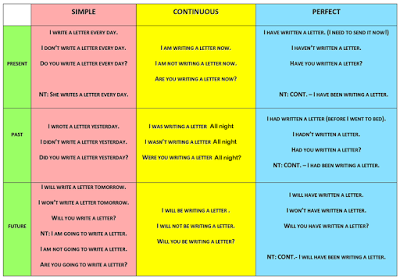 Click for a readable version!
Click for a readable version!
This is another of those high school English things that I wish I'd paid more attention to at the time.
Any writing you do inevitably involves choosing a tense. Past tense is the most common and, in my humble opinion, the easiest to work with because it has the widest range. You can write scenes from multiple parts of your timeline without ever having to worry about your verbs, you can speed up or slow down the action at will with nothing but sentence structure, you can even jump narrators with little more than a line break without derailing the reader's perception of where we are and what's going on.
All of these reasons make past tense the most popular tense for fiction and the closest thing we have to a default. It really is the most verstile tense! But just because it's common doesn't mean it's the best.
If you've read any YA in the past decade, you've almost certainly read stories written in present tense, probably first person present tense. This is because present tense, unlike past tense, comes with the added bonus of immediacy. To see what I mean, look at these two paragraphs.
"The shots whizzed over my head, missing my hair by inches."
vs."The shots whiz over my head, missing my hair by inches."
As you can see, both of these sentences are in first person, which gives us a feeling of "being there" already, but the second sentence is even more intense because of the tense. Those bullets didn't whiz by at some unspecified time in the past, they're whizzing by right now. Right this very moment!
This is the power of present tense. By setting our action in the now, not only do we amp the tension, we also remove the implication inherent to past tense that the characters live to tell us what happened. Present tense is the verb equivalent of the embedded war zone reporter with all the danger and suspense that implies.
But while that is super thrilling by default (hence why present tense is so popular in teenage fiction, which thrives on danger and drama), all that constant tension can also be exhausting. There's no easy breaks in present tense. It's always happening right now, which means unless you want to write a purposefully low energy scene and run the risk of being boring, you have to keep running all the time.
When done well, present tense can be thrilling and edge-of-your-seat tense, as we saw in The Hunger Games. When done poorly, however, present tense novels can be exhausting and samey, like listening to repetitive music at way too high a volume. The challenge is all in the execution, and if you're not 100% sure you know what you're doing, choosing the wrong tense is picking up enough rope to hang yourself.
Now, obviously, it is entirely possible to write amazing novels in any tense. Writers do it all the time, and I'm not here to say they're wrong. Just because I prefer the ease and versatility of past tense doesn't mean I'm right, it just means I know what I like. That's important, because you should know what you like and why. You should feel comfortable with your own writing, because if you're not, no amount of effort on your part or anyone else's will ever make that text feel anything but strained and uncomfortable, because that's how you were when you wrote it.
Voice as an author isn't just about what you say. How you say it is equally as important, as is how you feel while writing. If you're struggling with your verbs and tension, that dischord is going to show up in your books, because we are our writing. This is why it is so, so important to put as much thought and consideration into these prose level choices as we do into our characters, world, and story. This stuff matters.
Choices like these color every word we write, so while I won't tell you what tense to write it, I will ask that you think about your choice. Don't just write something because you think you have to. Know what grammar you're choosing, and then chose your style deliberately and confidently. If you find out later you were wrong, change it. Rewrite the whole book if you have to, just make sure you're happy with the words you're putting down, because if you're not, no one will be.
Tip 4: Passive Voice Really is Bad, But Not as Bad as You Think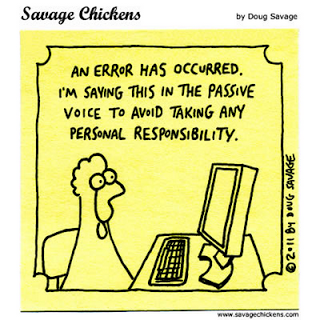
I hesitated to put this in because it's so ubiquitous. Hating on passive voice is pretty much the national author and editor passtime, and yet it is so misunderstood. I've met writers with dozens of books under their belts who can't explain passive voice to me.
Clearly, this is a hazy area. So, to clear things up a bit, here's what passive voice is not.
Passive voice is not a grammatical error. It is absolutely grammatically acceptable to be passive in writing.Passive voice is not inherently evil. It is a stylist choice, and like all choices, it can be used badly or to great effect depending on the author.
The passive voice is simply a sentence construction where the subject of the sentence is also the object of the verb.
"Devi shot the alien." is active voice. The subject (Devi) of the verb (shot) is actively acting on the object (the alien).
"The alien was shot by Devi." is passive voice. In this case, the subject and the object of the verb are the same: the alien. He/she/it is what we're talking about and the one who was verbed. Meanwhile, Devi, the main character who should be the star, is grammatically forced to become a passenger in her own sentence (and she's pissed about it!).
The meaning of both sentences is still the same--a gun was fired, an alien got hurt--but the emphasis is very different. In the active voice, Devi is the master of her sentence. In the passive voice, the focus is on the alien. That said, both sentences are correct, which means the one you choose is a just that: a stylistic choice.
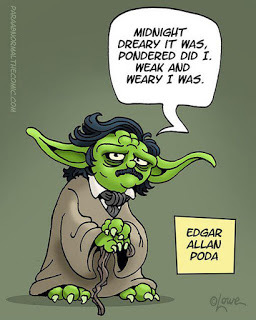 A perfect choice, obviously
A perfect choice, obviously
Making choices is what authorship is all about, but while both choices are technically correct, I'm going to bet the vast majority of you prefer the active sentence over the passive one simply because it's a) clearer, and b) more exciting. Devi is shooting an alien! That's awesome!
The passive sentence is more contemplative, more detached. That's not so great for alien shooting, but what about this?
"The reports of my death are greatly exaggerated."
That's right. Mark Twain, who knew a thing or two about sentence construction, used the passive voice frequently! This is because passive voice is a great stylistic choice when you're trying to emphasize the object for dramatic effect. In this example, the thing that makes this joke funny "the reports of my death" is the object of the verb "exaggerated."
The implied subject, in this case the reporter who has erroneously proclaimed Mr. Twain dead, is merely an afterthought. He's not part of the joke, and therefore not important to the sentence. In this case, an active version of the sentence, such as "The reporter has greatly exaggerated the reports of my death" isn't nearly as memorable or strong.
This is a perfect example of how the passive voice gets a bad rap. Yes, it's bad most of the time, and almost always when used by accident. But in the hands of a master, it can also be used to great effect. The trick, though, is that you have to know what you're doing.
So if you're serious about improving your prose, I would strongly suggest you spend some time getting to know the passive voice in all its myriad forms. There are a million places to learn about this online, but a quick and dirty way is to ask, "What is important in this sentence?"
If it's the subject--a major character, an important object or place, and so forth--then you will almost always be better off using the active voice. ie:
"The magician stood erect, menacing the attackers with demons, metamorphoses, paralyzing ailments, and secret judo holds. Molly picked up a rock." (Peter S. Beagle)
These are strong sentences. They are clear, easy to read, and exciting. But if you're trying to convey an idea where the object of the verb is the most import element, then passive voice can be a very good and beautiful choice. For example:
"It would be the last unicorn in the world to come to Molly Grue." (also Peter S. Beagle) (hey, wouldn't be a Prose Summer Camp post without quotes from The Last Unicorn!)
In this example, the passivity itself is part of the story. No woman in the world looked hard for a unicorn than Molly did when she was young. Now, unexpectedly, in the inglorious middle of her life, long after she'd given up on dreams, the last unicorn comes to her by chance. In this passive sentence, Beagle shows us the entirety of this character's life to this point. She's been waiting to see a unicorn her entire life. Now, she has, and this is the moment when Molly quits being passive and becomes an active character, reaching out to touch the unicorn before she forgives her and decides to leave her old life behind and throw everything into the unicorn's quest.
For my money, this is one of the most beautiful and moving lines of dialogue in modern Fantasy. If Beagle had taken the hard line so many writing guides suggest and banished passive voice from his work, this sentence wouldn't exist, and our lives would be poorer for it. So while active voice is the better choice most of the time, it is by no means a hard set rule.
TLDR: eliminating accidental passive voice will absolutely make your writing stronger, but choosing to use passive voice when appropriate is an artistic decision that can make it more beautiful.
As with everything in writing, the choice is up to you. Writers truly are gods. There is no rule we can't break, no line we can't cross, provided we do it well. Quality is the only measure of fiction that matters, but the only way to ensure that quality consistently is to know what we're doing.
Learning to pay attention to our prose and understand how it works is the entire point of this Prose Summer Camp series. And while I can't being to think I've laid out a comprehensive study, I do sincerely hope I've helped shed some light on this arcane and fickle beast we call grammar.
Thank you as always for reading! If you enjoyed the show, please follow me on Twitter/Facebook/Tumblr/Google+ to never miss a post. Keep cool, and I hope you're getting lots of writing done this summer!
Yours always,
Rachel

This is going to be our last Prose Summer Camp post for the year. We've had a really good run these last two months, but I've covered just about everything I wanted to cover about prose level writing, and I'm ready to get back to my true love: obnoxiously over-detailed analysis of big-picture writing issues! Hooray!
 No such thing as too much organization!Before we go, though, I wanted to talk about the part of prose level I probably think about the most, and that's how to make my actual writing clearer, more readable, and more interesting for my audience.
No such thing as too much organization!Before we go, though, I wanted to talk about the part of prose level I probably think about the most, and that's how to make my actual writing clearer, more readable, and more interesting for my audience.This is something every writer strives to do. Who doesn't want to make their words more interesting? But while I obviously can't tell you what words to write because I don't know your story or you're style, I have learned a lot of tricks over the years. Some of these have come from editors, some from reading and studying better authors than myself, and a few from my own trial and error.
Big or small, these are all tricks I use in my own novels to get and keep reader attention (or at least keep eyeballs from glazing over). As you'll see, they're all pretty simple. So simple that you might already know them, actually, but fingers crossed that I can deliver something new!
But first, as always, this disclaimer:
**This is how I write. All of the tips below are drawn from my taste and experience as a writer. If you don't like my writing style, knowing how I dress up my paragraphs might not be useful. This is fine! Everyone writes in their own voice. I hope, of course, that you will still find some it helpful, but please don't take any of this as me setting down the One True Path of Writing. I'm just telling you what works for me in the hopes that it might also work for you.**
Now that's clear, let's get to the list!
Writing Wednesday: 4 Quick, Easy Ways to Make Your Writing More Interesting
To see what I mean, look at this very famous example from the late, great Gary Provost.

This is the single best example of I've seen of the immense power of sentences. Without changing your story, or even what you were going to say, you can vastly, vastly improve your writing simply by saying it in a different way.
This works is because readers are no different than any other audience. Humans universally appreciate variations in patterns. Just as we don't like to hear the same three chords in music or the same three colors used in every painting, we don't like to hear the same pattern in our language.
As novel authors, we're primarily invested in meaning--characters, plot, world, story, and so forth. Because of this, we too often let our prose grow lazy. It's easy to slack off and stop thinking about paragraph level writing when you're on paragraph #2039586803. But laziness in all its forms is the enemy of good writing. Everything we value in fiction--genre or otherwise--is only possible through words. Prose is the window to our worlds, the notes to our music, and it's our job as authors to be thoughtful at all levels of construction.
When a reader opens your books, words are the first thing they see. Not story, not characters, not hooks. The very first impression they get of us as authors comes in a word followed by another word followed by another. All of these words pile up into the thing we call story, but if we don't think about how that pile is formed, we will never be more than half the writer we could have been.
So if you take nothing else from this list, I hope you'll take a moment to think about varying your sentences. You don't have to be poetic about it, but just taking a second to make sure every sentence in the paragraph doesn't start with the same "She saw, she walked, she thought" construction can do absolute wonders for your writing. Trust me, your readers will thank you.
Tip 2: Keep Your Paragraphs ShortWay back in the day, when I was but a wee little writer with dreams of publication dancing in my head, I wrote a book that was rejected by everyone in New York.
Needless to say, it was a humbling year, and I eventually trunked the book in favor of a fun little Fantasy about a wizard thief that turned out to be a much better idea. But during the book's rounds of repeated failure, a kind editor rejected the book with a bit of advice I've treasured ever since:
"Paragraphs should be no more than four lines. Yours are way too long. My eyes glaze over and I just stop reading."
This sounds harsh in retrospect, but it hit me like a lightning bolt to the brain. In high school English, I'd always been taught that paragraphs had to be at least three sentences, but I'd never heard of an upper limit. This is because, technically, there isn't one. So long as you stay on the same idea, your paragraph can go on forever. But while you absolutely can do this, and many authors have, it's not always a good idea. To see what I mean, let's take a look at a random page from James Joyce's Dubliners .

This is what we in the modern parlance would call a "Wall o'Text." Granted, it's also a vital piece of the literary cannon and an important work, but just look at that page. That is intimidating, which is actually exactly what Joyce wanted. He made his books purposefully hard to read because he wanted his reader to have to work for the story in the belief that we'd get more out of it that way.
But while I suppose there's a grain of truth to that, and Joyce certainly has his fans, his books are also famous for being books people start, but don't finish. They're simply too hard, too intimidating for most readers, and that's not what I want.
I'm an unapologetic genre writer. I write fun, fast paced stories designed to grab the reader and whisk them away. This isn't to say my books are brainless escapist reading. I most definitely have something to say in every volume, but that doesn't mean I have to be obtuse about it.
When I write fiction, my goal is to be as interesting and readable as possible. I aim to entertain always, because that's why my readers are here: to be entertained and delighted. That is the magic of genre fiction, and part of that magic is writing in an approachable, interesting, fun-to-read style. To this end, short paragraphs are preferable to long paragraphs because, quite frankly, they're easier to read.
Now, again, this is a personal stylistic choice, but it's one that's served me very, very well. I've always found that when I'm struggling with a complicated idea or a long description, breaking the text up into bite-sized chunks not only make the text read faster, but readers are more likely to actually read all of it.
There's a reason TLDR is a thing. It's a fact of life that eyes glaze over when we see giant walls o'text, and if there's one thing we never, ever, ever want as authors, it's readers who don't read.
This isn't to say you can never have a long paragraph. It's your book, you can do anything you like! But if your manuscript looks like the image above, it would be worth your time to see if you can break some of those monsters up. Many times, you won't even have to change the text. Whether you're writing fiction, essays, or even blogging, just adding that extra visual break can make a huge difference in reader engagement. It's a very simple fix that's easy to undo if you change your mind, so if you're having an issue with dragging text, I heartily encourage you to give it a try!
Tip 3: Choose Your Tense Carefully
 Click for a readable version!
Click for a readable version!This is another of those high school English things that I wish I'd paid more attention to at the time.
Any writing you do inevitably involves choosing a tense. Past tense is the most common and, in my humble opinion, the easiest to work with because it has the widest range. You can write scenes from multiple parts of your timeline without ever having to worry about your verbs, you can speed up or slow down the action at will with nothing but sentence structure, you can even jump narrators with little more than a line break without derailing the reader's perception of where we are and what's going on.
All of these reasons make past tense the most popular tense for fiction and the closest thing we have to a default. It really is the most verstile tense! But just because it's common doesn't mean it's the best.
If you've read any YA in the past decade, you've almost certainly read stories written in present tense, probably first person present tense. This is because present tense, unlike past tense, comes with the added bonus of immediacy. To see what I mean, look at these two paragraphs.
"The shots whizzed over my head, missing my hair by inches."
vs."The shots whiz over my head, missing my hair by inches."
As you can see, both of these sentences are in first person, which gives us a feeling of "being there" already, but the second sentence is even more intense because of the tense. Those bullets didn't whiz by at some unspecified time in the past, they're whizzing by right now. Right this very moment!
This is the power of present tense. By setting our action in the now, not only do we amp the tension, we also remove the implication inherent to past tense that the characters live to tell us what happened. Present tense is the verb equivalent of the embedded war zone reporter with all the danger and suspense that implies.
But while that is super thrilling by default (hence why present tense is so popular in teenage fiction, which thrives on danger and drama), all that constant tension can also be exhausting. There's no easy breaks in present tense. It's always happening right now, which means unless you want to write a purposefully low energy scene and run the risk of being boring, you have to keep running all the time.
When done well, present tense can be thrilling and edge-of-your-seat tense, as we saw in The Hunger Games. When done poorly, however, present tense novels can be exhausting and samey, like listening to repetitive music at way too high a volume. The challenge is all in the execution, and if you're not 100% sure you know what you're doing, choosing the wrong tense is picking up enough rope to hang yourself.
Now, obviously, it is entirely possible to write amazing novels in any tense. Writers do it all the time, and I'm not here to say they're wrong. Just because I prefer the ease and versatility of past tense doesn't mean I'm right, it just means I know what I like. That's important, because you should know what you like and why. You should feel comfortable with your own writing, because if you're not, no amount of effort on your part or anyone else's will ever make that text feel anything but strained and uncomfortable, because that's how you were when you wrote it.
Voice as an author isn't just about what you say. How you say it is equally as important, as is how you feel while writing. If you're struggling with your verbs and tension, that dischord is going to show up in your books, because we are our writing. This is why it is so, so important to put as much thought and consideration into these prose level choices as we do into our characters, world, and story. This stuff matters.
Choices like these color every word we write, so while I won't tell you what tense to write it, I will ask that you think about your choice. Don't just write something because you think you have to. Know what grammar you're choosing, and then chose your style deliberately and confidently. If you find out later you were wrong, change it. Rewrite the whole book if you have to, just make sure you're happy with the words you're putting down, because if you're not, no one will be.
Tip 4: Passive Voice Really is Bad, But Not as Bad as You Think

I hesitated to put this in because it's so ubiquitous. Hating on passive voice is pretty much the national author and editor passtime, and yet it is so misunderstood. I've met writers with dozens of books under their belts who can't explain passive voice to me.
Clearly, this is a hazy area. So, to clear things up a bit, here's what passive voice is not.
Passive voice is not a grammatical error. It is absolutely grammatically acceptable to be passive in writing.Passive voice is not inherently evil. It is a stylist choice, and like all choices, it can be used badly or to great effect depending on the author.
The passive voice is simply a sentence construction where the subject of the sentence is also the object of the verb.
"Devi shot the alien." is active voice. The subject (Devi) of the verb (shot) is actively acting on the object (the alien).
"The alien was shot by Devi." is passive voice. In this case, the subject and the object of the verb are the same: the alien. He/she/it is what we're talking about and the one who was verbed. Meanwhile, Devi, the main character who should be the star, is grammatically forced to become a passenger in her own sentence (and she's pissed about it!).
The meaning of both sentences is still the same--a gun was fired, an alien got hurt--but the emphasis is very different. In the active voice, Devi is the master of her sentence. In the passive voice, the focus is on the alien. That said, both sentences are correct, which means the one you choose is a just that: a stylistic choice.
 A perfect choice, obviously
A perfect choice, obviouslyMaking choices is what authorship is all about, but while both choices are technically correct, I'm going to bet the vast majority of you prefer the active sentence over the passive one simply because it's a) clearer, and b) more exciting. Devi is shooting an alien! That's awesome!
The passive sentence is more contemplative, more detached. That's not so great for alien shooting, but what about this?
"The reports of my death are greatly exaggerated."
That's right. Mark Twain, who knew a thing or two about sentence construction, used the passive voice frequently! This is because passive voice is a great stylistic choice when you're trying to emphasize the object for dramatic effect. In this example, the thing that makes this joke funny "the reports of my death" is the object of the verb "exaggerated."
The implied subject, in this case the reporter who has erroneously proclaimed Mr. Twain dead, is merely an afterthought. He's not part of the joke, and therefore not important to the sentence. In this case, an active version of the sentence, such as "The reporter has greatly exaggerated the reports of my death" isn't nearly as memorable or strong.
This is a perfect example of how the passive voice gets a bad rap. Yes, it's bad most of the time, and almost always when used by accident. But in the hands of a master, it can also be used to great effect. The trick, though, is that you have to know what you're doing.
So if you're serious about improving your prose, I would strongly suggest you spend some time getting to know the passive voice in all its myriad forms. There are a million places to learn about this online, but a quick and dirty way is to ask, "What is important in this sentence?"
If it's the subject--a major character, an important object or place, and so forth--then you will almost always be better off using the active voice. ie:
"The magician stood erect, menacing the attackers with demons, metamorphoses, paralyzing ailments, and secret judo holds. Molly picked up a rock." (Peter S. Beagle)
These are strong sentences. They are clear, easy to read, and exciting. But if you're trying to convey an idea where the object of the verb is the most import element, then passive voice can be a very good and beautiful choice. For example:
"It would be the last unicorn in the world to come to Molly Grue." (also Peter S. Beagle) (hey, wouldn't be a Prose Summer Camp post without quotes from The Last Unicorn!)
In this example, the passivity itself is part of the story. No woman in the world looked hard for a unicorn than Molly did when she was young. Now, unexpectedly, in the inglorious middle of her life, long after she'd given up on dreams, the last unicorn comes to her by chance. In this passive sentence, Beagle shows us the entirety of this character's life to this point. She's been waiting to see a unicorn her entire life. Now, she has, and this is the moment when Molly quits being passive and becomes an active character, reaching out to touch the unicorn before she forgives her and decides to leave her old life behind and throw everything into the unicorn's quest.
For my money, this is one of the most beautiful and moving lines of dialogue in modern Fantasy. If Beagle had taken the hard line so many writing guides suggest and banished passive voice from his work, this sentence wouldn't exist, and our lives would be poorer for it. So while active voice is the better choice most of the time, it is by no means a hard set rule.
TLDR: eliminating accidental passive voice will absolutely make your writing stronger, but choosing to use passive voice when appropriate is an artistic decision that can make it more beautiful.
As with everything in writing, the choice is up to you. Writers truly are gods. There is no rule we can't break, no line we can't cross, provided we do it well. Quality is the only measure of fiction that matters, but the only way to ensure that quality consistently is to know what we're doing.
Learning to pay attention to our prose and understand how it works is the entire point of this Prose Summer Camp series. And while I can't being to think I've laid out a comprehensive study, I do sincerely hope I've helped shed some light on this arcane and fickle beast we call grammar.
Thank you as always for reading! If you enjoyed the show, please follow me on Twitter/Facebook/Tumblr/Google+ to never miss a post. Keep cool, and I hope you're getting lots of writing done this summer!
Yours always,
Rachel
Published on July 06, 2016 07:42
June 29, 2016
Writing Wednesday: Project Management for the Writing Business (with bonus Heartstrikers 3 sample chapter reveal!)
Hello everyone!
I'm up to my neck in work all of a sudden, so we're taking a quick break from Prose Summer Camp. Travis has come to the Writing Wednesday rescue with an AMAZING post about how to manage your writing schedule like the pros (or at least these pros) do.
Before we get into that, though, I've got a treat for you. As you know, the third Heartstrikers novels, No Good Dragon Goes Unpunished , comes out on August 5! I realize that's very far away, so I've put together a little something to tide you over. How about...sample chapters?!
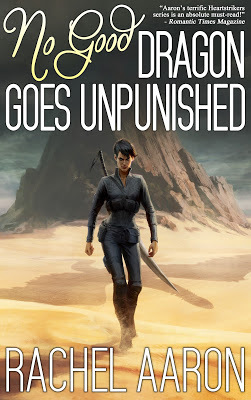
That's right, you can read the prologue and first chapter of No Good Dragon Goes Unpunished right here, right now! What happened in China? Get ready to find out!
You can also preorder the book right now. You know, just to be safe. Bob says it's dangerous to go alone. Take this.
And with that, I have to go back to the word mines. I really hope you enjoy this sneak peek, and I know you're going to enjoy Trav's crazy awesome post about project management!
For real, if you want to be a writing professional with a reliable timeline (or any kind of development professional since we got all of this from our joint background in programming), this stuff is gold. I was really blown away.
And with that, take it away Travis!
***
Hi Folks,
Rachel and I sit down from time to time to plan out the writing schedule. Today I'd like to talk about the process and tools we use to generate our calendar with. This is a non-trivial question for a writing business, so I hope you'll find this info handy. It's all methods that I've learned from years of working in the programming industry, which is surprisingly similar to the book writing business.
Bonus: I'm going to post a spreadsheet that you can download and use to do this for yourself!
Project Management for the Writing BusinessHow many days can a full time writer write if a full time writer can write full time?
 It's not 365This is a question that all managers in all businesses have to learn and, in my experience, end up learning the hard way. Why the hard way? Because it's a lot less than anyone ever thinks it is and it's not intuitive. For example,
It's not 365This is a question that all managers in all businesses have to learn and, in my experience, end up learning the hard way. Why the hard way? Because it's a lot less than anyone ever thinks it is and it's not intuitive. For example,
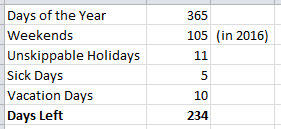 there's not that many writing days per year!
there's not that many writing days per year!
Looking at this, a very diligent author can optimally cram in 234, eight-hour work days of writing. That's only 2/3rd of the year. This isn't the whole picture though, the number is actually much lower.
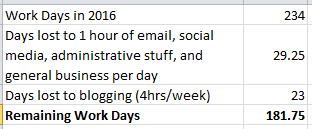
Toss in the overhead of full time work life as well as running an author blog and now we're down to basically half of the year for writing. I'm not done yet though! How much of this time is actually spent writing?
Later on, I'm going to link you to my Book Timeline Estimator spreadsheet. Right now though, I'm going to use it to give you an example of how much time goes into a sample Rachel Aaron novel.
Rachel and I plan novels all the time, so I don't count world buildingWriting and Editing is that part we all think of as the 'writing' part of this process. It includes first draft, first pass edits, second pass edits, and incorporating editorial letter input. The copy edits and beta readers phase is the more crunchy author work of fixing technically broken bits and information errors.
I'm sure ya'll are doing some reverse math here. 49 days x 10,000 words per day = 490,000 words! The behind the scenes truth is that it might take 220,000 words of writing to get a usable 180,000 word manuscript and then that sucker still needs an epic amount of editing time simply because of length and the bulkiness of making changes.
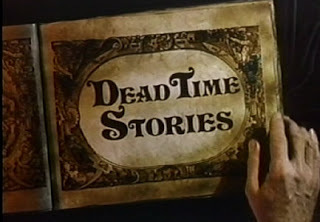
There's also dead time, which is time spent while the book is at the editor, copy editor, and with beta readers. This time is the devil IMO. You can't work on the book during it usually, cause versioning and cause it's technically done. The time lands sporadically with a week here and a month there, so it's very disruptive as well.
Starting new writing projects while wrapping up old ones is tough creatively as is trying to work on a new novel that's constantly interrupted by the demands of the old one. It's really tough to utilize the dead time productively we've found.
What's important here is that, for every 50 days of writing, there's another 21 of post-processing to make the final product salable.
Life is seldom so simple though! Keep in mind that these are fairly ideal times with only modest assumptions about things going wrong in the various processes. IMO a diligent and capable author should probably -1 book from those production estimates. (So two 120k novels / year in all practicality) Your mileage may vary.
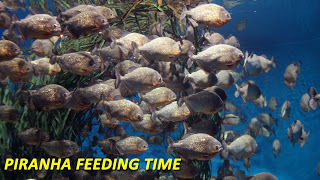
So, as you can see, there's a countless many fish who all take bites from the writing schedule. Length and complexity of the novels really affect their production times as well. Managing the bumps and the dead times is also a factor, though that's as much art as it is best practices. Put it all together and its complicated, hence the need to plan and manage appropriately.What about overtime?Working more than 40 hours a week has a lot of problems. IMO it is not a strategy that works long term. Let's go down the list of why overtime shouldn't be part of your plan,If overtime is already part of the schedule, what do you do when you have to work overtime?Chronic overtime work carries serious health and productivity issues.Overtime pushes the brain to be less creative and more automatic. If good novels are your desire, overtime is neurologically your nemesis!Burnout and hating what you do are legit threats. (and we firmly believe you should love your writing!)Cramming in massive overtime to write more books is your business. I've said my peace here. Besides, I'm a firm believer that if you plan right, you shouldn't have to work chronic overtime.
How to Plan the Novel as a Project (The Easy Way)Calculating how many days it takes to write a book is one thing, factoring in weekends, holidays, sick days, vacations, dead time, editing time, and all that stuff I talked about above is a monumental task. "When will the novel be done? When can it come out?" are HUGE questions!

Well, they would be if not for the WORKDAY function in google docs (or NETWORKDAYS in Excel).
Open that link, go to file and choose Make a Copy. That'll give you a private version that you can input numbers and rearrange to your heart's content. (Note: you will need to be logged into Google for this to work)
Now, this spreadsheet is made for Rachel's generic process, so you might need to push stuff around for more editing cycles, world building, and so on. It's not perfect, but it's better than nothing. I wish I could make one that was easy to customize process-wise, but that's beyond my google docs programming skills right now. I do hope you gain some insight from using our sheet however.
The toughest part for most authors, I feel, will be knowing yourself well enough to be able to accurately fill this in. Ah, all that self measurement we talk about comes back! This is yet another time when it's flat out useful.
Here is what the sample sheet looks like, as best as I can get it into blogger that is. These fields are all explained in more detail inside the spreadsheet itself btw.
Book TitleBook 1 of the Awesome SeriesEstimated Final Word Count120,000Writing Start Date2/1/2017First Draft Difficulty (multiplier)1.5Editing Difficulty (multiplier)0.5Average Daily Word Count7000Estimated ScheduleFirst Draft Est Writing Days25.71First Draft Finished on3/8/2017First Draft to Editing Break1Editing Start3/9/2017Total Editing Days13Editing Finished3/28/2017Time at Editor30Editorial Letter Processing Started5/15/2017Days to Process Editorial Feedback10Editorial Letter Processing Finished5/29/2017Time at Copy/Proof editor14Copy Edits Processing Started6/16/2017Days to Process Copy Edits10Copy Edits Processing Finished6/30/2017Beta Readers start date7/3/2017Time with Beta Readers14Beta Readers Finish7/21/2017Beta Reader Input Assimilation Start7/24/2017Days to assimilate input5Beta Reader Input finished7/31/2017Final Product Design / Assembly Days6Book is finished!8/8/2017Target Launch Date8/15/2017Other DatesCover Art Turn around time (days)45Get cover art started no later than6/5/2017Pre-Order Length60Pre-Orders can start on6/16/201710 Day KDP manuscript deadline for Pre Orders8/4/2017
First, please take a minute to carefully read that as it tells a story of sorts. The most important thing to notice is how the use of business days greatly elongates the timelines. For example,
So yeah, all that talk above about missing days and how many days a writer actually gets, this is how you use it. This is how I use it rather. This method takes all those days into account. (Note: the hours lost to blogging and such are reflected by the Average Daily Word Count field.)
Got it? Ready to move on to bigger fish? Lets take this up a level now.
How to Plan a Series or Your YearTBH, I just duplicate this single book timeline over and over for multiple projects. Then I do stuff like "project B.writing start date = project A.book is finished". It's both the worst and most simple way to do this kind of planning.
A more efficient way is to make sure to overlap projects a bit using dead time. If you have book planning and world building phases, then overwrite their start dates using things like "editing finished" as that's the date that book A goes off to the content editor for 30 business days or "beta readers start date" as that's 14 days of dead time as well.
The most valuable part of this whole exercise is that the sheet will show you a reasonable picture of the future that you can work with. It'll present problems that you can then seek solutions for. Knowing is half the battle after all.
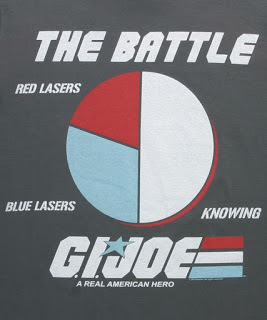
Final Step, use a CalendarOnce Rachel and I are happy with the projected times for a book, I generally go off an put all of them into our publishing calendar. This is just a google calendar that we both share. It's easy to do and it issues handy reminders so that we don't forget to check up on the progress.
What about Project Management Software?MS Project, Libra Office, Zoho, etc... There's a million project management software packages out there at free, pay, and "a king's ransom" levels of cost. After 15 years of programming and trying out different ones at different companies, I've seen easily 50 of these things. I've even taken part in lengthy evaluation studies and such, so my exposure to them is very in-depth.
In the endI'll be straight with ya'll, it never goes on schedule. Writing is a wicked problem and every book is a new battlefield. Even when it does, life is just bumpy. Though Rachel and I have been at this for a while, there's still plenty that goes wrong and also plenty that goes right. This whole project planning thing is always educated guesswork at best.
It's very educational and informative guesswork though. Everyone should turn a critical eye on their processes from time to time. It's also good to have a general idea of if you are on schedule or not. Often times, not being on schedule is a subtle red flag that can lead you to finding and solving heretofore unknown problems.
If you can do this kind of planning without spending lots of time on it, then I feel it's absolutely worth doing.
Thanks for reading today. If there's any topics you'd like me or Rachel to talk about here on the blog, please feel free to leave them below. We're always working hard to find information that is useful to you. You can also just hit me up on Twitter, that works too! (@TravBach) Rachel's social media links are here as well if you want to get live updates! (Twitter/Facebook/Tumblr/Google+)
Thanks again for reading, and I'll see you all next week!
Sincerely,
-Travis
I'm up to my neck in work all of a sudden, so we're taking a quick break from Prose Summer Camp. Travis has come to the Writing Wednesday rescue with an AMAZING post about how to manage your writing schedule like the pros (or at least these pros) do.
Before we get into that, though, I've got a treat for you. As you know, the third Heartstrikers novels, No Good Dragon Goes Unpunished , comes out on August 5! I realize that's very far away, so I've put together a little something to tide you over. How about...sample chapters?!

That's right, you can read the prologue and first chapter of No Good Dragon Goes Unpunished right here, right now! What happened in China? Get ready to find out!
You can also preorder the book right now. You know, just to be safe. Bob says it's dangerous to go alone. Take this.
And with that, I have to go back to the word mines. I really hope you enjoy this sneak peek, and I know you're going to enjoy Trav's crazy awesome post about project management!
For real, if you want to be a writing professional with a reliable timeline (or any kind of development professional since we got all of this from our joint background in programming), this stuff is gold. I was really blown away.
And with that, take it away Travis!
***
Hi Folks,
Rachel and I sit down from time to time to plan out the writing schedule. Today I'd like to talk about the process and tools we use to generate our calendar with. This is a non-trivial question for a writing business, so I hope you'll find this info handy. It's all methods that I've learned from years of working in the programming industry, which is surprisingly similar to the book writing business.
Bonus: I'm going to post a spreadsheet that you can download and use to do this for yourself!
Project Management for the Writing BusinessHow many days can a full time writer write if a full time writer can write full time?
 It's not 365This is a question that all managers in all businesses have to learn and, in my experience, end up learning the hard way. Why the hard way? Because it's a lot less than anyone ever thinks it is and it's not intuitive. For example,
It's not 365This is a question that all managers in all businesses have to learn and, in my experience, end up learning the hard way. Why the hard way? Because it's a lot less than anyone ever thinks it is and it's not intuitive. For example, there's not that many writing days per year!
there's not that many writing days per year!Looking at this, a very diligent author can optimally cram in 234, eight-hour work days of writing. That's only 2/3rd of the year. This isn't the whole picture though, the number is actually much lower.

Toss in the overhead of full time work life as well as running an author blog and now we're down to basically half of the year for writing. I'm not done yet though! How much of this time is actually spent writing?
Later on, I'm going to link you to my Book Timeline Estimator spreadsheet. Right now though, I'm going to use it to give you an example of how much time goes into a sample Rachel Aaron novel.
Rachel and I plan novels all the time, so I don't count world buildingWriting and Editing is that part we all think of as the 'writing' part of this process. It includes first draft, first pass edits, second pass edits, and incorporating editorial letter input. The copy edits and beta readers phase is the more crunchy author work of fixing technically broken bits and information errors.
I'm sure ya'll are doing some reverse math here. 49 days x 10,000 words per day = 490,000 words! The behind the scenes truth is that it might take 220,000 words of writing to get a usable 180,000 word manuscript and then that sucker still needs an epic amount of editing time simply because of length and the bulkiness of making changes.

There's also dead time, which is time spent while the book is at the editor, copy editor, and with beta readers. This time is the devil IMO. You can't work on the book during it usually, cause versioning and cause it's technically done. The time lands sporadically with a week here and a month there, so it's very disruptive as well.
Starting new writing projects while wrapping up old ones is tough creatively as is trying to work on a new novel that's constantly interrupted by the demands of the old one. It's really tough to utilize the dead time productively we've found.
What's important here is that, for every 50 days of writing, there's another 21 of post-processing to make the final product salable.
Going with that 11% post-processing estimation, our 181 writing days drops to 160 actual writing days.Which is, if one is really sticking to the schedule, about enough time to write four 90k novels, three 120k novels, or two (at best) 180k books. (Writing times inflate non-linearly as book size goes up BTW, but that's another post)
Life is seldom so simple though! Keep in mind that these are fairly ideal times with only modest assumptions about things going wrong in the various processes. IMO a diligent and capable author should probably -1 book from those production estimates. (So two 120k novels / year in all practicality) Your mileage may vary.

So, as you can see, there's a countless many fish who all take bites from the writing schedule. Length and complexity of the novels really affect their production times as well. Managing the bumps and the dead times is also a factor, though that's as much art as it is best practices. Put it all together and its complicated, hence the need to plan and manage appropriately.What about overtime?Working more than 40 hours a week has a lot of problems. IMO it is not a strategy that works long term. Let's go down the list of why overtime shouldn't be part of your plan,If overtime is already part of the schedule, what do you do when you have to work overtime?Chronic overtime work carries serious health and productivity issues.Overtime pushes the brain to be less creative and more automatic. If good novels are your desire, overtime is neurologically your nemesis!Burnout and hating what you do are legit threats. (and we firmly believe you should love your writing!)Cramming in massive overtime to write more books is your business. I've said my peace here. Besides, I'm a firm believer that if you plan right, you shouldn't have to work chronic overtime.
How to Plan the Novel as a Project (The Easy Way)Calculating how many days it takes to write a book is one thing, factoring in weekends, holidays, sick days, vacations, dead time, editing time, and all that stuff I talked about above is a monumental task. "When will the novel be done? When can it come out?" are HUGE questions!

Well, they would be if not for the WORKDAY function in google docs (or NETWORKDAYS in Excel).
I've put together a sample spreadsheet that you can just fill in with your info.
Open that link, go to file and choose Make a Copy. That'll give you a private version that you can input numbers and rearrange to your heart's content. (Note: you will need to be logged into Google for this to work)
Now, this spreadsheet is made for Rachel's generic process, so you might need to push stuff around for more editing cycles, world building, and so on. It's not perfect, but it's better than nothing. I wish I could make one that was easy to customize process-wise, but that's beyond my google docs programming skills right now. I do hope you gain some insight from using our sheet however.
The toughest part for most authors, I feel, will be knowing yourself well enough to be able to accurately fill this in. Ah, all that self measurement we talk about comes back! This is yet another time when it's flat out useful.
Here is what the sample sheet looks like, as best as I can get it into blogger that is. These fields are all explained in more detail inside the spreadsheet itself btw.
Book TitleBook 1 of the Awesome SeriesEstimated Final Word Count120,000Writing Start Date2/1/2017First Draft Difficulty (multiplier)1.5Editing Difficulty (multiplier)0.5Average Daily Word Count7000Estimated ScheduleFirst Draft Est Writing Days25.71First Draft Finished on3/8/2017First Draft to Editing Break1Editing Start3/9/2017Total Editing Days13Editing Finished3/28/2017Time at Editor30Editorial Letter Processing Started5/15/2017Days to Process Editorial Feedback10Editorial Letter Processing Finished5/29/2017Time at Copy/Proof editor14Copy Edits Processing Started6/16/2017Days to Process Copy Edits10Copy Edits Processing Finished6/30/2017Beta Readers start date7/3/2017Time with Beta Readers14Beta Readers Finish7/21/2017Beta Reader Input Assimilation Start7/24/2017Days to assimilate input5Beta Reader Input finished7/31/2017Final Product Design / Assembly Days6Book is finished!8/8/2017Target Launch Date8/15/2017Other DatesCover Art Turn around time (days)45Get cover art started no later than6/5/2017Pre-Order Length60Pre-Orders can start on6/16/201710 Day KDP manuscript deadline for Pre Orders8/4/2017
First, please take a minute to carefully read that as it tells a story of sorts. The most important thing to notice is how the use of business days greatly elongates the timelines. For example,
30 business days at the editor is March 28th to May 15th, 2017If you just did 3/28/2017 + 30 calendar days, you'd get 4/27/2017. Apply this technicality across all phases of the project and now we see how a book that takes 25 days to write requires 6 months to hit the shelves.
So yeah, all that talk above about missing days and how many days a writer actually gets, this is how you use it. This is how I use it rather. This method takes all those days into account. (Note: the hours lost to blogging and such are reflected by the Average Daily Word Count field.)
Got it? Ready to move on to bigger fish? Lets take this up a level now.
How to Plan a Series or Your YearTBH, I just duplicate this single book timeline over and over for multiple projects. Then I do stuff like "project B.writing start date = project A.book is finished". It's both the worst and most simple way to do this kind of planning.
A more efficient way is to make sure to overlap projects a bit using dead time. If you have book planning and world building phases, then overwrite their start dates using things like "editing finished" as that's the date that book A goes off to the content editor for 30 business days or "beta readers start date" as that's 14 days of dead time as well.
The most valuable part of this whole exercise is that the sheet will show you a reasonable picture of the future that you can work with. It'll present problems that you can then seek solutions for. Knowing is half the battle after all.

Final Step, use a CalendarOnce Rachel and I are happy with the projected times for a book, I generally go off an put all of them into our publishing calendar. This is just a google calendar that we both share. It's easy to do and it issues handy reminders so that we don't forget to check up on the progress.
What about Project Management Software?MS Project, Libra Office, Zoho, etc... There's a million project management software packages out there at free, pay, and "a king's ransom" levels of cost. After 15 years of programming and trying out different ones at different companies, I've seen easily 50 of these things. I've even taken part in lengthy evaluation studies and such, so my exposure to them is very in-depth.
My professional opinion on project management software is that all of them are terrible, overly complicated, and don't manage multiple projects properly at all.If you're already trained in using PM software, good for you! There's nothing for me to teach on this score. If you aren't expert, then please don't bother. Use a simpler tool (like my spreadsheet ^_~) and spend your extra time writing instead. As you see in this post, non-writing activities are the enemy of all authors.
In the endI'll be straight with ya'll, it never goes on schedule. Writing is a wicked problem and every book is a new battlefield. Even when it does, life is just bumpy. Though Rachel and I have been at this for a while, there's still plenty that goes wrong and also plenty that goes right. This whole project planning thing is always educated guesswork at best.
It's very educational and informative guesswork though. Everyone should turn a critical eye on their processes from time to time. It's also good to have a general idea of if you are on schedule or not. Often times, not being on schedule is a subtle red flag that can lead you to finding and solving heretofore unknown problems.
If you can do this kind of planning without spending lots of time on it, then I feel it's absolutely worth doing.
Thanks for reading today. If there's any topics you'd like me or Rachel to talk about here on the blog, please feel free to leave them below. We're always working hard to find information that is useful to you. You can also just hit me up on Twitter, that works too! (@TravBach) Rachel's social media links are here as well if you want to get live updates! (Twitter/Facebook/Tumblr/Google+)
Thanks again for reading, and I'll see you all next week!
Sincerely,
-Travis
Published on June 29, 2016 05:30
June 27, 2016
Guest Post: Loss Leaders, or How I learned to Stop Being Poor and Love the $0.99 Book
Hi Folks,
Last Monday, I talked about why 99c should not be your go-to regular novel price. We got a lot of good feedback on this post! The best counter-point was from USA Today bestselling author Annie Bellet, who has graciously agreed to do today's guest post.
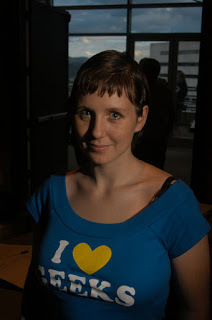
Annie Bellet is the USA Today bestselling author of The Twenty-Sided Sorceress, which Rachel loved and is free right now! So check it out.
Her other notable works include the Pyrrh Considerable Crimes Division and the Gryphonpike Chronicles series.
She holds a BA in English and a BA in Medieval Studies and thus can speak a smattering of useful languages such as Anglo-Saxon and Medieval Welsh. Which is pretty darned cool!
Her interests besides writing include rock climbing, reading, horse-back riding, video games, comic books, table-top RPGs and many other nerdy pursuits. She lives in the Pacific Northwest with her husband and a very demanding Bengal cat.
This is a great guest post ya'll as the comments on my anti-99c post were mostly all about loss leading. So today is going to be very on point!
(Just a quick word. I realize in hindsight, that maybe I didn't setup my post properly. Long and short, I was talking about people who do things like price entire series at 99c, price book 3 at 99c, or otherwise use it as a long-term, regular price for too many of their works. It wasn't meant to say, "never use 99c".)
But while I could have been clearer, I'm very happy it lead to such a great conversation! So, are you ready to look at the loss leader strategy and how you can rock out with well-done 99c pricing? Here's Annie Bellet!
Guest Post: Loss Leaders, or How I learned to Stop Being Poor and Love the $0.99 BookPricing. It’s a scary part of self-publishing. What is a book worth? You’ve put dozens or even hundreds of hours into a work. You’ve (hopefully) paid for editing and wow-factor cover art and smooth formatting and your book looks like a million bucks to you. It’s weeks and months or years of blood and sweat and tears.

I’m going to tell you something scary but first a little caveat. This is all my belief and based on my own experiences and what I’ve observed after six years of self-publishing and putting up over forty titles. It is not the last word nor a 100% script that everyone can or should follow. Nothing works for everyone all the time. Nothing. Anyone who says “this is the only way” is either deluded or selling something. The following is just my experience and based on my own data and data I’ve gathered. Take it as such.
So what is a book worth? Now the scary part. It’s worth exactly what someone will pay for it. If you have made a professional package (great cover, well edited, well formatted etc)… you’ve done your part to make the book great. Hopefully you also wrote a great book, because that’s the foundation of a strong career.
But readers don’t care. They care that the book is something they want to read. They care that it looks awesome (editing, formatting, cover) because that’s all a quality signal which instills confidence that hey, this might be a great book and not a waste of their time and money. But they don’t care and won’t know if you spent twenty years or twenty days writing this book or two thousand bucks on that cover or bought a cool looking premade for thirty dollars.
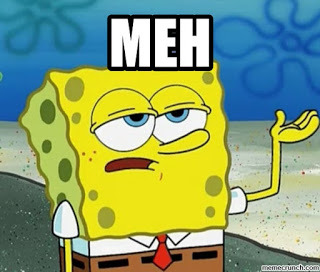
A reader gets to your book page (a win right there), and the thought process goes something like “ooh, cool title and cover, ooh interesting blurb, ooh decent reviews, ooh this sample makes me want to read more” or some ordering of those steps (not every reader will take all those steps, I’ve bought books purely off “ooh cool title and cover” before, haha). Every single thing on your sales page is a potential tool, and a potential barrier. Selling a book to someone means making sure you are using your tools and not setting up barriers. Great cover, catchy book description, great hook/opening to your book, etc… are all tools to help a reader get what they want. But there is always one more barrier (and tool!), and that is… price.
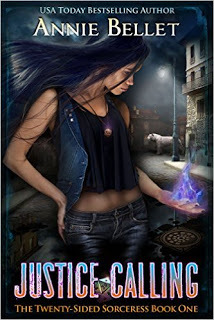 Great cover, title, blurb folks. Also free right now! (Click for instant preview!)Self-publishers often price out of emotion or ego, I think. I’ve been guilty of that in the past, too. You work your ass off on a book, you think “this is at least as good as big name novel from huge publishing house with years of heavy marketing and a giant fan base that was published a decade before ebooks” and price the same as that because reasons. Or you think “I’m brand new and nobody knows who I am and nobody is going to buy this so I better not price much” which is equally an ego/emotion decision.
Great cover, title, blurb folks. Also free right now! (Click for instant preview!)Self-publishers often price out of emotion or ego, I think. I’ve been guilty of that in the past, too. You work your ass off on a book, you think “this is at least as good as big name novel from huge publishing house with years of heavy marketing and a giant fan base that was published a decade before ebooks” and price the same as that because reasons. Or you think “I’m brand new and nobody knows who I am and nobody is going to buy this so I better not price much” which is equally an ego/emotion decision.
My advice? Stop doing that. Have a REASON beyond “I feel like it” for how you price your work. What are the majority of well-selling debut novels in your genre priced at in ebook? Is your book the first in a series or a standalone? What’s your plan for this book in three months? In six? In a year? How are you going to get people to the page? Will the price be an enticing aspect or a hindrance in a buyer’s decision-making process? How does this book fit into your overall publishing plan?
So how to use $0.99 and make it work?There are two ways that I see $0.99 working as a price for a novel.
The first is as a sale price. There are two ways to do this, also (pricing is complicated, I mentioned that, right?). One is obvious. You book some promotion sites and/or set up Facebook ads etc and drop the price to $0.99 for a few days or a week or whatever works with your plan. The key with all of this is to have a plan. Don’t price without one. Don’t do anything without a plan, really, because this is a business and if you are self-publishing with the intent to sell books and gain readers and make money (and you can’t really make money without readers, I promise), then you need a plan. Always.
Another method for $0.99 as a temporary price is as the launch price for a new novel. Usually this is done for no more than two days, as a way of rewarding readers on your mailing list and as an initial boost for the algorithms and also-bought placement on Amazon etc.
In both of the above cases, $0.99 isn’t a permanent price and the book will move to its full price (whatever that is, generally based on genre and what you’ve found worked best in the past to maximize readership and monies).
But what about a novel permanently at $0.99? How does that work and when/why should you use this method?
It works as the first book in a series. Again, this isn’t the ONLY way to launch a series. Plenty of successful authors have done it this way and plenty have done it with higher priced books (or even with free titles, which would be a whole other post).
However… I personally (re)launched my career on the back of a $0.99 title and I’ve seen dozens of other authors do the same and grow themselves to six and even seven figure a year careers.
Putting out a novel at $0.99 is scary. Especially if you are in dire need of money, as I was when I did it. I had over $20,000 in medical debt and we were looking at not being able to pay even our rent within a few months of me launching a new series. It was my last shot at making writing for a living work after years of making every mistake in the book (one of them was pricing way too high because of ego and stupidity). Being in such a low place made me open to new ideas, and it saved my life and my career.
Here’s how a $0.99 book as first in series can work and the ideas behind it:The way to think about revenue and readership with a series, I’ve found, is to think of the series as a whole instead of just book by book. You want to maximize the number of readers for book 1, because that is the gateway to the series (and the gateway to a decent income).

So let’s look at how this works with hypothetical numbers. I’ve found for $0.99 vs $2.99, usually about twice as many copies sell at $0.99 as at the higher price. (Sometimes 3x-4x as many or more, but let’s use 2x as the baseline because I’ve seen it consistently enough to be comfortable doing so). All numbers below are hypothetical and used to illustrate how $0.99 can make you more money and get you to a more stable career in the long run when used as a loss leader at the beginning of a series.
Awesome Series Book 1 debuts at $0.99 and sells 10,000 copies! You make $3500 on AS book 1.
Alternate Universe Series book 1 debuts at $2.99 and sells 5,000 copies! (Because remember, we’re guessing about half the sales at the higher price based on what I’ve seen in pricing). You make $10,000 on AU book 1.
Wait, you say… you’ve made over twice the money on AUB1 as ASB1. Why would you ever price at $0.99? 10k is way better than 3.5k, right?
Stay with me. It’s a series, remember?
AS book 2 debuts at 2.99 and 50% of the people who bought book 1 buy it. (I’ll talk about sell-through at the end and what you should aim for/expect). That’s 5,000 readers for ASB2 and you make $10,000 on that book (70% of $2.99 rounded down because delivery costs etc and also the math is easier this way). Running total for the series is $13,500.
AU book 2 debuts at 2.99 and 50% of the people who bought book 1 buy it. That’s 2,500 readers for AUB2 and you make $5,000 on that book. Running total for AU series is $15,000.
AU series is still ahead money-wise… but twice the number of people have read AS series. Hmm…
AS book 3 debuts at $3.99 (hey, it’s book 3, readers are hooked and you are writing kickass novels, what’s a buck between friends). 50% of your readers from book 2 buy book 3. That’s 2,500 sales at about $2.75 a sale (again rounding down a bit for the math) and you make $6,875 on ASB3. AS series total earned: $20,375.
AU book 3 debuts at $3.99 and 50% of readers from AUB2 keep going. That’s 1,250 people who buy book 3 at $2.75 a copy for $3,437 monies. AU series total earned: $18,437.
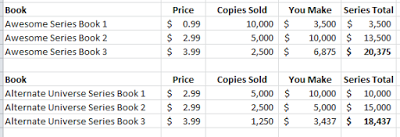 The Tale of Two SeriesWait! See? That $0.99 novel at the front of the series seemed like a poor choice when looked at alone against its $2.99 potential, no? And yet, here we are three books in and the numbers look much better, don’t they? The loss leader series has more readers and is making more money over all.
The Tale of Two SeriesWait! See? That $0.99 novel at the front of the series seemed like a poor choice when looked at alone against its $2.99 potential, no? And yet, here we are three books in and the numbers look much better, don’t they? The loss leader series has more readers and is making more money over all.
I often see $0.99 price point mocked as a desperate move or “short term” thinking. But as you can see from the numbers above, it’s actually a good long term thinking kind of strategy when utilized with a purpose and a plan. Always think about the long game, even as you aim to succeed in the near term (you have to do both, because if you never succeed in the NOW, later will keep turning into now and success will always be something over the horizon).
The series loss leader method is the best way to use a permanent $0.99 price, in my opinion. The more readers you hook into your series, the healthier the sales for the series will be in the long term. More readers mean more sales and a more stable career.
Which brings me to my closing point. Sell-through. This is the number one reason why you should never skimp on ANY part of the business or craft. Without sell-through, you will have a terrible time making a long term career out of writing. If people buy book 1 and don’t buy book 2, that’s very bad for the health of your career. The guideline I use is I worry if sell-through on a $0.99 book isn’t above 50%. So if at least half the people who buy book 1 don’t buy book 2, something has gone wrong in the process. Common things that go wrong: Book 2 doesn’t resemble book 1 and is hard to find. Book 2 is priced too high ($0.99 to $5.99 is often too huge a jump, if you are doing something like this, try $2.99 or $3.99 and see if sell-through improves). And the biggest likely problem? Book 1 just isn’t good enough. By “good enough” I mean fulfilling reader expectation and keeping them engaged. That’s your job as a writer. We write for readers when we engage in the business of publishing. If your craft isn’t up to snuff or you’ve mislabeled your genre or you’ve left out or broken foundational tropes for your genre… you will lose reader interest in your books even if your packaging is perfect and gets them to buy book one. If at least half of your readership isn’t interested enough to buy book two… usually that indicates a problem with the craft of book one.
And that’s why ALL of this comes back to quality. If your books aren’t delivering to reader expectation and engaging your target readership, no price is cheap enough. Sorry. I personally feel that sell-through is the biggest indication of the health of a career. Even if you are writing standalone novels, it’s still important that enough people who read one of your books go on to read more of your books. The people who buy a whole series or your whole catalog of X genre are your bread and butter. Those readers are your foundation and without them, your career will be constantly sinking and in danger of going under, no matter what price you choose or how much you write or how pretty your cover art is.
So to sum up:$0.99 works well as a sale price or a short term price for launches.
$0.99 works great as a first book in series price for maximizing the number of readers and long-term income.
No price plan will ever work without the foundation of quality. Quality covers, quality editing, quality formatting, quality book description… and more importantly than all of those: a quality book that delivers on its promise and keeps readers engaged.
Thanks Annie!I hope ya'll enjoyed the guest post today and learned a few new tricks, I know I did. A big thanks to Annie Bellet for this one. If you enjoyed the blog, please follow Annie on Twitter/Facebook/Tumblr.
If you haven't checked it out yet, please take a look at The Twenty-Sided Sorceress. Rachel loved it and it's free right now so no excuses.
As usual, please leave your comments below. If you enjoyed the blog, please follow Rachel on Twitter/Facebook/Tumblr/Google+ to never miss a post. Thank you as always for reading, and I hope you're getting lots of writing done this summer!
Last Monday, I talked about why 99c should not be your go-to regular novel price. We got a lot of good feedback on this post! The best counter-point was from USA Today bestselling author Annie Bellet, who has graciously agreed to do today's guest post.

Annie Bellet is the USA Today bestselling author of The Twenty-Sided Sorceress, which Rachel loved and is free right now! So check it out.
Her other notable works include the Pyrrh Considerable Crimes Division and the Gryphonpike Chronicles series.
She holds a BA in English and a BA in Medieval Studies and thus can speak a smattering of useful languages such as Anglo-Saxon and Medieval Welsh. Which is pretty darned cool!
Her interests besides writing include rock climbing, reading, horse-back riding, video games, comic books, table-top RPGs and many other nerdy pursuits. She lives in the Pacific Northwest with her husband and a very demanding Bengal cat.
This is a great guest post ya'll as the comments on my anti-99c post were mostly all about loss leading. So today is going to be very on point!
(Just a quick word. I realize in hindsight, that maybe I didn't setup my post properly. Long and short, I was talking about people who do things like price entire series at 99c, price book 3 at 99c, or otherwise use it as a long-term, regular price for too many of their works. It wasn't meant to say, "never use 99c".)
But while I could have been clearer, I'm very happy it lead to such a great conversation! So, are you ready to look at the loss leader strategy and how you can rock out with well-done 99c pricing? Here's Annie Bellet!
Guest Post: Loss Leaders, or How I learned to Stop Being Poor and Love the $0.99 BookPricing. It’s a scary part of self-publishing. What is a book worth? You’ve put dozens or even hundreds of hours into a work. You’ve (hopefully) paid for editing and wow-factor cover art and smooth formatting and your book looks like a million bucks to you. It’s weeks and months or years of blood and sweat and tears.

I’m going to tell you something scary but first a little caveat. This is all my belief and based on my own experiences and what I’ve observed after six years of self-publishing and putting up over forty titles. It is not the last word nor a 100% script that everyone can or should follow. Nothing works for everyone all the time. Nothing. Anyone who says “this is the only way” is either deluded or selling something. The following is just my experience and based on my own data and data I’ve gathered. Take it as such.
So what is a book worth? Now the scary part. It’s worth exactly what someone will pay for it. If you have made a professional package (great cover, well edited, well formatted etc)… you’ve done your part to make the book great. Hopefully you also wrote a great book, because that’s the foundation of a strong career.
But readers don’t care. They care that the book is something they want to read. They care that it looks awesome (editing, formatting, cover) because that’s all a quality signal which instills confidence that hey, this might be a great book and not a waste of their time and money. But they don’t care and won’t know if you spent twenty years or twenty days writing this book or two thousand bucks on that cover or bought a cool looking premade for thirty dollars.

A reader gets to your book page (a win right there), and the thought process goes something like “ooh, cool title and cover, ooh interesting blurb, ooh decent reviews, ooh this sample makes me want to read more” or some ordering of those steps (not every reader will take all those steps, I’ve bought books purely off “ooh cool title and cover” before, haha). Every single thing on your sales page is a potential tool, and a potential barrier. Selling a book to someone means making sure you are using your tools and not setting up barriers. Great cover, catchy book description, great hook/opening to your book, etc… are all tools to help a reader get what they want. But there is always one more barrier (and tool!), and that is… price.
 Great cover, title, blurb folks. Also free right now! (Click for instant preview!)Self-publishers often price out of emotion or ego, I think. I’ve been guilty of that in the past, too. You work your ass off on a book, you think “this is at least as good as big name novel from huge publishing house with years of heavy marketing and a giant fan base that was published a decade before ebooks” and price the same as that because reasons. Or you think “I’m brand new and nobody knows who I am and nobody is going to buy this so I better not price much” which is equally an ego/emotion decision.
Great cover, title, blurb folks. Also free right now! (Click for instant preview!)Self-publishers often price out of emotion or ego, I think. I’ve been guilty of that in the past, too. You work your ass off on a book, you think “this is at least as good as big name novel from huge publishing house with years of heavy marketing and a giant fan base that was published a decade before ebooks” and price the same as that because reasons. Or you think “I’m brand new and nobody knows who I am and nobody is going to buy this so I better not price much” which is equally an ego/emotion decision.My advice? Stop doing that. Have a REASON beyond “I feel like it” for how you price your work. What are the majority of well-selling debut novels in your genre priced at in ebook? Is your book the first in a series or a standalone? What’s your plan for this book in three months? In six? In a year? How are you going to get people to the page? Will the price be an enticing aspect or a hindrance in a buyer’s decision-making process? How does this book fit into your overall publishing plan?
So how to use $0.99 and make it work?There are two ways that I see $0.99 working as a price for a novel.
The first is as a sale price. There are two ways to do this, also (pricing is complicated, I mentioned that, right?). One is obvious. You book some promotion sites and/or set up Facebook ads etc and drop the price to $0.99 for a few days or a week or whatever works with your plan. The key with all of this is to have a plan. Don’t price without one. Don’t do anything without a plan, really, because this is a business and if you are self-publishing with the intent to sell books and gain readers and make money (and you can’t really make money without readers, I promise), then you need a plan. Always.
Another method for $0.99 as a temporary price is as the launch price for a new novel. Usually this is done for no more than two days, as a way of rewarding readers on your mailing list and as an initial boost for the algorithms and also-bought placement on Amazon etc.
In both of the above cases, $0.99 isn’t a permanent price and the book will move to its full price (whatever that is, generally based on genre and what you’ve found worked best in the past to maximize readership and monies).
But what about a novel permanently at $0.99? How does that work and when/why should you use this method?
It works as the first book in a series. Again, this isn’t the ONLY way to launch a series. Plenty of successful authors have done it this way and plenty have done it with higher priced books (or even with free titles, which would be a whole other post).
However… I personally (re)launched my career on the back of a $0.99 title and I’ve seen dozens of other authors do the same and grow themselves to six and even seven figure a year careers.
Putting out a novel at $0.99 is scary. Especially if you are in dire need of money, as I was when I did it. I had over $20,000 in medical debt and we were looking at not being able to pay even our rent within a few months of me launching a new series. It was my last shot at making writing for a living work after years of making every mistake in the book (one of them was pricing way too high because of ego and stupidity). Being in such a low place made me open to new ideas, and it saved my life and my career.
Here’s how a $0.99 book as first in series can work and the ideas behind it:The way to think about revenue and readership with a series, I’ve found, is to think of the series as a whole instead of just book by book. You want to maximize the number of readers for book 1, because that is the gateway to the series (and the gateway to a decent income).

So let’s look at how this works with hypothetical numbers. I’ve found for $0.99 vs $2.99, usually about twice as many copies sell at $0.99 as at the higher price. (Sometimes 3x-4x as many or more, but let’s use 2x as the baseline because I’ve seen it consistently enough to be comfortable doing so). All numbers below are hypothetical and used to illustrate how $0.99 can make you more money and get you to a more stable career in the long run when used as a loss leader at the beginning of a series.
Awesome Series Book 1 debuts at $0.99 and sells 10,000 copies! You make $3500 on AS book 1.
Alternate Universe Series book 1 debuts at $2.99 and sells 5,000 copies! (Because remember, we’re guessing about half the sales at the higher price based on what I’ve seen in pricing). You make $10,000 on AU book 1.
Wait, you say… you’ve made over twice the money on AUB1 as ASB1. Why would you ever price at $0.99? 10k is way better than 3.5k, right?
Stay with me. It’s a series, remember?
AS book 2 debuts at 2.99 and 50% of the people who bought book 1 buy it. (I’ll talk about sell-through at the end and what you should aim for/expect). That’s 5,000 readers for ASB2 and you make $10,000 on that book (70% of $2.99 rounded down because delivery costs etc and also the math is easier this way). Running total for the series is $13,500.
AU book 2 debuts at 2.99 and 50% of the people who bought book 1 buy it. That’s 2,500 readers for AUB2 and you make $5,000 on that book. Running total for AU series is $15,000.
AU series is still ahead money-wise… but twice the number of people have read AS series. Hmm…
AS book 3 debuts at $3.99 (hey, it’s book 3, readers are hooked and you are writing kickass novels, what’s a buck between friends). 50% of your readers from book 2 buy book 3. That’s 2,500 sales at about $2.75 a sale (again rounding down a bit for the math) and you make $6,875 on ASB3. AS series total earned: $20,375.
AU book 3 debuts at $3.99 and 50% of readers from AUB2 keep going. That’s 1,250 people who buy book 3 at $2.75 a copy for $3,437 monies. AU series total earned: $18,437.
 The Tale of Two SeriesWait! See? That $0.99 novel at the front of the series seemed like a poor choice when looked at alone against its $2.99 potential, no? And yet, here we are three books in and the numbers look much better, don’t they? The loss leader series has more readers and is making more money over all.
The Tale of Two SeriesWait! See? That $0.99 novel at the front of the series seemed like a poor choice when looked at alone against its $2.99 potential, no? And yet, here we are three books in and the numbers look much better, don’t they? The loss leader series has more readers and is making more money over all.I often see $0.99 price point mocked as a desperate move or “short term” thinking. But as you can see from the numbers above, it’s actually a good long term thinking kind of strategy when utilized with a purpose and a plan. Always think about the long game, even as you aim to succeed in the near term (you have to do both, because if you never succeed in the NOW, later will keep turning into now and success will always be something over the horizon).
The series loss leader method is the best way to use a permanent $0.99 price, in my opinion. The more readers you hook into your series, the healthier the sales for the series will be in the long term. More readers mean more sales and a more stable career.
Which brings me to my closing point. Sell-through. This is the number one reason why you should never skimp on ANY part of the business or craft. Without sell-through, you will have a terrible time making a long term career out of writing. If people buy book 1 and don’t buy book 2, that’s very bad for the health of your career. The guideline I use is I worry if sell-through on a $0.99 book isn’t above 50%. So if at least half the people who buy book 1 don’t buy book 2, something has gone wrong in the process. Common things that go wrong: Book 2 doesn’t resemble book 1 and is hard to find. Book 2 is priced too high ($0.99 to $5.99 is often too huge a jump, if you are doing something like this, try $2.99 or $3.99 and see if sell-through improves). And the biggest likely problem? Book 1 just isn’t good enough. By “good enough” I mean fulfilling reader expectation and keeping them engaged. That’s your job as a writer. We write for readers when we engage in the business of publishing. If your craft isn’t up to snuff or you’ve mislabeled your genre or you’ve left out or broken foundational tropes for your genre… you will lose reader interest in your books even if your packaging is perfect and gets them to buy book one. If at least half of your readership isn’t interested enough to buy book two… usually that indicates a problem with the craft of book one.
And that’s why ALL of this comes back to quality. If your books aren’t delivering to reader expectation and engaging your target readership, no price is cheap enough. Sorry. I personally feel that sell-through is the biggest indication of the health of a career. Even if you are writing standalone novels, it’s still important that enough people who read one of your books go on to read more of your books. The people who buy a whole series or your whole catalog of X genre are your bread and butter. Those readers are your foundation and without them, your career will be constantly sinking and in danger of going under, no matter what price you choose or how much you write or how pretty your cover art is.
So to sum up:$0.99 works well as a sale price or a short term price for launches.
$0.99 works great as a first book in series price for maximizing the number of readers and long-term income.
No price plan will ever work without the foundation of quality. Quality covers, quality editing, quality formatting, quality book description… and more importantly than all of those: a quality book that delivers on its promise and keeps readers engaged.
Thanks Annie!I hope ya'll enjoyed the guest post today and learned a few new tricks, I know I did. A big thanks to Annie Bellet for this one. If you enjoyed the blog, please follow Annie on Twitter/Facebook/Tumblr.
If you haven't checked it out yet, please take a look at The Twenty-Sided Sorceress. Rachel loved it and it's free right now so no excuses.
As usual, please leave your comments below. If you enjoyed the blog, please follow Rachel on Twitter/Facebook/Tumblr/Google+ to never miss a post. Thank you as always for reading, and I hope you're getting lots of writing done this summer!
Published on June 27, 2016 07:48
June 22, 2016
Writing Wednesday: Anatomy of a Scene
Hello everyone, and welcome back to Prose Summer Camp!
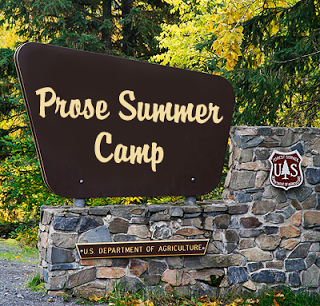
Today, we're going to be taking a look at the workhorse of fiction, the scene. But first, announcements!
First, on Monday, Trav had a great post about why you shouldn't price your novel at $0.99. For the record, I absolutely agree with everything he says, but (as we always say around here), our way is not the only way. Case in point, after we posted the article, the awesome and very successful Annie Bellet contacted me on Twitter to tell me that she and several other authors have had fantastic success pricing at $0.99! This lead to a great discussion which I begged her to put into a post, and she gracious obliged. So, next Monday we'll have a guest post from Annie about why you should price your novel at $0.99! I've already read it, and it's going to be awesome.
Secondly, we've added a ton of new posters to the shop! Including this little beauty...
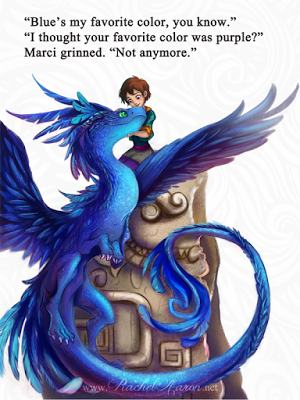 Squeeee!!!
Squeeee!!!
Folks, I've got one in my hands right now, and it is gorgeous! The colors are so much more vibrant than on screen. We've also got posters for the covers and art for One Good Dragon Deserves Another (finally) and No Good Dragon Goes Unpunished as well, and they look just as good. You need more dragons in your life, right? Head on over to the swag shop to take a look and get some special Heartstrikers art for your walls!
Now that's out of the way, let's get down to brass tacks, with...
Prose Summer Camp: Anatomy of a SceneSo far in this series, we've talked about the small, technical details of good writing like improving sentence structure and how to write good sentence level description. We even had Bob come in to help us with dialogue!
Now we're going to zoom out a bit and take a look at a larger, but still fundamental, aspect of good novel writing: the scene. As always, though, a disclaimer:
**This is how I write. All of the tips below are drawn from my taste and experience as a writer. If you don't like my writing style, knowing how I plan my scenes might not be useful. This is fine! Everyone writes in their own voice. I hope, of course, that you will still find some it helpful, but please don't take any of this as me setting down the One True Path of Writing. I'm just telling you what works for me in the hopes that it might also work for you.**
Now that's out of the way, let's talk about what a scene can do.
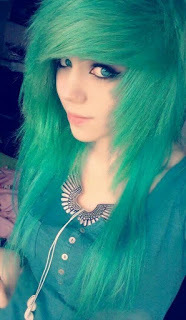 Wrong kind of scene...
Wrong kind of scene...
Scenes are the building blocks of fiction. They're the individual plot points, actions, conversations, and so on that pile together to make a story.
Technically, a scene is any sequence of continuous actions--a fight, an argument, a declaration of love--any sequence of events where the characters are all "on stage" going through the action in real time. Continuous is truly the key here. Though I have seen this rule broken to sometimes good, sometimes not-so-good effect, traditionally speaking in Western fiction, a scene obeys the Aristotelian Unities of time and place. It's an event that unfolds in real time and usually in one place.
I find it easiest to think of my scenes like I'm putting on a play. When the characters are on stage, that's a scene. When someone walks off stage or the lights go down to show that time is moving forward or to change the set, that's the end of the scene, and the next action will mark the beginning of a new one.
The reason for breaking your writing up into scenes is the same reason for breaking it into paragraphs: it makes it easier to read. Just as huge walls of text are tiring to maul through, enormous blocks of action can wear on your reader's attention, making your book feel slow and dragging. Even the most exciting scenes can start to feel like a mud slog if they go on too long, which is why I try to keep my scenes between 2000 and 3000 words. I've found this to be the sweet spot for my books, though of course your mileage may vary.
The important thing to remember is that scenes are not supposed to be entire chapters (unless you're writing really short chapters). The idea of a scene is to break the action of your story into easily digestible chunks. You find scenes in every form of narrative media--movies, plays, books, even comics. The reason for this isn't because artists are following some unwritten rule, it's because scenes work really well. By dividing your action into bites, not only do you make it easier for your readers to follow what's going on, you make things easier on yourself by crafting a story that's easier to tell.
So if you find yourself writing a scene, and it feels like its dragging on really long, listen to your instincts. Chances are, you're right. Cutting the scene at a dramatic bit, switching POV, or removing actions entirely are all ways you can trim your scene down, making your whole book move faster. It's not always necessary. There are long scenes that work really well. But generally speaking if something feels wrong in your writing, it is. Don't let it slide.
The Three Hooks and the Two Bird MinimumSo those are the basics of a scene. In my own novels, though, I have a few more rules I like to apply. I've talked about these before in an ancient post called The Three Hooks, but they're still true, so I'll reiterate them now. When I sit down to plan a scene for my novels, whatever scene I'm thinking of adding whether it's a simple conversation or a huge battle, must meet three basic criteria:It must advance the plot.It must reveal new information.It must pull the reader forward.These are my three rules for any scene I write, and they're there for good reason. When you're writing, especially if you're not writing from a plan, it's very easy to get lost in your own words and write scenes that make sense given what the characters are doing, but don't actually add to the book. If you have two characters together, it's only natural to have them talk, but if they're not talking about things the reader needs to know or revealing information that adds to the story, what's the point? It's just people talking, and even if that's wildly entertaining, if there's no substance there beyond raw character development or world building, then the scene is wasted.
This leads me back to another Rachel writing adage that readers of 2k to 10k will be familiar with: the two bird minimum.
 As Eli said, "My stones have a two bird minimum."Again, the old post explains everything in detail, but the idea of the Two Bird Minimum is that if I'm going to include a scene in my book, it has to carry its weight, which means it can't just do one thing. In the conversation I mentioned above, for example, you might say "oh, but that scene wasn't wasted. Look at all the character development and world building!" To that I reply, so what? Character development happens any time the characters open their mouths, and world building happens every time they look around. These things are cheap, sideline items that happen in the background. They're still important, but if a story is to move at a good pace, we don't have scenes to waste on only character development or only world building. There has to be something else. Some new information or plot development, something beyond mere character development to make your reader turn that page to see what happens.
As Eli said, "My stones have a two bird minimum."Again, the old post explains everything in detail, but the idea of the Two Bird Minimum is that if I'm going to include a scene in my book, it has to carry its weight, which means it can't just do one thing. In the conversation I mentioned above, for example, you might say "oh, but that scene wasn't wasted. Look at all the character development and world building!" To that I reply, so what? Character development happens any time the characters open their mouths, and world building happens every time they look around. These things are cheap, sideline items that happen in the background. They're still important, but if a story is to move at a good pace, we don't have scenes to waste on only character development or only world building. There has to be something else. Some new information or plot development, something beyond mere character development to make your reader turn that page to see what happens.
This is the difference between books that drag and books that fly. Any author can write a scene where characters come on, say their lines, and leave. But if you want to write a good scene, something people really want to read, then you need to think beyond the basics. You have to look at each scene not just for itself, but as part of the whole. How does it serve the book? Where does it fit? What does it do for your story? These are the sort of questions you have to consider for every scene you write, because in novel writing, it's not enough to write a good scene. That scene is part of a larger structure, and it has to serve the book as well as be good writing all on its own.
Okay, so how do we do that?This is where this post gets iffy, because if I could tell you the secret formula to writing fantastic scenes every time, I'd be a lot richer. Even if I did know the secret, though, I don't think it would work for you. We're all our own authors telling our own stories, and my secret might not work for you at all. That said, though, I do have several guidelines I follow to make sure my scenes work. The main ones, the Three Hooks and the Two Bird Minimum, I already mentioned above, and if you follow those, I don't think you can go wrong. But if you really want your book to be tight, you can't just write good scenes. You have to write scenes that work together.
For my money, this is far easier to pull off if you plot all your scenes in advance. When I'm planning a novel, one of the biggest things I do is get all my scenes down and in order. I don't just figure out the plot, I also determine who's talking to whom, what information gets revealed and when, where the action happens, and so forth. Each of these segments can be a scene by themselves, for example, a climactic battle, or one scene can cover multiple areas, like an argument scene where secrets are revealed and then a fight happens because of them.
That said, though, I'm a hardcore plotter, so of course my solution is to plot. If you're more of a discovery writer or pantser, this heavy planning style probably won't work for you, and that's okay. Different strokes for different folks. But plotter or pantser, the really important take away here is that you think of your scenes as building blocks.
When you sit down to write a scene, planned or spontaneously occurring, ask yourself, why is this scene here? What is it doing for the book? Chances are, the answer is already going to be multi-layered. This scene is introducing the main character and setting up her journey for the rest of the book, or this is the final battle scene where everything is revealed and the hero must make a terrible choice.
These are both good examples of exciting scenes readers are going to be dying to read, and that's because it's clear what these scenes do for the larger story. But if you're looking at a scene and you can't think of what it's doing for your book other than "it feels like it should be here" or "I need this scene to happen so I can get to another scene," that's a warning flag. Remember, you're the author here. If you can't say what a scene does for the book, chances are it's not doing much, and if it's not doing much, it's dragging the rest of the book down. Just like any other well crafted construction, a well written novel has no wasted movements or parts. There is no room for scenes that don't pull their weight, so if you think you've got one, your book will be much better served by either cutting the scene all together or adding more information to make it important.
Before you panic, adding information is not nearly as hard as it sounds! This is where the Three Hooks come back in, because almost any scene can be saved by adding them. For example, if your unlikely team of Fantasy heroes have a random battle that doesn't actually do anything except add some action, you can elevate that by changing out the random monsters for enemies that give your reader a taste of what's to come. Or, if you're already doing that, you can up your game even further by having a character get clobbered, and thus discover she needs to learn to fight. Or maybe your MC uses a forbidden weapon and discovers why it's forbidden.
There are millions of ways to turn a flabby scene into a great one simply by adding more information that make otherwise random events more important. Of course, it can be difficult to make this kind of heavy layering feel natural and not contrived, but that's the challenge of fiction. You have to be creative and clever in your plotting and scenes to make each event feel like a natural extension of the ones before it.
 All in all we're just another brick in the very beautiful wall.
All in all we're just another brick in the very beautiful wall.
By treating your scenes as blocks that both stand as good writing on their own and connect with the others around them to form a unified whole, I've found that you can't help but end up with something pretty good. The trick is to always make sure your scenes are pulling their weight. You don't want to overload them, of course. It is possible to have scenes that are too packed full of information to make sense, but the opposite problem is far more common. Either way, if you think of each scene as a little event that is part of a larger whole and constantly ask yourself "how does this go together?" and "what does this do?" you're already well on your way to writing a book that is both thoughtful and exciting.
In writing as in everything else, it's attention to detail that makes good construction, so pay attention to what your scenes are doing, don't let them be flabby or dull, and you should come out well ahead of the pack.
And thus ends another edition of Prose Summer Camp! If you enjoyed the essay, please follow me on Twitter/Facebook/Tumblr/Google+ to never miss a post. Thank you as always for reading, and I hope you're getting lots of writing done this summer!
I'll be back next week to talk about the next phase in scene writing: chapters. Oh yeah, it's gonna be good. Until then, I hope you're having a great summer, and as always, keep writing!
Yours as ever,
Rachel

Today, we're going to be taking a look at the workhorse of fiction, the scene. But first, announcements!
First, on Monday, Trav had a great post about why you shouldn't price your novel at $0.99. For the record, I absolutely agree with everything he says, but (as we always say around here), our way is not the only way. Case in point, after we posted the article, the awesome and very successful Annie Bellet contacted me on Twitter to tell me that she and several other authors have had fantastic success pricing at $0.99! This lead to a great discussion which I begged her to put into a post, and she gracious obliged. So, next Monday we'll have a guest post from Annie about why you should price your novel at $0.99! I've already read it, and it's going to be awesome.
Secondly, we've added a ton of new posters to the shop! Including this little beauty...
 Squeeee!!!
Squeeee!!!Folks, I've got one in my hands right now, and it is gorgeous! The colors are so much more vibrant than on screen. We've also got posters for the covers and art for One Good Dragon Deserves Another (finally) and No Good Dragon Goes Unpunished as well, and they look just as good. You need more dragons in your life, right? Head on over to the swag shop to take a look and get some special Heartstrikers art for your walls!
Now that's out of the way, let's get down to brass tacks, with...
Prose Summer Camp: Anatomy of a SceneSo far in this series, we've talked about the small, technical details of good writing like improving sentence structure and how to write good sentence level description. We even had Bob come in to help us with dialogue!
Now we're going to zoom out a bit and take a look at a larger, but still fundamental, aspect of good novel writing: the scene. As always, though, a disclaimer:
**This is how I write. All of the tips below are drawn from my taste and experience as a writer. If you don't like my writing style, knowing how I plan my scenes might not be useful. This is fine! Everyone writes in their own voice. I hope, of course, that you will still find some it helpful, but please don't take any of this as me setting down the One True Path of Writing. I'm just telling you what works for me in the hopes that it might also work for you.**
Now that's out of the way, let's talk about what a scene can do.
 Wrong kind of scene...
Wrong kind of scene...Scenes are the building blocks of fiction. They're the individual plot points, actions, conversations, and so on that pile together to make a story.
Technically, a scene is any sequence of continuous actions--a fight, an argument, a declaration of love--any sequence of events where the characters are all "on stage" going through the action in real time. Continuous is truly the key here. Though I have seen this rule broken to sometimes good, sometimes not-so-good effect, traditionally speaking in Western fiction, a scene obeys the Aristotelian Unities of time and place. It's an event that unfolds in real time and usually in one place.
I find it easiest to think of my scenes like I'm putting on a play. When the characters are on stage, that's a scene. When someone walks off stage or the lights go down to show that time is moving forward or to change the set, that's the end of the scene, and the next action will mark the beginning of a new one.
The reason for breaking your writing up into scenes is the same reason for breaking it into paragraphs: it makes it easier to read. Just as huge walls of text are tiring to maul through, enormous blocks of action can wear on your reader's attention, making your book feel slow and dragging. Even the most exciting scenes can start to feel like a mud slog if they go on too long, which is why I try to keep my scenes between 2000 and 3000 words. I've found this to be the sweet spot for my books, though of course your mileage may vary.
The important thing to remember is that scenes are not supposed to be entire chapters (unless you're writing really short chapters). The idea of a scene is to break the action of your story into easily digestible chunks. You find scenes in every form of narrative media--movies, plays, books, even comics. The reason for this isn't because artists are following some unwritten rule, it's because scenes work really well. By dividing your action into bites, not only do you make it easier for your readers to follow what's going on, you make things easier on yourself by crafting a story that's easier to tell.
So if you find yourself writing a scene, and it feels like its dragging on really long, listen to your instincts. Chances are, you're right. Cutting the scene at a dramatic bit, switching POV, or removing actions entirely are all ways you can trim your scene down, making your whole book move faster. It's not always necessary. There are long scenes that work really well. But generally speaking if something feels wrong in your writing, it is. Don't let it slide.
The Three Hooks and the Two Bird MinimumSo those are the basics of a scene. In my own novels, though, I have a few more rules I like to apply. I've talked about these before in an ancient post called The Three Hooks, but they're still true, so I'll reiterate them now. When I sit down to plan a scene for my novels, whatever scene I'm thinking of adding whether it's a simple conversation or a huge battle, must meet three basic criteria:It must advance the plot.It must reveal new information.It must pull the reader forward.These are my three rules for any scene I write, and they're there for good reason. When you're writing, especially if you're not writing from a plan, it's very easy to get lost in your own words and write scenes that make sense given what the characters are doing, but don't actually add to the book. If you have two characters together, it's only natural to have them talk, but if they're not talking about things the reader needs to know or revealing information that adds to the story, what's the point? It's just people talking, and even if that's wildly entertaining, if there's no substance there beyond raw character development or world building, then the scene is wasted.
This leads me back to another Rachel writing adage that readers of 2k to 10k will be familiar with: the two bird minimum.
 As Eli said, "My stones have a two bird minimum."Again, the old post explains everything in detail, but the idea of the Two Bird Minimum is that if I'm going to include a scene in my book, it has to carry its weight, which means it can't just do one thing. In the conversation I mentioned above, for example, you might say "oh, but that scene wasn't wasted. Look at all the character development and world building!" To that I reply, so what? Character development happens any time the characters open their mouths, and world building happens every time they look around. These things are cheap, sideline items that happen in the background. They're still important, but if a story is to move at a good pace, we don't have scenes to waste on only character development or only world building. There has to be something else. Some new information or plot development, something beyond mere character development to make your reader turn that page to see what happens.
As Eli said, "My stones have a two bird minimum."Again, the old post explains everything in detail, but the idea of the Two Bird Minimum is that if I'm going to include a scene in my book, it has to carry its weight, which means it can't just do one thing. In the conversation I mentioned above, for example, you might say "oh, but that scene wasn't wasted. Look at all the character development and world building!" To that I reply, so what? Character development happens any time the characters open their mouths, and world building happens every time they look around. These things are cheap, sideline items that happen in the background. They're still important, but if a story is to move at a good pace, we don't have scenes to waste on only character development or only world building. There has to be something else. Some new information or plot development, something beyond mere character development to make your reader turn that page to see what happens.This is the difference between books that drag and books that fly. Any author can write a scene where characters come on, say their lines, and leave. But if you want to write a good scene, something people really want to read, then you need to think beyond the basics. You have to look at each scene not just for itself, but as part of the whole. How does it serve the book? Where does it fit? What does it do for your story? These are the sort of questions you have to consider for every scene you write, because in novel writing, it's not enough to write a good scene. That scene is part of a larger structure, and it has to serve the book as well as be good writing all on its own.
Okay, so how do we do that?This is where this post gets iffy, because if I could tell you the secret formula to writing fantastic scenes every time, I'd be a lot richer. Even if I did know the secret, though, I don't think it would work for you. We're all our own authors telling our own stories, and my secret might not work for you at all. That said, though, I do have several guidelines I follow to make sure my scenes work. The main ones, the Three Hooks and the Two Bird Minimum, I already mentioned above, and if you follow those, I don't think you can go wrong. But if you really want your book to be tight, you can't just write good scenes. You have to write scenes that work together.
For my money, this is far easier to pull off if you plot all your scenes in advance. When I'm planning a novel, one of the biggest things I do is get all my scenes down and in order. I don't just figure out the plot, I also determine who's talking to whom, what information gets revealed and when, where the action happens, and so forth. Each of these segments can be a scene by themselves, for example, a climactic battle, or one scene can cover multiple areas, like an argument scene where secrets are revealed and then a fight happens because of them.
That said, though, I'm a hardcore plotter, so of course my solution is to plot. If you're more of a discovery writer or pantser, this heavy planning style probably won't work for you, and that's okay. Different strokes for different folks. But plotter or pantser, the really important take away here is that you think of your scenes as building blocks.
When you sit down to write a scene, planned or spontaneously occurring, ask yourself, why is this scene here? What is it doing for the book? Chances are, the answer is already going to be multi-layered. This scene is introducing the main character and setting up her journey for the rest of the book, or this is the final battle scene where everything is revealed and the hero must make a terrible choice.
These are both good examples of exciting scenes readers are going to be dying to read, and that's because it's clear what these scenes do for the larger story. But if you're looking at a scene and you can't think of what it's doing for your book other than "it feels like it should be here" or "I need this scene to happen so I can get to another scene," that's a warning flag. Remember, you're the author here. If you can't say what a scene does for the book, chances are it's not doing much, and if it's not doing much, it's dragging the rest of the book down. Just like any other well crafted construction, a well written novel has no wasted movements or parts. There is no room for scenes that don't pull their weight, so if you think you've got one, your book will be much better served by either cutting the scene all together or adding more information to make it important.
Before you panic, adding information is not nearly as hard as it sounds! This is where the Three Hooks come back in, because almost any scene can be saved by adding them. For example, if your unlikely team of Fantasy heroes have a random battle that doesn't actually do anything except add some action, you can elevate that by changing out the random monsters for enemies that give your reader a taste of what's to come. Or, if you're already doing that, you can up your game even further by having a character get clobbered, and thus discover she needs to learn to fight. Or maybe your MC uses a forbidden weapon and discovers why it's forbidden.
There are millions of ways to turn a flabby scene into a great one simply by adding more information that make otherwise random events more important. Of course, it can be difficult to make this kind of heavy layering feel natural and not contrived, but that's the challenge of fiction. You have to be creative and clever in your plotting and scenes to make each event feel like a natural extension of the ones before it.
 All in all we're just another brick in the very beautiful wall.
All in all we're just another brick in the very beautiful wall.By treating your scenes as blocks that both stand as good writing on their own and connect with the others around them to form a unified whole, I've found that you can't help but end up with something pretty good. The trick is to always make sure your scenes are pulling their weight. You don't want to overload them, of course. It is possible to have scenes that are too packed full of information to make sense, but the opposite problem is far more common. Either way, if you think of each scene as a little event that is part of a larger whole and constantly ask yourself "how does this go together?" and "what does this do?" you're already well on your way to writing a book that is both thoughtful and exciting.
In writing as in everything else, it's attention to detail that makes good construction, so pay attention to what your scenes are doing, don't let them be flabby or dull, and you should come out well ahead of the pack.
And thus ends another edition of Prose Summer Camp! If you enjoyed the essay, please follow me on Twitter/Facebook/Tumblr/Google+ to never miss a post. Thank you as always for reading, and I hope you're getting lots of writing done this summer!
I'll be back next week to talk about the next phase in scene writing: chapters. Oh yeah, it's gonna be good. Until then, I hope you're having a great summer, and as always, keep writing!
Yours as ever,
Rachel
Published on June 22, 2016 06:22
June 20, 2016
Let's Talk Numbers: Why You Shouldn't Price Your Novel at $0.99
Hi Folks,
We're back from Colorado, so that means our more regular posts can resume. Thank you again to Kameron Hurley for filling in for us with her amazing gust post about hybrid authorship! (Seriously, go read it if you haven't! It's good!)
Today I have a short one about pricing. Let's talk about pricing a full length novel at 99c as a standard, not sale, price and the horrible problems that can create.
For this post, please keep in mind that I'm talking about full length novels. Short stories, serials, and novellas definitely have different pricing rules and this discussion may or may not apply to those arenas.
Why You Shouldn't Price Your Novel at $0.99
Every now and then, we see people doing this. They have a a shiny new book, a full length novel no less, and they release it for sale at a $0.99 cover price. Rachel and I cannot help but cringe when we see this happen, because we understand the faulty logic that's happening behind the scenes here.
Why would someone do this? There's basically three kinds of authors who put up full novels at what is a discount price.
Those who are part of the book mill brands who write a book a month, don't edit or copy edit it, and just go for quantity over quality as a publishing strategy.People who are trying to build readership, often desperately so.Folks who don't think their books are worth full price.It should come as no surprise that Rachel and I disapprove of the book mill approach. We don't think that it's good for the industry in general. Worse, the people we've see who pursue this kind of business model often talk about how soul killing it is, so y'all can see why we dislike this practice on many levels.
Now, people who are pricing their books at 99c as a means of building readership faster, those people I want to talk to the most today. For insecure authors, I'll be hitting on that topic near the end of this post.
Most everything I have to say about pricing low to build readership can be summed up simply as,
Using $0.99 as your regular price point is trading long-term gains for short-term ones.
Starting out, new authors need to build readership. It's the first and last item on their agenda besides writing the next book. Additionally, most people understand that lower price = greater volume so pricing to move is the logical tactic.
Being able to generate a spike in sales is a pretty powerful and crucial tool in an author's arsenal. I've written an extensive blog post about the different types of spikes, their affect on sales, and their splash effects as well. Go check it out.
Here's the crucial info in a single graph,
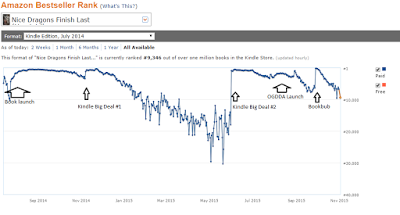 Nice Dragons Finish Last - Lifetime Sales Rank Chart
Nice Dragons Finish Last - Lifetime Sales Rank Chart
If you've read that post, you'll see that there's only a handful of ways an author can intentionally create a spike. Those ways being launching a book and doing a big sale. Most other massive spikes are, quiet frankly, luck. (though a great book has more 'luck' than a good or mediocre one!)
So being able to go on sale is a majorly important tactic. Ah, but how do you do that if the book is already $0.99? That's usually the sale price!
Problem #2 - You are building the wrong kind of readership
I've heard over and over again that free readers are terrible customers. This isn't to say free readers are bad people. They're not! It's just that free readers as a group tend to download books they aren't really interested in just because they're free. Then, when they actually do get around to reading the thing, they'll often end up unsatisfied (and thus leaving you bad reviews) since, again, this is a book they downloaded just because they could, not because they were actually interested in the story.
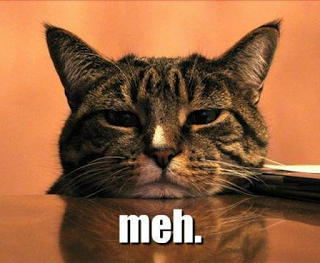 5,000,000 free books on my Kindle, nothing I want to read.
5,000,000 free books on my Kindle, nothing I want to read.
(For a really in depth look at the issues of courting the free reader, check out this amazing Self-Publishing Podcast about "Is Free Still a Viable Strategy?")
Again, this phenomenon isn't the fault of people who like free books. It's the author's fault for selling the wrong product to the wrong customer. Free just doesn't qualify customers well enough and so everyone winds up unhappy with the results. Check out my post on Designing Your Author Brand if you want to learn more about how to court the customers who are right for you.
This is the crux of the bargain readership issue. Everyone expects prices to go down the longer a good is on the market. If you start at $0.99, it is very very difficult to go up, which means you're trapped. But if you begin at a higher price point, you can always go down to boost sales and make your readers happy at the same time. Plus, by framing the price drop as a "sale" you buy yourself room to go back up later as readership increases since everyone understands sales are temporary, even if your book has been on $0.99 "sale" for months.
So, clearly, the $0.99 price point is a very poor move strategically, but even this is hardly the biggest cost, which brings us to problem #3
Problem #3 - Money
We never shy away from the $$ side of things around here. Authors have to make a living after all! Selling books at $0.99 is inherently problematic for any author who wants to live on their writing.
 theoretical earnings on 1000 books sold at various price pointsFor most ebook sellers, going below $2.99 means dropping into a special 33% royalty bracket as opposed to the usual 70% or so. The per book earning power of a book at $2.99 is 6x greater than that of a book priced at $0.99 while not being 6x more expensive.
theoretical earnings on 1000 books sold at various price pointsFor most ebook sellers, going below $2.99 means dropping into a special 33% royalty bracket as opposed to the usual 70% or so. The per book earning power of a book at $2.99 is 6x greater than that of a book priced at $0.99 while not being 6x more expensive.
Let me put this in another perspective. Going self-pub and selling for $0.99 means earning $0.33 per book. If you went with a standard NY contract, you'd get a lot more fame, build readership as fast or faster, and be paid a lot more per book. (25% net receipts on a $9.99 book is usually around $2 on average)
Think about that! If you are pricing at $0.99 to build readership, you'd earn more money by going traditional instead. How often can we make that claim anymore? If anything, I think that this is perhaps my most important point in the entire article.
But wait, there's one last major flaw with the permanent $0.99 strategy!
Problem #4 - Undermining Your Brand$0.99 is a sale price, a discount brand, or even a book mill. Do you want this to be your author brand? If the answer is yes, I'm going to cock my head at you in puzzlement.
Of course, if your goal is to be a discount brand, that's totally cool. Different strokes for different folks. I can respect creating a discount brand if it's being done deliberately and strategically. If you don't want to be a discount brand though, don't price at $0.99 for works you should be asking $2.99 to $5.99 for. It's as simple as that.
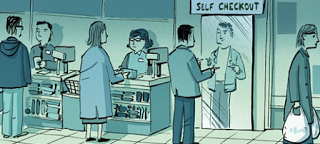 Fake it till you make itBrand is a tricky beast. You have to act like what you want to be until you become it. If you want to be known for writing great books, then you have to act like your books are great. This means good production quality, a dedication to quality writing, and asking people to pay what great books are worth.
Fake it till you make itBrand is a tricky beast. You have to act like what you want to be until you become it. If you want to be known for writing great books, then you have to act like your books are great. This means good production quality, a dedication to quality writing, and asking people to pay what great books are worth.
I'm sure that many starting authors worry that their books just aren't worth $4,99. First, you aren't alone. All authors are insecure about their books in some way, even really accomplished ones.
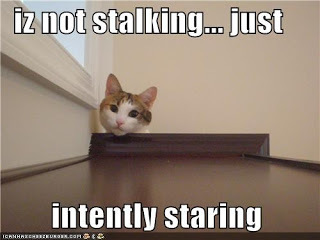 Rachel whenever I'm reading her latest bookSecond, this insecurity might be true, but you can't act like it is. Yup, there's going to be some impostor syndrome here to start with. You know what though?
Rachel whenever I'm reading her latest bookSecond, this insecurity might be true, but you can't act like it is. Yup, there's going to be some impostor syndrome here to start with. You know what though?
Imagine building a discount brand because you don't feel your writing is worth full price. Now imagine you've gotten better and want to charge more. It's hard to do. You'll lose a bunch of readers, get some nasty reviews, and generally be facing an uphill battle while your readership sorts itself out. The rocks won't be under your butt forever, but they might last for a couple of books at least.
To illustrate this, I'd like to trot out a bit of seldom discussed intel on Rachel's sales. So, with The Legend of Eli Monpress series, there's a pretty hefty drop in readers between the omnibus and book 4. Only about 40% of people who read the omnibus will go on to read The Spirit War. This is in stark contrast to her usual 85%+ read-through rate on all other books.
Is it quality? I'd say no, because Eli books 1,2,3 and the omnibus are all wonderfully rated at 4 to 4.6 stars.
However, the omnibus is $9.99 for 3 books while The Spirit War is $9.99 for just itself. I do believe the price cliff is the reason why more people don't finish the series. People come in for the well rated, discounted omnibus and they bail when it's time to pay $9.99 for the next part of the story.
Further to prove the point - 90% of people who read the individual Eli books, specially those who bought book 3, The Spirit Eater at $6.99, go on to read book 4, The Spirit War.
So, as you can see, the price readers come into your book matrix at really matters and is a vital part of your long term strategy. Don't give up the short term for the long-term... it's um... longer!
There's essentially no advantage to pricing full length works at $0.99 except for as a sale.And that's my point for this article. Please don't let short term pressure, impatience, or insecurity drive you to using a flawed pricing tactic. Ask a good price for you books! Price where you want to be and build your readership for the long term.
If you don't know how to price, look at well rated books that are similar to yours (in genre but also in length). Ask on kboards or another author group as well. Do you research and keep the reals before the feels.
Thanks for reading today. If there's any topics you'd like me or Rachel to talk about here on the blog, please feel free to leave them below. We're always working hard to find information that is useful to you. You can also just hit me up on Twitter, that works too! (@TravBach) Rachel's social media links are here as well if you want to get live updates! (Twitter/Facebook/Tumblr/Google+)
Thanks again for reading, and I'll see you all next week!
Sincerely,
-Travis
We're back from Colorado, so that means our more regular posts can resume. Thank you again to Kameron Hurley for filling in for us with her amazing gust post about hybrid authorship! (Seriously, go read it if you haven't! It's good!)
Today I have a short one about pricing. Let's talk about pricing a full length novel at 99c as a standard, not sale, price and the horrible problems that can create.
For this post, please keep in mind that I'm talking about full length novels. Short stories, serials, and novellas definitely have different pricing rules and this discussion may or may not apply to those arenas.
Why You Shouldn't Price Your Novel at $0.99
Every now and then, we see people doing this. They have a a shiny new book, a full length novel no less, and they release it for sale at a $0.99 cover price. Rachel and I cannot help but cringe when we see this happen, because we understand the faulty logic that's happening behind the scenes here.
Why would someone do this? There's basically three kinds of authors who put up full novels at what is a discount price.
Those who are part of the book mill brands who write a book a month, don't edit or copy edit it, and just go for quantity over quality as a publishing strategy.People who are trying to build readership, often desperately so.Folks who don't think their books are worth full price.It should come as no surprise that Rachel and I disapprove of the book mill approach. We don't think that it's good for the industry in general. Worse, the people we've see who pursue this kind of business model often talk about how soul killing it is, so y'all can see why we dislike this practice on many levels.
Now, people who are pricing their books at 99c as a means of building readership faster, those people I want to talk to the most today. For insecure authors, I'll be hitting on that topic near the end of this post.
Most everything I have to say about pricing low to build readership can be summed up simply as,
Using $0.99 as your regular price point is trading long-term gains for short-term ones.
Starting out, new authors need to build readership. It's the first and last item on their agenda besides writing the next book. Additionally, most people understand that lower price = greater volume so pricing to move is the logical tactic.
"Tactics without strategy are the noise before defeat"Persistent bargain-basement pricing is engaging in grievously short term tactics without really considering their impact on the future (ie the strategy for a healthy long-term career). There's three major issues with using $0.99 as a regular price point for full length novels.
-Sun Tzu, The Art of War
Being able to generate a spike in sales is a pretty powerful and crucial tool in an author's arsenal. I've written an extensive blog post about the different types of spikes, their affect on sales, and their splash effects as well. Go check it out.
Here's the crucial info in a single graph,
 Nice Dragons Finish Last - Lifetime Sales Rank Chart
Nice Dragons Finish Last - Lifetime Sales Rank ChartIf you've read that post, you'll see that there's only a handful of ways an author can intentionally create a spike. Those ways being launching a book and doing a big sale. Most other massive spikes are, quiet frankly, luck. (though a great book has more 'luck' than a good or mediocre one!)
So being able to go on sale is a majorly important tactic. Ah, but how do you do that if the book is already $0.99? That's usually the sale price!
Let's go free!Free is the obvious answer to this, but Rachel and I have a major dislike of free. This has nothing to do with greed and everything to do with what kind of readership you want to build for the long term. Which brings me to,
Problem #2 - You are building the wrong kind of readership
I've heard over and over again that free readers are terrible customers. This isn't to say free readers are bad people. They're not! It's just that free readers as a group tend to download books they aren't really interested in just because they're free. Then, when they actually do get around to reading the thing, they'll often end up unsatisfied (and thus leaving you bad reviews) since, again, this is a book they downloaded just because they could, not because they were actually interested in the story.
 5,000,000 free books on my Kindle, nothing I want to read.
5,000,000 free books on my Kindle, nothing I want to read.(For a really in depth look at the issues of courting the free reader, check out this amazing Self-Publishing Podcast about "Is Free Still a Viable Strategy?")
Again, this phenomenon isn't the fault of people who like free books. It's the author's fault for selling the wrong product to the wrong customer. Free just doesn't qualify customers well enough and so everyone winds up unhappy with the results. Check out my post on Designing Your Author Brand if you want to learn more about how to court the customers who are right for you.
You have to consider what kind of readership you are building. This is the key to long term success as an author.The problems with free readers also spill over to the $0.99 crowd. Both are bargain buyers who classically hate paying a lot for books. There's many reasons for this. Some are book hoarders, but most just have limited reading funds which cannot match their reading voracity. I think we can all sympathize with this. ^_^ I'm not saying that these folks don't deserve books, but you the author must carefully consider what it means to court this bargain crowd as your main readership, mostly because if you start at $0.99, you can't raise prices later in your career without causing a readership riot. Bring in everyone at $0.99 and you might lose them all at $2.99.
This is the crux of the bargain readership issue. Everyone expects prices to go down the longer a good is on the market. If you start at $0.99, it is very very difficult to go up, which means you're trapped. But if you begin at a higher price point, you can always go down to boost sales and make your readers happy at the same time. Plus, by framing the price drop as a "sale" you buy yourself room to go back up later as readership increases since everyone understands sales are temporary, even if your book has been on $0.99 "sale" for months.
So, clearly, the $0.99 price point is a very poor move strategically, but even this is hardly the biggest cost, which brings us to problem #3
Problem #3 - Money
We never shy away from the $$ side of things around here. Authors have to make a living after all! Selling books at $0.99 is inherently problematic for any author who wants to live on their writing.
 theoretical earnings on 1000 books sold at various price pointsFor most ebook sellers, going below $2.99 means dropping into a special 33% royalty bracket as opposed to the usual 70% or so. The per book earning power of a book at $2.99 is 6x greater than that of a book priced at $0.99 while not being 6x more expensive.
theoretical earnings on 1000 books sold at various price pointsFor most ebook sellers, going below $2.99 means dropping into a special 33% royalty bracket as opposed to the usual 70% or so. The per book earning power of a book at $2.99 is 6x greater than that of a book priced at $0.99 while not being 6x more expensive.Let me put this in another perspective. Going self-pub and selling for $0.99 means earning $0.33 per book. If you went with a standard NY contract, you'd get a lot more fame, build readership as fast or faster, and be paid a lot more per book. (25% net receipts on a $9.99 book is usually around $2 on average)
Think about that! If you are pricing at $0.99 to build readership, you'd earn more money by going traditional instead. How often can we make that claim anymore? If anything, I think that this is perhaps my most important point in the entire article.
But wait, there's one last major flaw with the permanent $0.99 strategy!
Problem #4 - Undermining Your Brand$0.99 is a sale price, a discount brand, or even a book mill. Do you want this to be your author brand? If the answer is yes, I'm going to cock my head at you in puzzlement.
Of course, if your goal is to be a discount brand, that's totally cool. Different strokes for different folks. I can respect creating a discount brand if it's being done deliberately and strategically. If you don't want to be a discount brand though, don't price at $0.99 for works you should be asking $2.99 to $5.99 for. It's as simple as that.
 Fake it till you make itBrand is a tricky beast. You have to act like what you want to be until you become it. If you want to be known for writing great books, then you have to act like your books are great. This means good production quality, a dedication to quality writing, and asking people to pay what great books are worth.
Fake it till you make itBrand is a tricky beast. You have to act like what you want to be until you become it. If you want to be known for writing great books, then you have to act like your books are great. This means good production quality, a dedication to quality writing, and asking people to pay what great books are worth.I'm sure that many starting authors worry that their books just aren't worth $4,99. First, you aren't alone. All authors are insecure about their books in some way, even really accomplished ones.
 Rachel whenever I'm reading her latest bookSecond, this insecurity might be true, but you can't act like it is. Yup, there's going to be some impostor syndrome here to start with. You know what though?
Rachel whenever I'm reading her latest bookSecond, this insecurity might be true, but you can't act like it is. Yup, there's going to be some impostor syndrome here to start with. You know what though?You'll only be a new author for a couple of books. After that first series is done and the next one started, you'll be an experienced author.How many books will you write in your career? 20? 30? 50? It's not inconceivable! Dream big! Do you want to undermine years of later writing by creating a shaky foundation? This is what I'm talking about with all this short term vs long term stuff.
Imagine building a discount brand because you don't feel your writing is worth full price. Now imagine you've gotten better and want to charge more. It's hard to do. You'll lose a bunch of readers, get some nasty reviews, and generally be facing an uphill battle while your readership sorts itself out. The rocks won't be under your butt forever, but they might last for a couple of books at least.
To illustrate this, I'd like to trot out a bit of seldom discussed intel on Rachel's sales. So, with The Legend of Eli Monpress series, there's a pretty hefty drop in readers between the omnibus and book 4. Only about 40% of people who read the omnibus will go on to read The Spirit War. This is in stark contrast to her usual 85%+ read-through rate on all other books.
Is it quality? I'd say no, because Eli books 1,2,3 and the omnibus are all wonderfully rated at 4 to 4.6 stars.
However, the omnibus is $9.99 for 3 books while The Spirit War is $9.99 for just itself. I do believe the price cliff is the reason why more people don't finish the series. People come in for the well rated, discounted omnibus and they bail when it's time to pay $9.99 for the next part of the story.
Further to prove the point - 90% of people who read the individual Eli books, specially those who bought book 3, The Spirit Eater at $6.99, go on to read book 4, The Spirit War.
So, as you can see, the price readers come into your book matrix at really matters and is a vital part of your long term strategy. Don't give up the short term for the long-term... it's um... longer!
There's essentially no advantage to pricing full length works at $0.99 except for as a sale.And that's my point for this article. Please don't let short term pressure, impatience, or insecurity drive you to using a flawed pricing tactic. Ask a good price for you books! Price where you want to be and build your readership for the long term.
If you don't know how to price, look at well rated books that are similar to yours (in genre but also in length). Ask on kboards or another author group as well. Do you research and keep the reals before the feels.
Thanks for reading today. If there's any topics you'd like me or Rachel to talk about here on the blog, please feel free to leave them below. We're always working hard to find information that is useful to you. You can also just hit me up on Twitter, that works too! (@TravBach) Rachel's social media links are here as well if you want to get live updates! (Twitter/Facebook/Tumblr/Google+)
Thanks again for reading, and I'll see you all next week!
Sincerely,
-Travis
Published on June 20, 2016 07:24
June 15, 2016
Writing Wednesday GUEST POST! with the amazing Kameron Hurley
Hello from COLORADO!
 Yes, I'm standing by a frozen lake. Yes, I am wearing shorts. 10,000 feet, baby!As you've probably surmised from the pictures, we're on vacation this week. Fortunately, this works out in your favor because we've got the amazing (and Hugo award winning!) essayist, author, feminist, and all around whipsmart lady Kameron Hurly here on the blog to talk about making the jump from trad to self-pub and back again!
Yes, I'm standing by a frozen lake. Yes, I am wearing shorts. 10,000 feet, baby!As you've probably surmised from the pictures, we're on vacation this week. Fortunately, this works out in your favor because we've got the amazing (and Hugo award winning!) essayist, author, feminist, and all around whipsmart lady Kameron Hurly here on the blog to talk about making the jump from trad to self-pub and back again!
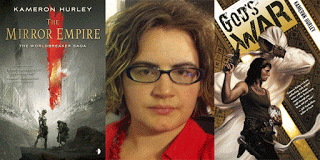 (FANGIRLING!)I've read many of the essays from
Geek Feminist Revolution
and I love them. She has a ton of essays featuring deep, critical thought on geeky topics up for free all over the internet. It's a type of deep introspection genre that's very hard to find in genre fiction especially, and as a member of the SFF community, I absolutely love what she does with and for my genre. I'd be super stoked to get her on the blog for any reason, but she is especially perfect for today's topic, and let me just say, we are ALL in for a treat.
(FANGIRLING!)I've read many of the essays from
Geek Feminist Revolution
and I love them. She has a ton of essays featuring deep, critical thought on geeky topics up for free all over the internet. It's a type of deep introspection genre that's very hard to find in genre fiction especially, and as a member of the SFF community, I absolutely love what she does with and for my genre. I'd be super stoked to get her on the blog for any reason, but she is especially perfect for today's topic, and let me just say, we are ALL in for a treat.
So, without further ado, here's Kameron to talk about the business of taking an indie project to NY!
How to Repackage a Self-Pub Project for Traditional Publication
Hello, everyone! And thanks to Rachel for hosting me. Today I’m going to talk about my recently-released essay collection, The Geek Feminist Revolution , and how my agent and I worked to repackage and pitch content which had already appeared around the web into a traditional publishing deal.
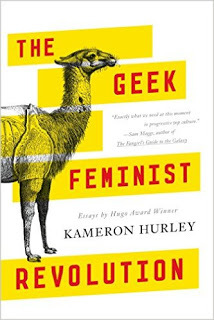
As a general rule, unless a self-publishing project sells a lot of copies, it’s difficult to get traditional publishers interested in them. I know! It sucks, but you’ll hear this a lot from agents and publishers. It really has to be a legit phenomenon to stir up interest, especially now that there are so many more self-pub success stories. Even essay collections like the one I pitched can be a difficult sell if more than 20% of the content you propose for the collection has been previously published online. So how did we do it?
Yes, this one was all my agent’s idea, if you can believe it. Sometimes it’s good to have someone else invested in your business who can bring great ideas to the table!
Pitching a non-fiction collection is a little different from a fiction collection, but some of the same principles apply to both. I knew that the collection needed a topical frame. That is, I needed to make it clear why and how it was relevant to audiences. What was the hook? What connected all of this content? Why should a publisher invest money in it?
I needed a powerful concept and a powerful title. The essays covered a broad number of topics, from reviews on geek media to feminist rants about publishing to writing advice on the importance of persistence, craft, and promotion. How do you unify those things? I took a look at the media and the stories that were being written about geek culture. The backlash against women creators, online harassment, and the increasing visibility of women in the genre were hot topics. So I gave my collection a hot title: The Geek Feminist Revolution . What could be more timely than that?
We also knew that we needed some original content for this collection, so I wrote some titles and a paragraph each of what the 7-10 original essays would be (I ended up writing 9). Though my agent cautioned me this would be a hard sell with mostly reprinted content, I stuck to my guns on this one. I had other publishing contracts I had to fulfill, and just didn’t have the time to write a lot of new content. So I wrote a strong introduction to go with our pitch, and my agent submitted the pitch package to 45 editors. Yes, 45.
As a reminder that rejection is rife at every level in this business, out of those 45 publishers, we got 43 rejections and two offers. Luckily you only need one offer! We chose to go with Tor Books, which had experience publishing other essay collections from folks like John Scalzi and Jo Walton, and included ideas on how to get the book to the academic market – a big market for this book that would have been impossible for us to tap as a self-pub title. We sold audio rights separately to Highbridge Audio.
As unifying the collection of disparate essays was top of mind, I added an epilogue for the collection and split the essays up into four sections: Level Up (about writing craft), Geek (about geek media), Let’s Get Personal (personal essays unrelated to geekery), and Revolution (essays about social activism). Organizing the collection in this way helped pull everything together.
So far the collection has generated a lot of excitement. Organizing it the way we did – with a title tied into discussions happening within pop culture today - also made it easier to pitch to media outlets. We’ve gotten coverage from TheGuardian , Wired , Bitch Magazine , the Barnes andNoble SFF blog, The Huffington Post , Boingboing, and others, which is great. We had reviews from Publisher’s Weekly, Kirkus, and I’ve heard that NPR may be running a review soon as well. My local Ohio newspaper and my hometown paper back on the west coast are also running stories (pro tip: local newspapers always love “local does good” stories – pitch them!).
By far this is the most publicity any book of mine has picked up, and that’s tied to the cultural relevance of the book and how it was pitched as well as the fact that by going with a trad publisher, I have a publicist who has been pitching the book to places like crazy. It’s incredibly nice to have the help!
So this is all great advice for nonfiction collections for those who want to repurpose blog content. But what about fiction?
There are many ways to repurpose your fiction. For short fiction, I started a Patreon which funds the creation of about a short story a month. I then sell it as a reprint to traditional magazines. At some point, I will then put all those stories into a collection and seek out a traditional publisher for that (I’ve already had several ask for it – we’re waiting until we have a really strong book of stories).
It’s also possible to repackage novellas in this way. If you’ve written and self-pubbed a novella series that has a strong following, take two of those novellas, write two original ones, and package them as a single book that you can then pitch to traditional publishers. Yes, this is going to be easier to do once you already have a track record with traditional publishers, but it’s something to consider later on down the road. Always keep your options open, and think of ways that you can maximize how much you’re making from existing work.
Also, though it probably goes without saying, I’m going to say it anyway: when negotiating with a traditional publisher, always try and keep as many rights as possible. There are still smaller presses that will do print-only rights deals. If they want foreign rights, try and get reversion clauses so if they don’t sell those rights within X number of years, they revert back to you. Keep your comic book and special edition rights, because those too can either be resold or can become projects that you do yourself. And never, ever, ever should you be selling movie rights to a publisher. Never, ever.
So what projects do you have that you can remix and repackage? Does your own author career plan include a blend of traditional and self-published work? What, you don’t have an author career plan?? Ah, well, that can be the subject of another post!
Good luck out there, folks, and happy writing.
***
Super huge thanks to Kameron for keeping the blog awesome for me while I'm on vacation. If you liked this post, I highly encourage you to check out her other essays, and if you like those, she also has a Paetron account where you can support her work (and get cool exclusive stuff!) for less than the price of a cup of coffee.
Trav and I will be back next week with business and craft posts as usual. We should also have more fun Heartstriker stuff for you, so be sure to check back! If you're not already, you can follow me on social media (Twitter/Facebook/Tumblr/Google+) to never miss a post.
Until next week, I remain your friendly neighborhood Spiderman author,
Rachel
 Yes, I'm standing by a frozen lake. Yes, I am wearing shorts. 10,000 feet, baby!As you've probably surmised from the pictures, we're on vacation this week. Fortunately, this works out in your favor because we've got the amazing (and Hugo award winning!) essayist, author, feminist, and all around whipsmart lady Kameron Hurly here on the blog to talk about making the jump from trad to self-pub and back again!
Yes, I'm standing by a frozen lake. Yes, I am wearing shorts. 10,000 feet, baby!As you've probably surmised from the pictures, we're on vacation this week. Fortunately, this works out in your favor because we've got the amazing (and Hugo award winning!) essayist, author, feminist, and all around whipsmart lady Kameron Hurly here on the blog to talk about making the jump from trad to self-pub and back again! (FANGIRLING!)I've read many of the essays from
Geek Feminist Revolution
and I love them. She has a ton of essays featuring deep, critical thought on geeky topics up for free all over the internet. It's a type of deep introspection genre that's very hard to find in genre fiction especially, and as a member of the SFF community, I absolutely love what she does with and for my genre. I'd be super stoked to get her on the blog for any reason, but she is especially perfect for today's topic, and let me just say, we are ALL in for a treat.
(FANGIRLING!)I've read many of the essays from
Geek Feminist Revolution
and I love them. She has a ton of essays featuring deep, critical thought on geeky topics up for free all over the internet. It's a type of deep introspection genre that's very hard to find in genre fiction especially, and as a member of the SFF community, I absolutely love what she does with and for my genre. I'd be super stoked to get her on the blog for any reason, but she is especially perfect for today's topic, and let me just say, we are ALL in for a treat.So, without further ado, here's Kameron to talk about the business of taking an indie project to NY!
How to Repackage a Self-Pub Project for Traditional Publication
Hello, everyone! And thanks to Rachel for hosting me. Today I’m going to talk about my recently-released essay collection, The Geek Feminist Revolution , and how my agent and I worked to repackage and pitch content which had already appeared around the web into a traditional publishing deal.

As a general rule, unless a self-publishing project sells a lot of copies, it’s difficult to get traditional publishers interested in them. I know! It sucks, but you’ll hear this a lot from agents and publishers. It really has to be a legit phenomenon to stir up interest, especially now that there are so many more self-pub success stories. Even essay collections like the one I pitched can be a difficult sell if more than 20% of the content you propose for the collection has been previously published online. So how did we do it?
Yes, this one was all my agent’s idea, if you can believe it. Sometimes it’s good to have someone else invested in your business who can bring great ideas to the table!
Pitching a non-fiction collection is a little different from a fiction collection, but some of the same principles apply to both. I knew that the collection needed a topical frame. That is, I needed to make it clear why and how it was relevant to audiences. What was the hook? What connected all of this content? Why should a publisher invest money in it?
I needed a powerful concept and a powerful title. The essays covered a broad number of topics, from reviews on geek media to feminist rants about publishing to writing advice on the importance of persistence, craft, and promotion. How do you unify those things? I took a look at the media and the stories that were being written about geek culture. The backlash against women creators, online harassment, and the increasing visibility of women in the genre were hot topics. So I gave my collection a hot title: The Geek Feminist Revolution . What could be more timely than that?
We also knew that we needed some original content for this collection, so I wrote some titles and a paragraph each of what the 7-10 original essays would be (I ended up writing 9). Though my agent cautioned me this would be a hard sell with mostly reprinted content, I stuck to my guns on this one. I had other publishing contracts I had to fulfill, and just didn’t have the time to write a lot of new content. So I wrote a strong introduction to go with our pitch, and my agent submitted the pitch package to 45 editors. Yes, 45.
As a reminder that rejection is rife at every level in this business, out of those 45 publishers, we got 43 rejections and two offers. Luckily you only need one offer! We chose to go with Tor Books, which had experience publishing other essay collections from folks like John Scalzi and Jo Walton, and included ideas on how to get the book to the academic market – a big market for this book that would have been impossible for us to tap as a self-pub title. We sold audio rights separately to Highbridge Audio.
As unifying the collection of disparate essays was top of mind, I added an epilogue for the collection and split the essays up into four sections: Level Up (about writing craft), Geek (about geek media), Let’s Get Personal (personal essays unrelated to geekery), and Revolution (essays about social activism). Organizing the collection in this way helped pull everything together.
So far the collection has generated a lot of excitement. Organizing it the way we did – with a title tied into discussions happening within pop culture today - also made it easier to pitch to media outlets. We’ve gotten coverage from TheGuardian , Wired , Bitch Magazine , the Barnes andNoble SFF blog, The Huffington Post , Boingboing, and others, which is great. We had reviews from Publisher’s Weekly, Kirkus, and I’ve heard that NPR may be running a review soon as well. My local Ohio newspaper and my hometown paper back on the west coast are also running stories (pro tip: local newspapers always love “local does good” stories – pitch them!).
By far this is the most publicity any book of mine has picked up, and that’s tied to the cultural relevance of the book and how it was pitched as well as the fact that by going with a trad publisher, I have a publicist who has been pitching the book to places like crazy. It’s incredibly nice to have the help!
So this is all great advice for nonfiction collections for those who want to repurpose blog content. But what about fiction?
There are many ways to repurpose your fiction. For short fiction, I started a Patreon which funds the creation of about a short story a month. I then sell it as a reprint to traditional magazines. At some point, I will then put all those stories into a collection and seek out a traditional publisher for that (I’ve already had several ask for it – we’re waiting until we have a really strong book of stories).
It’s also possible to repackage novellas in this way. If you’ve written and self-pubbed a novella series that has a strong following, take two of those novellas, write two original ones, and package them as a single book that you can then pitch to traditional publishers. Yes, this is going to be easier to do once you already have a track record with traditional publishers, but it’s something to consider later on down the road. Always keep your options open, and think of ways that you can maximize how much you’re making from existing work.
Also, though it probably goes without saying, I’m going to say it anyway: when negotiating with a traditional publisher, always try and keep as many rights as possible. There are still smaller presses that will do print-only rights deals. If they want foreign rights, try and get reversion clauses so if they don’t sell those rights within X number of years, they revert back to you. Keep your comic book and special edition rights, because those too can either be resold or can become projects that you do yourself. And never, ever, ever should you be selling movie rights to a publisher. Never, ever.
So what projects do you have that you can remix and repackage? Does your own author career plan include a blend of traditional and self-published work? What, you don’t have an author career plan?? Ah, well, that can be the subject of another post!
Good luck out there, folks, and happy writing.
***
Super huge thanks to Kameron for keeping the blog awesome for me while I'm on vacation. If you liked this post, I highly encourage you to check out her other essays, and if you like those, she also has a Paetron account where you can support her work (and get cool exclusive stuff!) for less than the price of a cup of coffee.
Trav and I will be back next week with business and craft posts as usual. We should also have more fun Heartstriker stuff for you, so be sure to check back! If you're not already, you can follow me on social media (Twitter/Facebook/Tumblr/Google+) to never miss a post.
Until next week, I remain your friendly neighborhood Spiderman author,
Rachel
Published on June 15, 2016 08:00
June 8, 2016
Writing Wednesday: Simple Strategies to Vastly Improve Your Sentences
Another summer Wednesday, another Prose Summer Camp! Hooray!
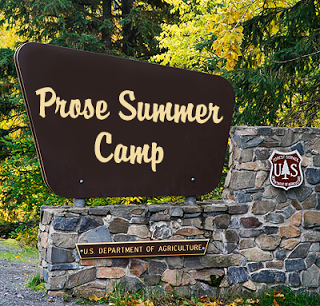 Don't sue me, Forest Service!Before we get going, though, for all you Heartstrikers readers who might have missed last Monday's post, I'm going to be writing a special Heartstrikers short story in which (not to be too spoiler-tastic) Bethesda is going to be asked many questions. Rather than make up all these questions myself though, I thought it would be fun to open up the floor to you, the readers!
Don't sue me, Forest Service!Before we get going, though, for all you Heartstrikers readers who might have missed last Monday's post, I'm going to be writing a special Heartstrikers short story in which (not to be too spoiler-tastic) Bethesda is going to be asked many questions. Rather than make up all these questions myself though, I thought it would be fun to open up the floor to you, the readers!
So if you have any questions you'd like the Great and Terrible Bethesda to answer, head on over and leave them in the comments! The best ones (that won't be answered in upcoming books) will be posed to the Heartstriker matriarch herself, so ask away! (And wear flame retardant clothing!)
Now that's covered, back to the post!
Writing Wednesday: Simple Strategies to Vastly Improve Your Sentences*Disclaimer: This is how I write. All of the tips below are drawn from my taste and experience as a writer. Some of the rules I lay out below are universal, others are stylistic choices. Either way, if you don't like my writing style, seeing how I write my sentences might not be very useful. This is fine! Everyone writes in their own voice. I hope, of course, that you will still find some it helpful, but please don't take any of this as me setting down the One True Path of Writing. I'm just telling you what works for me in the hopes that it might also work for you. Enjoy responsibly!**
So far in Prose Summer Camp, we've talked about how to write better sentence level description and how to write properly formatted, compelling dialogue (with help from everyone's favorite seer!). This week, we're getting even more fundamental with a detailed look at how to buff up actual sentence level writing.
 Surprisingly complete. Thanks, internet!
Surprisingly complete. Thanks, internet!
The ability to write a good sentence or paragraph is something that gets brushed over way too often in the genre community. This isn't to say there aren't amazing lyrical writers in genre, there absolutely are, but all too often I see genre writers focusing all of their improvement efforts on the big picture elements--plot, character, world building, all the things that make genre fiction amazing--while ignoring the most basic aspect of good writing: the sentence. It's as though we think that, just because we're not writing literature, bad prose is somehow okay.
Now I'm not saying your paragraphs have to be a staggering works of heartbreaking genius to be good (Lord knows mine aren't), but bad prose is like a dirty bathroom. Sure, the sink might be amazing and the showers might use waterflow methods hither-to unknown to mankind, but if the mirror has toothpaste spit marks on it and there's hairballs on the floor, that fancy stuff doesn't matter. If it looks a mess, no one is going to want to spend any time inside.
This is such a shame, because--like everything else we've covered in this series--bad sentence level writing is one of the easiest problems to fix. I can't tell you how to have better ideas, but I can show you how to write a sentence that reads well, clearly communicates what you're trying to say, and (most importantly) don't distract your reader from all the stuff you wrote this book to talk about in the first place.
Ready? Let's get started!
Strategies to Writing a Good SentenceWriting at the prose level isn't so much about rules as it is about strategy. Obviously, there are basic rules of good grammar that have to be obeyed if you want to avoid making readers cringe, but you can find those anywhere. In this amazing, modern world, we are only ever one Google search from answering any grammar question, which is why I'm not bothering. Far more useful, I think, is to look at the reasoning, the strategy, behind why writers write the sentences they do.
Now for the fun part. Let's look at some beautiful sentences!
“The half life of love is forever.”
—Junot Diaz, This Is How You Lose Her
“The unicorn lived in a lilac wood, and she lived all alone.”
―Peter S. Beagle, The Last Unicorn
"I took off my gun and my mask, and it seemed like I was taking off my skin, so long had I worn them."
―Jeff Noon, Pixel Juice
“Within 20 years, the water-soaked steel columns that support the street above the East Side’s 4, 5, and 6 trains corrode and buckle. As Lexington Avenue caves in, it becomes a river.”
―Alan Weisman, The World Without Us (my favorite non-fiction book!)
As you can see, these are all lovely, lyrical sentences. Even the simplest ones are beautiful, just a joy to read. But why are they nice? What makes this writing good?
A big part of it is the creativity. All of these sentences have a nice hook, something that grabs our attention and makes us want to read more. But they are also beautifully constructed. Each one is clear, with the central idea boldly stated. "The half life of love is forever" has no waffling or obstructing language. It put the idea out there and lets it speak for itself.
This is good, because the idea is strong enough to take it. That's the magic combo for a good sentence: a strong idea clearly stated. More on this in a bit.
All of the examples above are from literary works, including the Alan Weiseman quote, which is from his phenomenal non-fiction book The World Without Us, an exploration of what would happen to all our infrastructure--our homes and farms and roads and power plants--if every human on the planet simultaneously disappeared. It's a wonderful book and a must read for anyone who wants to write post-apocalyptic fiction, but the real stand out is its prose. Weisman's language is incredibly beautiful, far more so than you'd normally expect from a speculative science book, and the end result is one of my favorite reads of all time.
This is a perfect example of the power of good writing. It can take something that's already good--a big idea, a captivating setting, a riveting plot--and elevate it to the phenomenal. Unfortunately, the reverse is also true. Just take a look at these trainwrecks from the "Worst analogies ever written in a high school essay" contest. (Names redacted to protect the innocent, who were probably just trying to get their stupid essay done.)
"He was as tall as a six-foot-three-inch tree."
"The hailstones leaped from the pavement, just like maggots when you fry them in hot grease."
"His thoughts tumbled in his head, making and breaking alliances like underpants in a dryer without Cling Free."
"The little boat gently drifted across the pond exactly the way a bowling ball wouldn't."
I think we can all agree that these are some truly BAD sentences. What's most interesting for me, though, is that they're all bad in one of the two ways. They're either unclear, or they're based around a bad or clunky idea (like comparing thoughts to underpants). Sometimes, as in the last example about the boat and the bowling ball, they're both at once!
This is the reader killing combination. There's no coming back from a bad idea poorly executed. It doesn't matter how good everything else is. You could have the most amazing plot, characters, and story ever told, but if your actual sentences are bad, readers will never see them, because they'll have already put the book down.
Now, hopefully, your sentences are nowhere near as bad as the bad examples above, but they probably aren't as good as the good examples, either. That's fine. Even the writers I quoted aren't that good every line, and you don't have to be, either. What's important here is that we understand why the bad sentences are bad and the good ones are good, and that comes down to the way the author chose to write them.
Know What You're Trying to Say, Then Say ItWhen you're choosing your words, you don't have to pick the most beautiful or flowery. You don't have to be lyrical or poetic. All of that stuff is stylistic choice. There are many, many writers who focus on creating absolutely stripped down, bare bones prose with amazing results. How you choose to write is entirely up to you, but if you want to craft good sentences, the only thing you absolutely must be is clear.
If I write a sentence where Chelsie swings her sword, my primary goal is to make sure my readers understand that Chelsie is swinging that sword. If I choose, I can also add text about how she swung it and what the result was. No matter how many other details I decide to pack in, though, the main idea of the sentence will always be Chelsie swinging her sword. That's the point, the reason this sentence exists. Everything else is just modifiers.
This is what I mean when I talk about strategy in sentence writing. I can't tell you how to write a beautiful sentence in your style because I don't know your style. I can't tell you what to say or how to phrase it because I don't know your world or your voice. Only you know those things. But while I can't tell you the details, I can tell you that the fastest way to improve your sentence level writing is to make sure every sentence has a clear idea.
This is the strategy I follow in all of my work, because I LOVE to pack my sentences down like they're going on a five month vacation. This was a huge problem for me for a long time, and it wasn't until I started to actually think about what I was writing and why that my writing started really improving to publishable quality. I'm sure many of you don't have this problem, but I still think that any author who takes the time to make sure their sentences have one central, clear idea can't go wrong.
There's a lot of information to get out in a book, and the temptation to get as much of it out at once as possible can be brutal, especially for little details that are important but not dramatic. If this is you, avoid at all costs. Don't load that sentence down with every idea under the sun. That's how you confuse people and end up with crazy run-ons. Instead, decide what you're going to say, and then say it clearly. If this is the sentence where the hero declares his love, have him do that. Don't muck things up by trying to cram other information into the same breath.
But this isn't just for the long form writers in the crowd. This strategy also applies to the short sentence fans who too often falter in the opposite direction with sentences that are too short and don't tell enough. Again, long or small, that sentence doesn't just have to be grammatically correct, it needs to have a point: a central idea everything else can wrap around. It needs to be a bead on the string of the paragraph, or why is it there at all?
I realize putting this much thought into every sentence might sound ridiculous, but I swear it's not as much work as it seems! Most of us do this automatically, but if you're having trouble with a sentence or a paragraph, employing this strategy can be the key you need to hacking through. I'm not saying it's a magic bullet, but I've found that the act of simply making sure every sentence has a single good idea clearly stated will all but guarantee a positive outcome. You might not be writing deathless prose, but you will be crafting clear, readable sentences that your reader will happily breeze through in their rush to get more of your plot and characters. And if you do manage to land a really well crafted turn of phrase, that's just icing on the cake.
Speaking personally, I love landing those sentences I just know readers are going to highlight on their kindles. But while those are killer when I can pull them off, they're never my primary goal. For my writing, the strategy is always to make sure that the prose serves the story. I'm not here to write poetry. I'm here to tell you a damn good story, and I can't do that if you're having to pick your way through every sentence like it's a labyrinth. This often means I have to rein myself in since (as you can probably tell) I love a long sentence! I also love my dramatic, dangling, drawn out descriptions. Both of these are fine if I can pull them off, but the moment they start to get in the way of readability, then that sentence is now working against me, not for me, and that means it has to go.
Again, this isn't to say you can't be flowery. If that's your style, go for it! There is a long and noble tradition of lyrical Fantasy writing. But just because your style is poetic doesn't free you from the burden of clarity. Beautiful language is no good if your reader can't figure out what's going on. Remember: this is a book. Your words are the reader's only source of information about your story. Whatever your writing style, clarity must be your first goal, because without it, everything else is lost.
But like all medicines, clarity can become a poison if taken too far. Let's go back to our Chelsie example. "Chelsie swung her sword. It hit the dragon in the head. He died." is not good writing on any level. It's clear, but it's nothing else. We're not even telling a story here, just reciting events like a police report.
Obviously, there's more to writing a good sentence than just a good idea stated clearly. It also has to be written well. This is the most difficult criteria by far, because unlike "clear," "written well" is highly subjective.
To show you what I mean, let's take a look at one of my favorite segments from my favorite novel ever, Peter S. Beagle's The Last Unicorn.

I love this quote. Even now, decades after I first heard it in the movie, it makes me teary-eyed. If I could ever write something half this moving, I'd count it the high point of my career. But as much as I love these words, I'm sure there are writers out there who will roll their eyes and call it melodramatic.
Which one of us is right? There's no real way to say. That's one of the great things about writing: we're all allowed to like different things. There are books and readers out there for all styles. But encouraging as that is, it makes setting down a hard rule for what makes a sentence good very difficult, because good is relative.
Thankfully, while there's no way to write prose that will appeal to every reader, there's no one saying you have to. All that matters is writing sentences that appeal to your audience, which brings us to our final strategy for good sentence writing: use your good taste.
If you're setting out to write a novel, you're already wearing your taste on your sleeve. Everything you write--your plot, your characters, even the words you use--reflect your taste as a writer. When you write a sentence, the same thing applies. Clarity is vitally important, but if you find a sentence boring, chances are your reader will, too. This is where you want to use your imagination and good taste to craft a sentence that is both clear and enjoyable.
If you're not sure how to do this, just focus on what's interesting to you. What do you like? That's your taste. If you take a sentence, and you make it interesting to you while also being clear, that's writing in your voice.
Is it a good sentence? Well, that's going to depend on if the reader's taste matches yours. But if you've followed the first two strategies and written a sentence that (1) has a well thought out idea that's (2) clearly stated, you will have a sentence that is objectively not bad. Beyond that, it really is a matter of taste, which is famously unaccountable.
So don't worry about making everyone love your sentences. The most important thing, as always, is that you pay attention to your reader's experience. Don't write a sentence to hear yourself talk, write a sentence that clearly tells your reader what's going on in the most entertaining and/or dramatic fashion possible. Write the sentence you would want to read, and I promise you that, while it might not be the most beautiful words ever set to pixel, it'll almost certainly be enough to make your reader eagerly turn the page. And really, what else could you ask?
And thus ends another edition of Prose Summer Camp! If you enjoyed the essay, please follow me on Twitter/Facebook/Tumblr/Google+ to never miss a post. Thank you as always for reading, and I hope you're getting lots of writing done this summer!
I'm going on vacation next week, but I've got something really awesome lined up for you guys, so keep your eyeballs peeled. Thank you again, until next time, and happy writing summer!
Yours as ever,
Rachel
 Don't sue me, Forest Service!Before we get going, though, for all you Heartstrikers readers who might have missed last Monday's post, I'm going to be writing a special Heartstrikers short story in which (not to be too spoiler-tastic) Bethesda is going to be asked many questions. Rather than make up all these questions myself though, I thought it would be fun to open up the floor to you, the readers!
Don't sue me, Forest Service!Before we get going, though, for all you Heartstrikers readers who might have missed last Monday's post, I'm going to be writing a special Heartstrikers short story in which (not to be too spoiler-tastic) Bethesda is going to be asked many questions. Rather than make up all these questions myself though, I thought it would be fun to open up the floor to you, the readers!So if you have any questions you'd like the Great and Terrible Bethesda to answer, head on over and leave them in the comments! The best ones (that won't be answered in upcoming books) will be posed to the Heartstriker matriarch herself, so ask away! (And wear flame retardant clothing!)
Now that's covered, back to the post!
Writing Wednesday: Simple Strategies to Vastly Improve Your Sentences*Disclaimer: This is how I write. All of the tips below are drawn from my taste and experience as a writer. Some of the rules I lay out below are universal, others are stylistic choices. Either way, if you don't like my writing style, seeing how I write my sentences might not be very useful. This is fine! Everyone writes in their own voice. I hope, of course, that you will still find some it helpful, but please don't take any of this as me setting down the One True Path of Writing. I'm just telling you what works for me in the hopes that it might also work for you. Enjoy responsibly!**
So far in Prose Summer Camp, we've talked about how to write better sentence level description and how to write properly formatted, compelling dialogue (with help from everyone's favorite seer!). This week, we're getting even more fundamental with a detailed look at how to buff up actual sentence level writing.
 Surprisingly complete. Thanks, internet!
Surprisingly complete. Thanks, internet!The ability to write a good sentence or paragraph is something that gets brushed over way too often in the genre community. This isn't to say there aren't amazing lyrical writers in genre, there absolutely are, but all too often I see genre writers focusing all of their improvement efforts on the big picture elements--plot, character, world building, all the things that make genre fiction amazing--while ignoring the most basic aspect of good writing: the sentence. It's as though we think that, just because we're not writing literature, bad prose is somehow okay.
Now I'm not saying your paragraphs have to be a staggering works of heartbreaking genius to be good (Lord knows mine aren't), but bad prose is like a dirty bathroom. Sure, the sink might be amazing and the showers might use waterflow methods hither-to unknown to mankind, but if the mirror has toothpaste spit marks on it and there's hairballs on the floor, that fancy stuff doesn't matter. If it looks a mess, no one is going to want to spend any time inside.
This is such a shame, because--like everything else we've covered in this series--bad sentence level writing is one of the easiest problems to fix. I can't tell you how to have better ideas, but I can show you how to write a sentence that reads well, clearly communicates what you're trying to say, and (most importantly) don't distract your reader from all the stuff you wrote this book to talk about in the first place.
Ready? Let's get started!
Strategies to Writing a Good SentenceWriting at the prose level isn't so much about rules as it is about strategy. Obviously, there are basic rules of good grammar that have to be obeyed if you want to avoid making readers cringe, but you can find those anywhere. In this amazing, modern world, we are only ever one Google search from answering any grammar question, which is why I'm not bothering. Far more useful, I think, is to look at the reasoning, the strategy, behind why writers write the sentences they do.
Now for the fun part. Let's look at some beautiful sentences!
“The half life of love is forever.”
—Junot Diaz, This Is How You Lose Her
“The unicorn lived in a lilac wood, and she lived all alone.”
―Peter S. Beagle, The Last Unicorn
"I took off my gun and my mask, and it seemed like I was taking off my skin, so long had I worn them."
―Jeff Noon, Pixel Juice
“Within 20 years, the water-soaked steel columns that support the street above the East Side’s 4, 5, and 6 trains corrode and buckle. As Lexington Avenue caves in, it becomes a river.”
―Alan Weisman, The World Without Us (my favorite non-fiction book!)
As you can see, these are all lovely, lyrical sentences. Even the simplest ones are beautiful, just a joy to read. But why are they nice? What makes this writing good?
A big part of it is the creativity. All of these sentences have a nice hook, something that grabs our attention and makes us want to read more. But they are also beautifully constructed. Each one is clear, with the central idea boldly stated. "The half life of love is forever" has no waffling or obstructing language. It put the idea out there and lets it speak for itself.
This is good, because the idea is strong enough to take it. That's the magic combo for a good sentence: a strong idea clearly stated. More on this in a bit.
All of the examples above are from literary works, including the Alan Weiseman quote, which is from his phenomenal non-fiction book The World Without Us, an exploration of what would happen to all our infrastructure--our homes and farms and roads and power plants--if every human on the planet simultaneously disappeared. It's a wonderful book and a must read for anyone who wants to write post-apocalyptic fiction, but the real stand out is its prose. Weisman's language is incredibly beautiful, far more so than you'd normally expect from a speculative science book, and the end result is one of my favorite reads of all time.
This is a perfect example of the power of good writing. It can take something that's already good--a big idea, a captivating setting, a riveting plot--and elevate it to the phenomenal. Unfortunately, the reverse is also true. Just take a look at these trainwrecks from the "Worst analogies ever written in a high school essay" contest. (Names redacted to protect the innocent, who were probably just trying to get their stupid essay done.)
"He was as tall as a six-foot-three-inch tree."
"The hailstones leaped from the pavement, just like maggots when you fry them in hot grease."
"His thoughts tumbled in his head, making and breaking alliances like underpants in a dryer without Cling Free."
"The little boat gently drifted across the pond exactly the way a bowling ball wouldn't."
I think we can all agree that these are some truly BAD sentences. What's most interesting for me, though, is that they're all bad in one of the two ways. They're either unclear, or they're based around a bad or clunky idea (like comparing thoughts to underpants). Sometimes, as in the last example about the boat and the bowling ball, they're both at once!
This is the reader killing combination. There's no coming back from a bad idea poorly executed. It doesn't matter how good everything else is. You could have the most amazing plot, characters, and story ever told, but if your actual sentences are bad, readers will never see them, because they'll have already put the book down.
Now, hopefully, your sentences are nowhere near as bad as the bad examples above, but they probably aren't as good as the good examples, either. That's fine. Even the writers I quoted aren't that good every line, and you don't have to be, either. What's important here is that we understand why the bad sentences are bad and the good ones are good, and that comes down to the way the author chose to write them.
Know What You're Trying to Say, Then Say ItWhen you're choosing your words, you don't have to pick the most beautiful or flowery. You don't have to be lyrical or poetic. All of that stuff is stylistic choice. There are many, many writers who focus on creating absolutely stripped down, bare bones prose with amazing results. How you choose to write is entirely up to you, but if you want to craft good sentences, the only thing you absolutely must be is clear.
If I write a sentence where Chelsie swings her sword, my primary goal is to make sure my readers understand that Chelsie is swinging that sword. If I choose, I can also add text about how she swung it and what the result was. No matter how many other details I decide to pack in, though, the main idea of the sentence will always be Chelsie swinging her sword. That's the point, the reason this sentence exists. Everything else is just modifiers.
This is what I mean when I talk about strategy in sentence writing. I can't tell you how to write a beautiful sentence in your style because I don't know your style. I can't tell you what to say or how to phrase it because I don't know your world or your voice. Only you know those things. But while I can't tell you the details, I can tell you that the fastest way to improve your sentence level writing is to make sure every sentence has a clear idea.
This is the strategy I follow in all of my work, because I LOVE to pack my sentences down like they're going on a five month vacation. This was a huge problem for me for a long time, and it wasn't until I started to actually think about what I was writing and why that my writing started really improving to publishable quality. I'm sure many of you don't have this problem, but I still think that any author who takes the time to make sure their sentences have one central, clear idea can't go wrong.
There's a lot of information to get out in a book, and the temptation to get as much of it out at once as possible can be brutal, especially for little details that are important but not dramatic. If this is you, avoid at all costs. Don't load that sentence down with every idea under the sun. That's how you confuse people and end up with crazy run-ons. Instead, decide what you're going to say, and then say it clearly. If this is the sentence where the hero declares his love, have him do that. Don't muck things up by trying to cram other information into the same breath.
But this isn't just for the long form writers in the crowd. This strategy also applies to the short sentence fans who too often falter in the opposite direction with sentences that are too short and don't tell enough. Again, long or small, that sentence doesn't just have to be grammatically correct, it needs to have a point: a central idea everything else can wrap around. It needs to be a bead on the string of the paragraph, or why is it there at all?
I realize putting this much thought into every sentence might sound ridiculous, but I swear it's not as much work as it seems! Most of us do this automatically, but if you're having trouble with a sentence or a paragraph, employing this strategy can be the key you need to hacking through. I'm not saying it's a magic bullet, but I've found that the act of simply making sure every sentence has a single good idea clearly stated will all but guarantee a positive outcome. You might not be writing deathless prose, but you will be crafting clear, readable sentences that your reader will happily breeze through in their rush to get more of your plot and characters. And if you do manage to land a really well crafted turn of phrase, that's just icing on the cake.
Speaking personally, I love landing those sentences I just know readers are going to highlight on their kindles. But while those are killer when I can pull them off, they're never my primary goal. For my writing, the strategy is always to make sure that the prose serves the story. I'm not here to write poetry. I'm here to tell you a damn good story, and I can't do that if you're having to pick your way through every sentence like it's a labyrinth. This often means I have to rein myself in since (as you can probably tell) I love a long sentence! I also love my dramatic, dangling, drawn out descriptions. Both of these are fine if I can pull them off, but the moment they start to get in the way of readability, then that sentence is now working against me, not for me, and that means it has to go.
Again, this isn't to say you can't be flowery. If that's your style, go for it! There is a long and noble tradition of lyrical Fantasy writing. But just because your style is poetic doesn't free you from the burden of clarity. Beautiful language is no good if your reader can't figure out what's going on. Remember: this is a book. Your words are the reader's only source of information about your story. Whatever your writing style, clarity must be your first goal, because without it, everything else is lost.
But like all medicines, clarity can become a poison if taken too far. Let's go back to our Chelsie example. "Chelsie swung her sword. It hit the dragon in the head. He died." is not good writing on any level. It's clear, but it's nothing else. We're not even telling a story here, just reciting events like a police report.
Obviously, there's more to writing a good sentence than just a good idea stated clearly. It also has to be written well. This is the most difficult criteria by far, because unlike "clear," "written well" is highly subjective.
To show you what I mean, let's take a look at one of my favorite segments from my favorite novel ever, Peter S. Beagle's The Last Unicorn.

"I like to watch them. They fill me with joy. The first I felt it, I thought I was going to die. I said to the Red Bull I must have them, all of them, all there are. For nothing makes me happy but their shining and their grace. So the Red Bull caught them. Each time I see the unicorns, my unicorns, it is like that morning in the woods, and I am truly young, in spite of myself."
I love this quote. Even now, decades after I first heard it in the movie, it makes me teary-eyed. If I could ever write something half this moving, I'd count it the high point of my career. But as much as I love these words, I'm sure there are writers out there who will roll their eyes and call it melodramatic.
Which one of us is right? There's no real way to say. That's one of the great things about writing: we're all allowed to like different things. There are books and readers out there for all styles. But encouraging as that is, it makes setting down a hard rule for what makes a sentence good very difficult, because good is relative.
Thankfully, while there's no way to write prose that will appeal to every reader, there's no one saying you have to. All that matters is writing sentences that appeal to your audience, which brings us to our final strategy for good sentence writing: use your good taste.
If you're setting out to write a novel, you're already wearing your taste on your sleeve. Everything you write--your plot, your characters, even the words you use--reflect your taste as a writer. When you write a sentence, the same thing applies. Clarity is vitally important, but if you find a sentence boring, chances are your reader will, too. This is where you want to use your imagination and good taste to craft a sentence that is both clear and enjoyable.
If you're not sure how to do this, just focus on what's interesting to you. What do you like? That's your taste. If you take a sentence, and you make it interesting to you while also being clear, that's writing in your voice.
Is it a good sentence? Well, that's going to depend on if the reader's taste matches yours. But if you've followed the first two strategies and written a sentence that (1) has a well thought out idea that's (2) clearly stated, you will have a sentence that is objectively not bad. Beyond that, it really is a matter of taste, which is famously unaccountable.
So don't worry about making everyone love your sentences. The most important thing, as always, is that you pay attention to your reader's experience. Don't write a sentence to hear yourself talk, write a sentence that clearly tells your reader what's going on in the most entertaining and/or dramatic fashion possible. Write the sentence you would want to read, and I promise you that, while it might not be the most beautiful words ever set to pixel, it'll almost certainly be enough to make your reader eagerly turn the page. And really, what else could you ask?
And thus ends another edition of Prose Summer Camp! If you enjoyed the essay, please follow me on Twitter/Facebook/Tumblr/Google+ to never miss a post. Thank you as always for reading, and I hope you're getting lots of writing done this summer!
I'm going on vacation next week, but I've got something really awesome lined up for you guys, so keep your eyeballs peeled. Thank you again, until next time, and happy writing summer!
Yours as ever,
Rachel
Published on June 08, 2016 08:18



